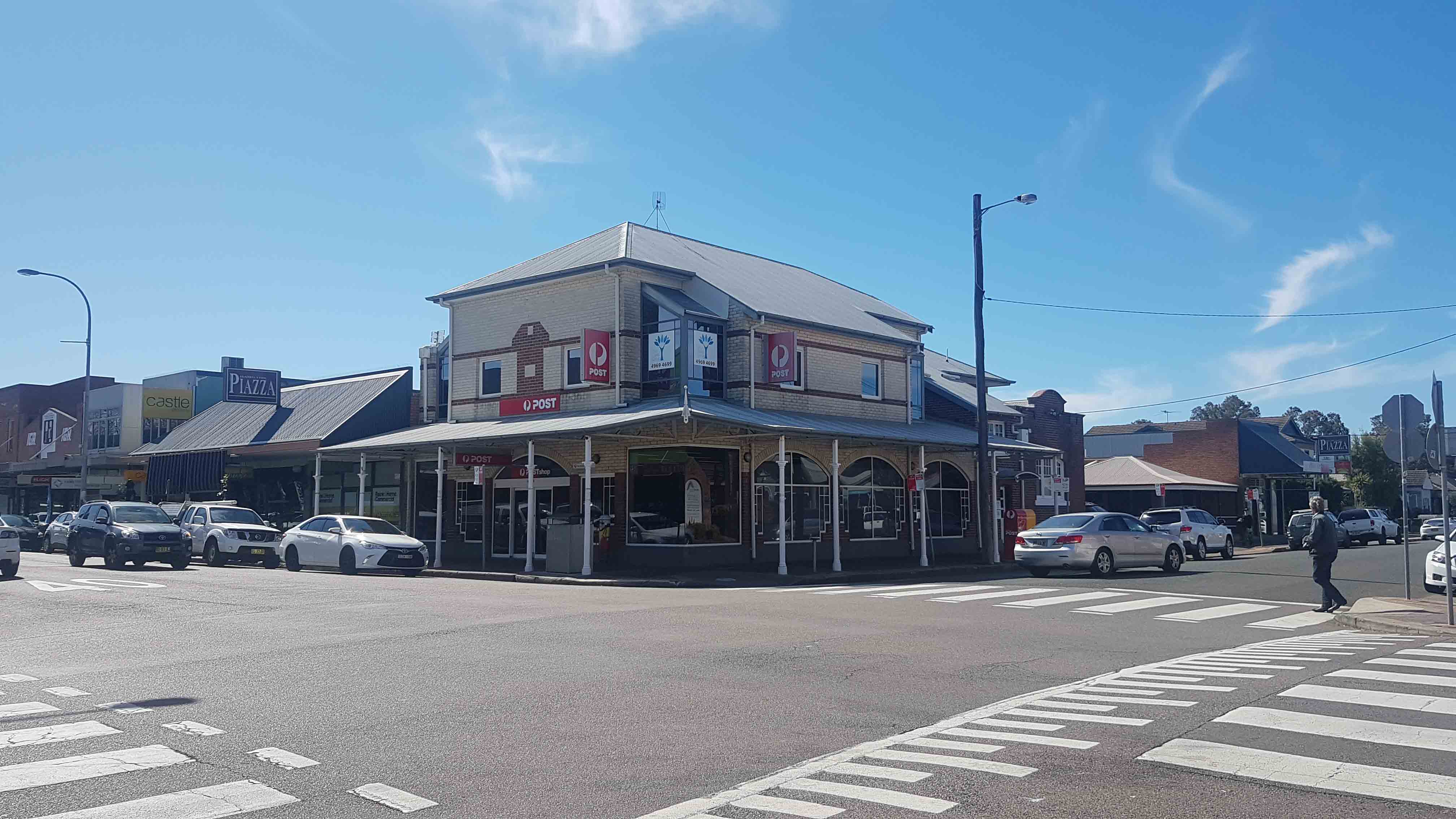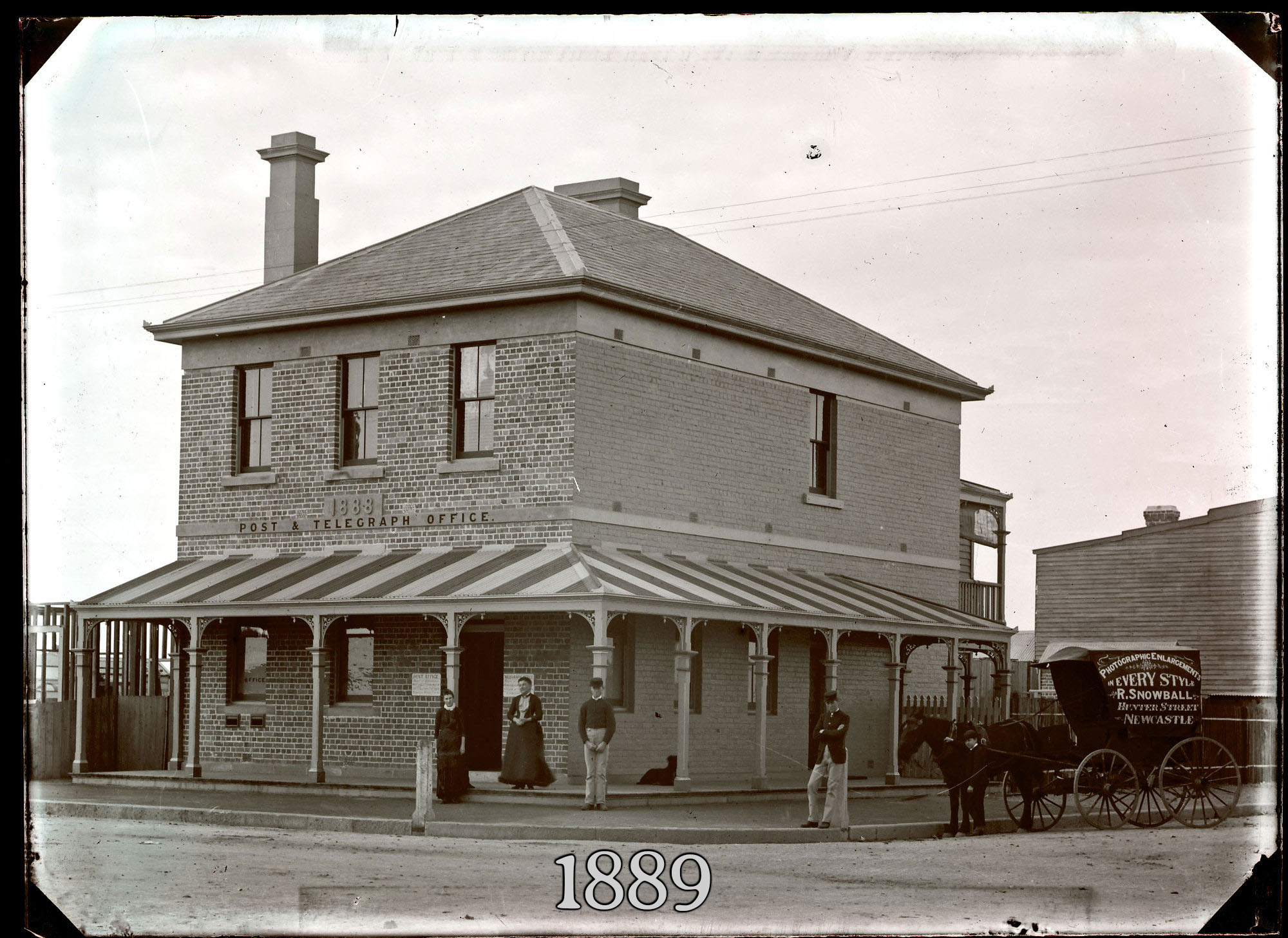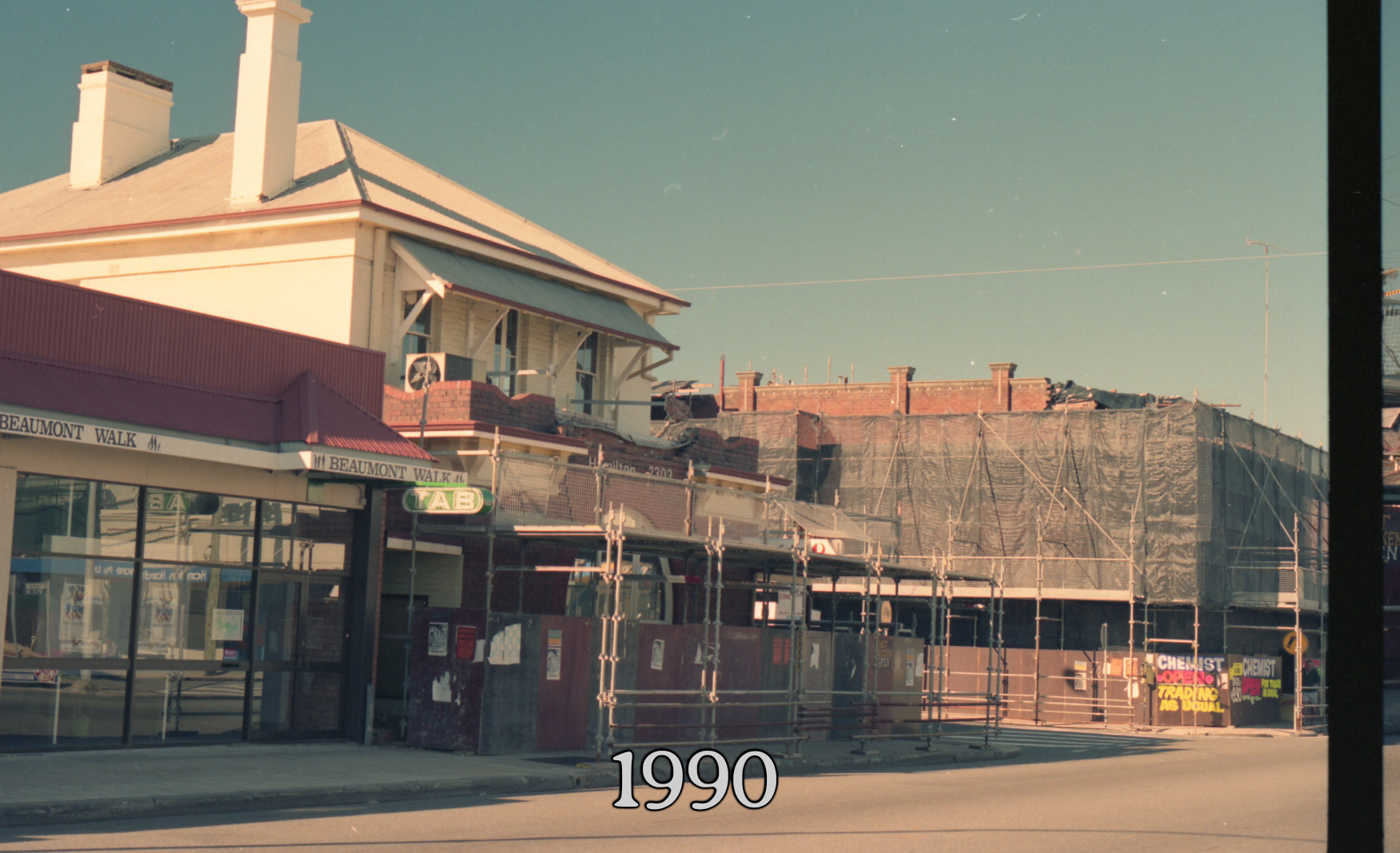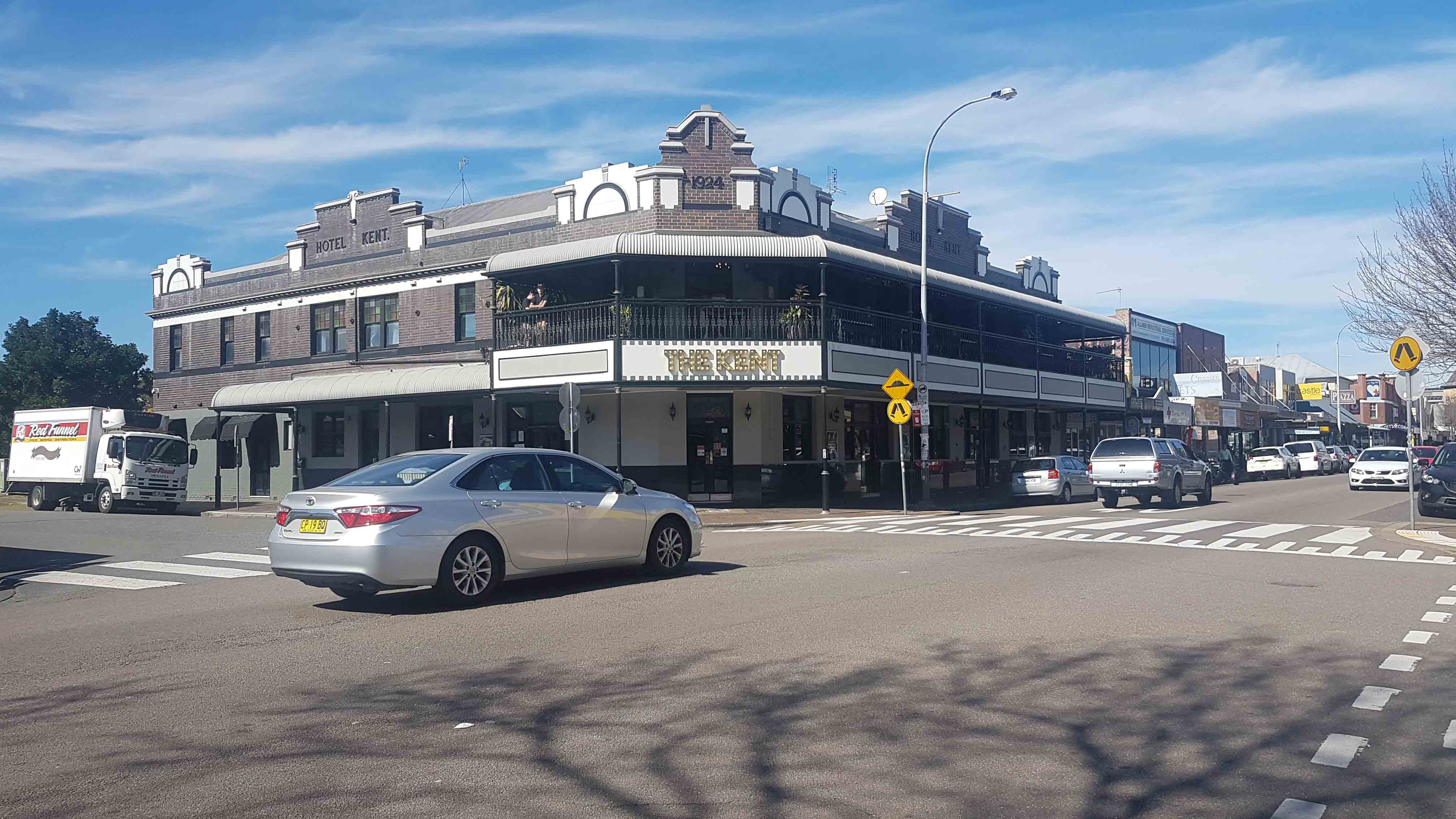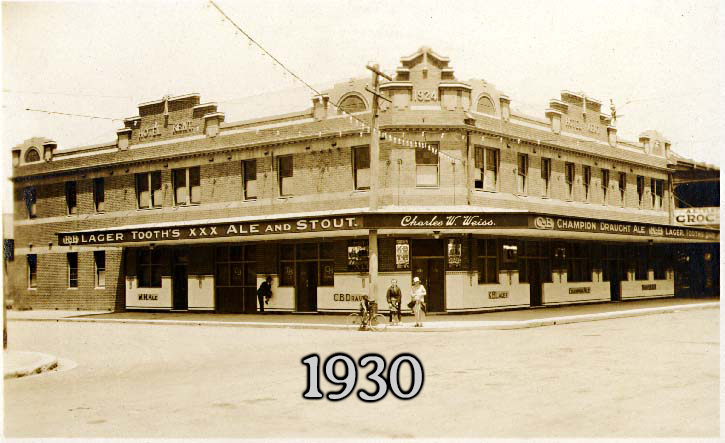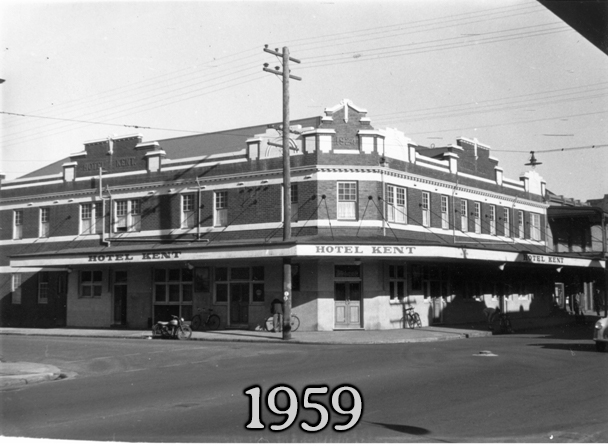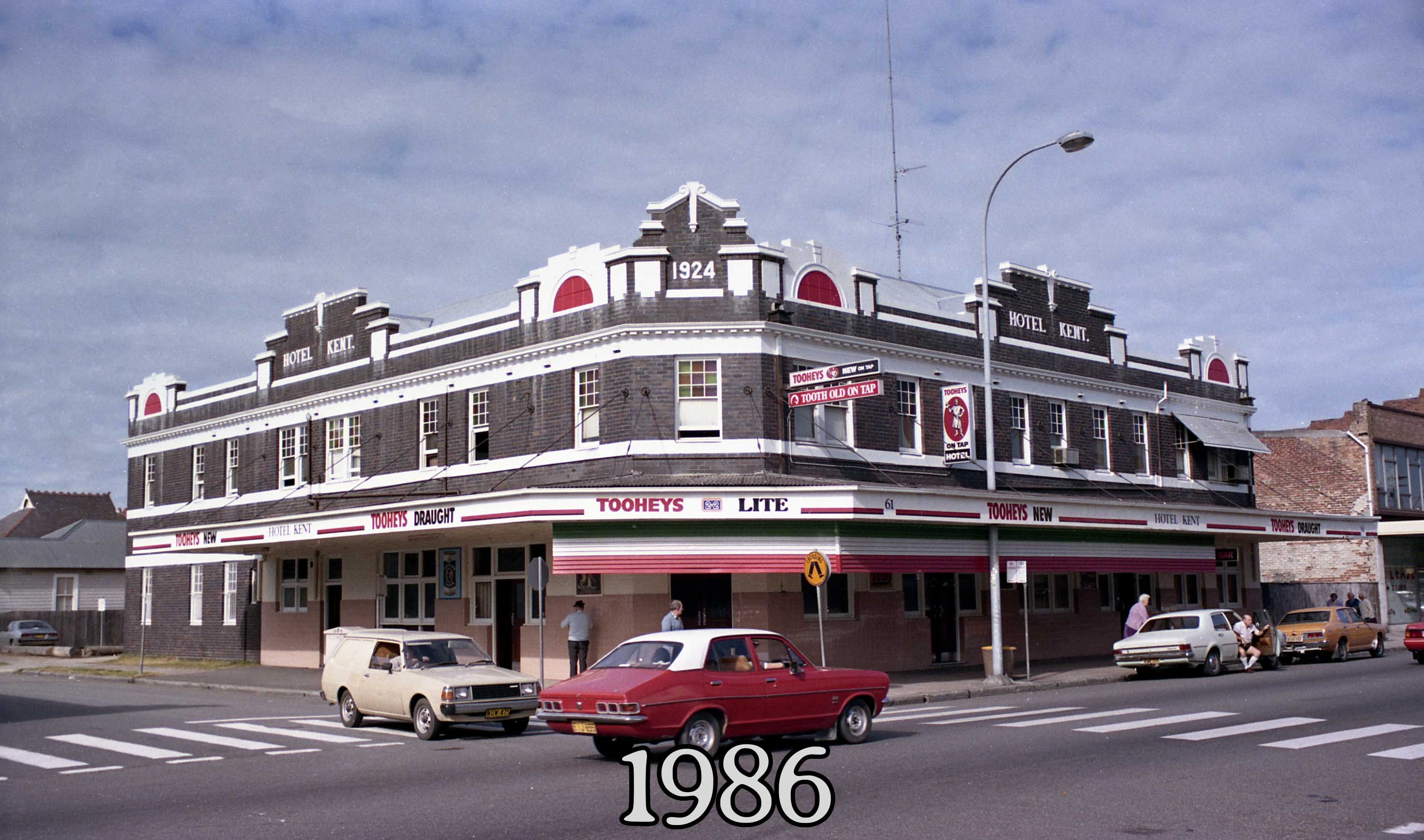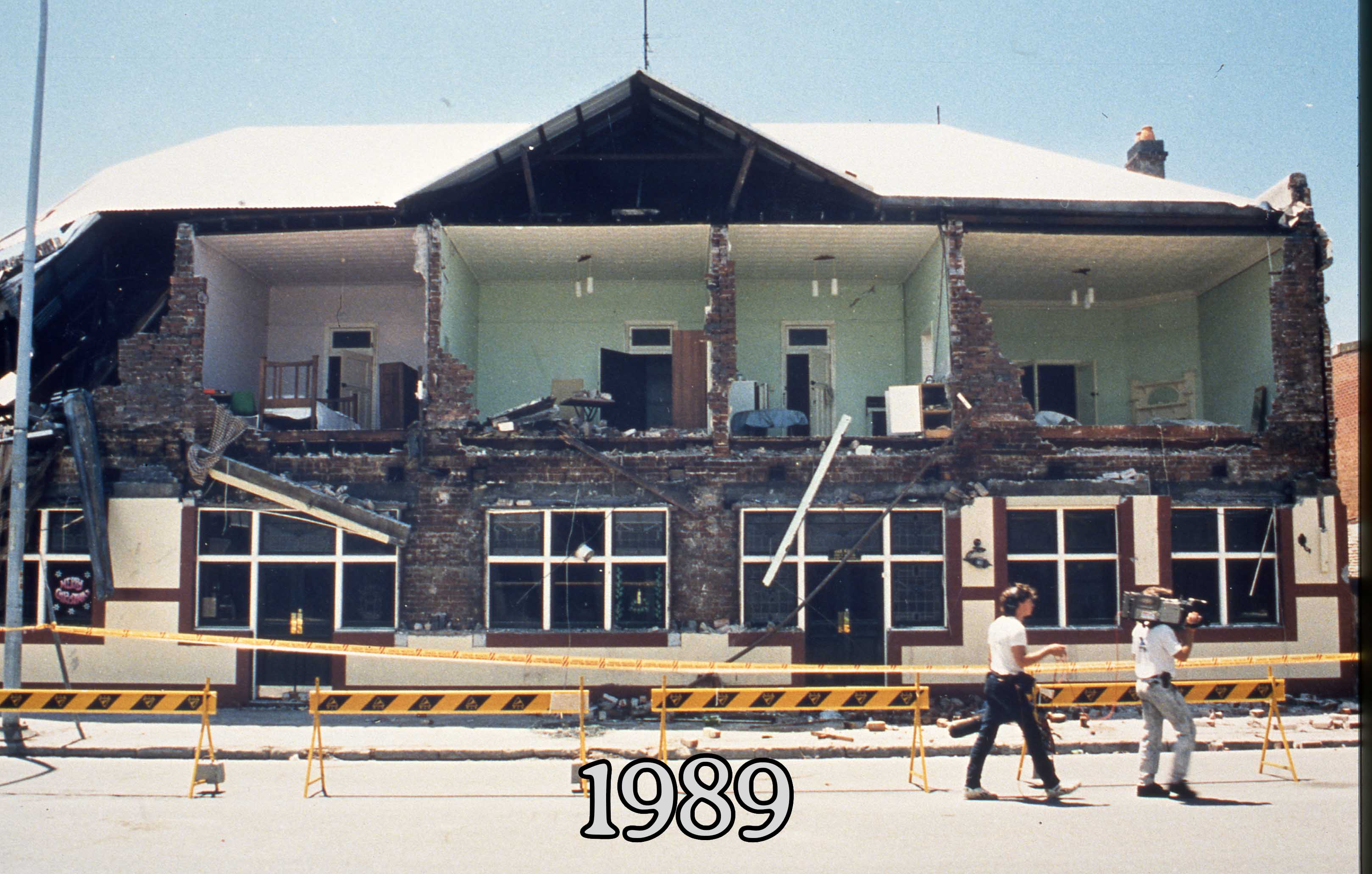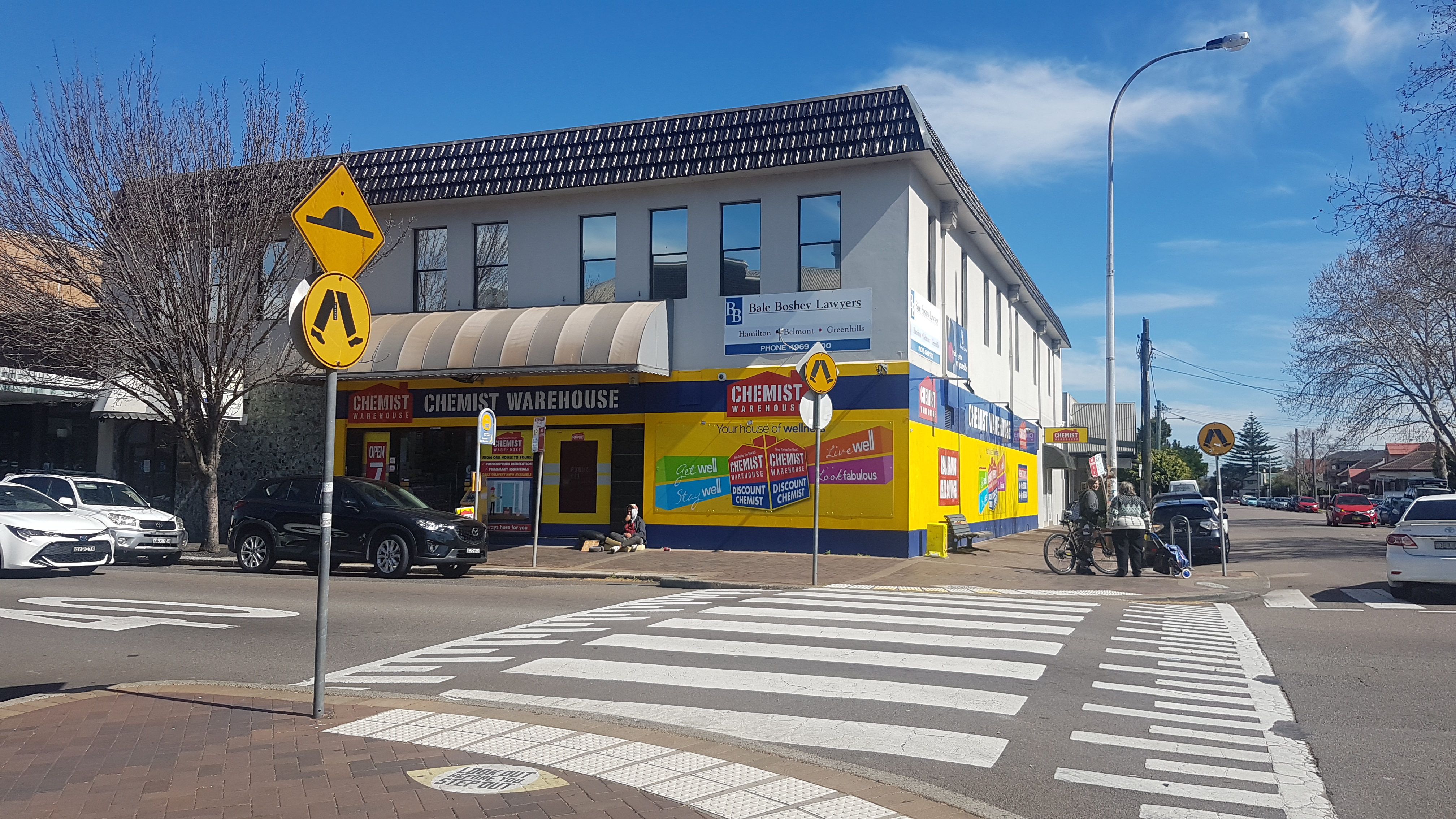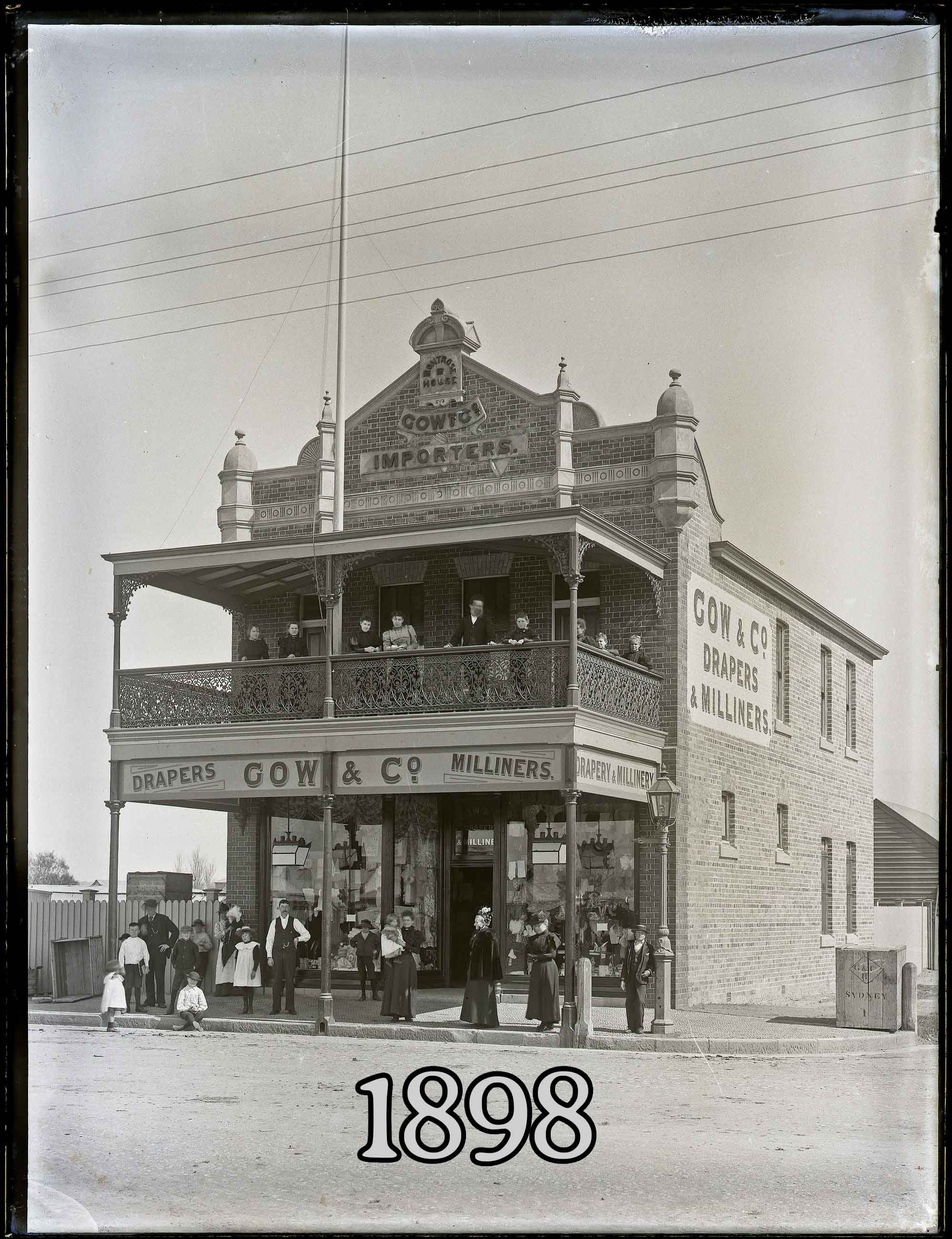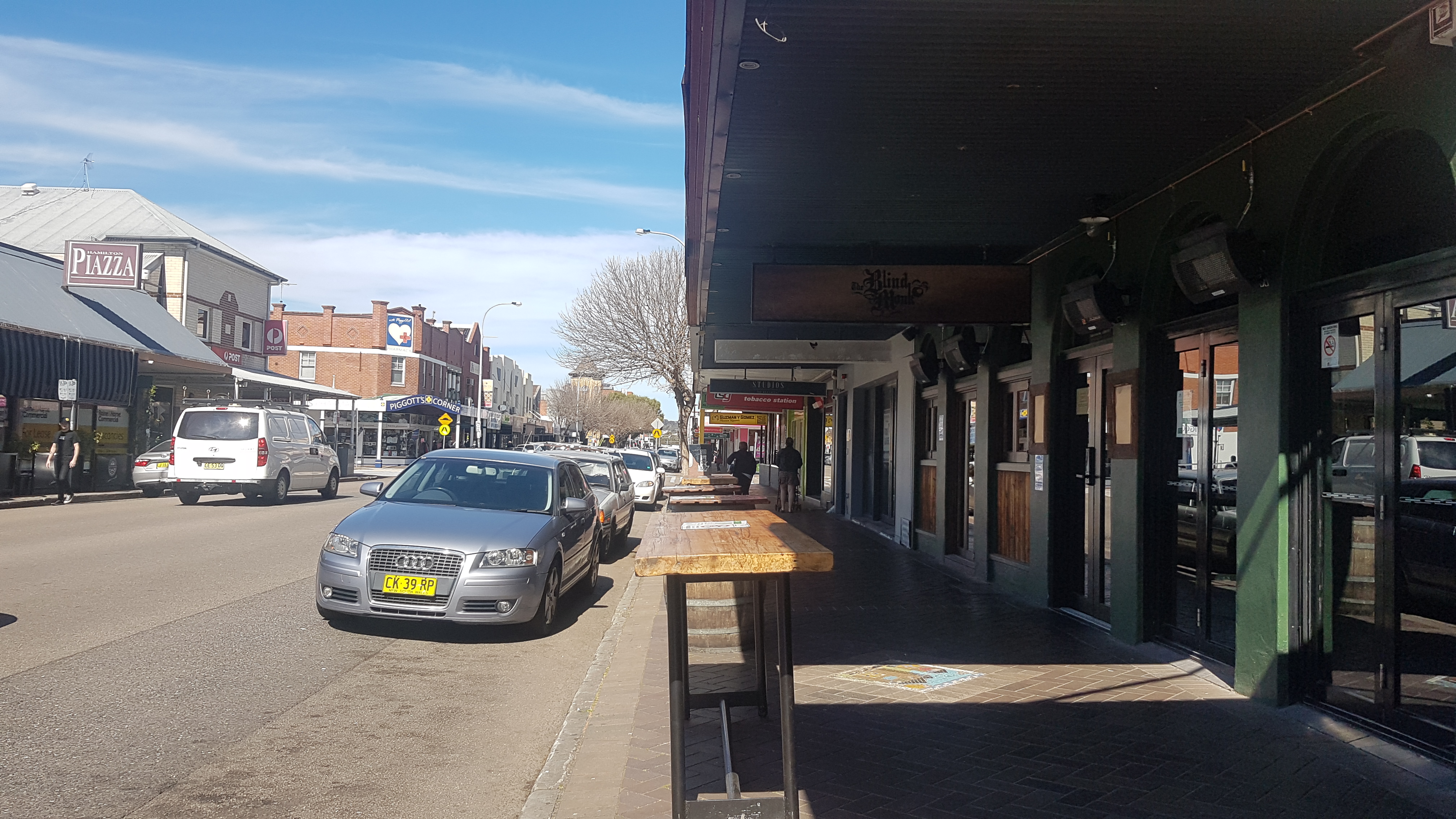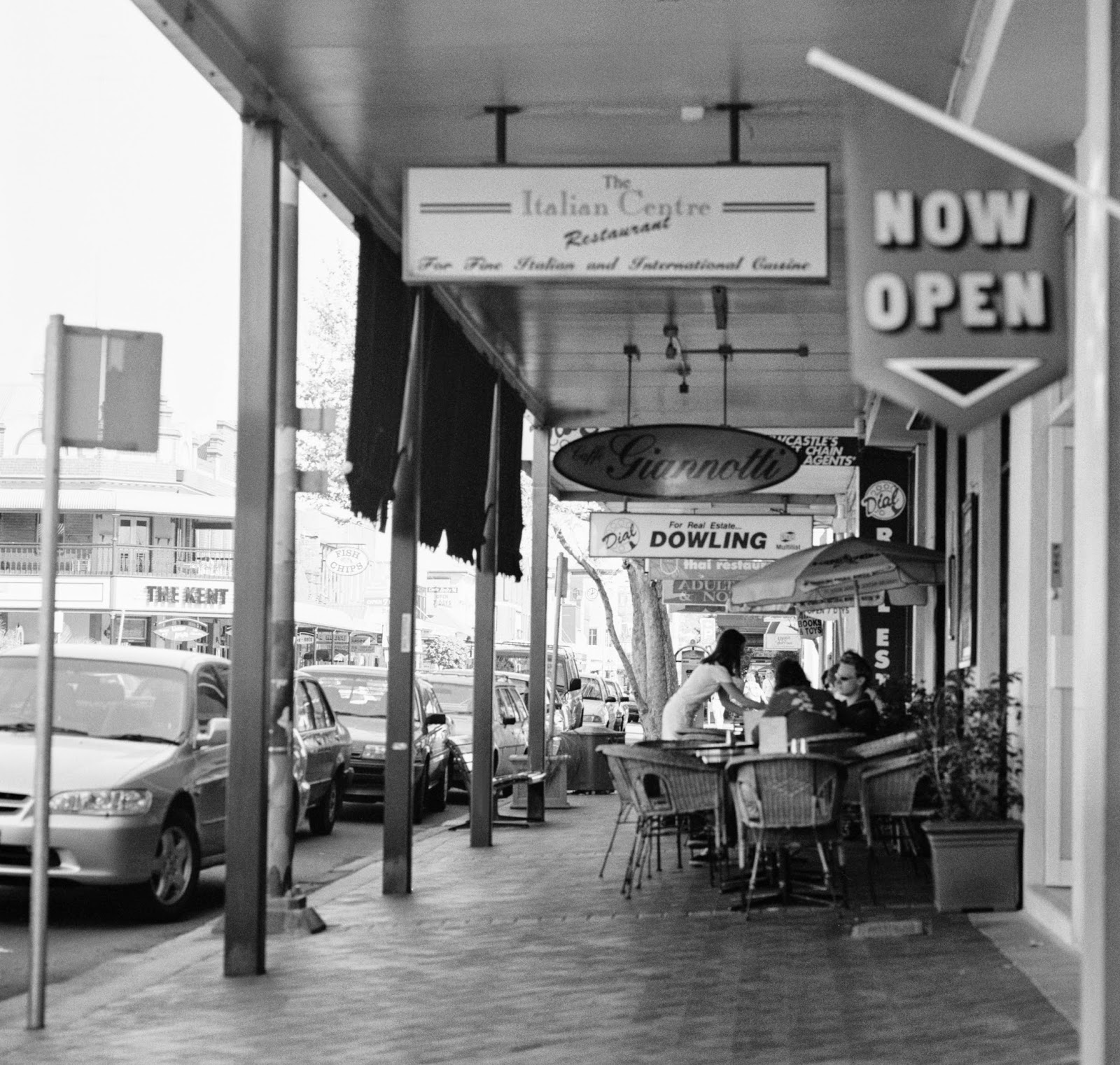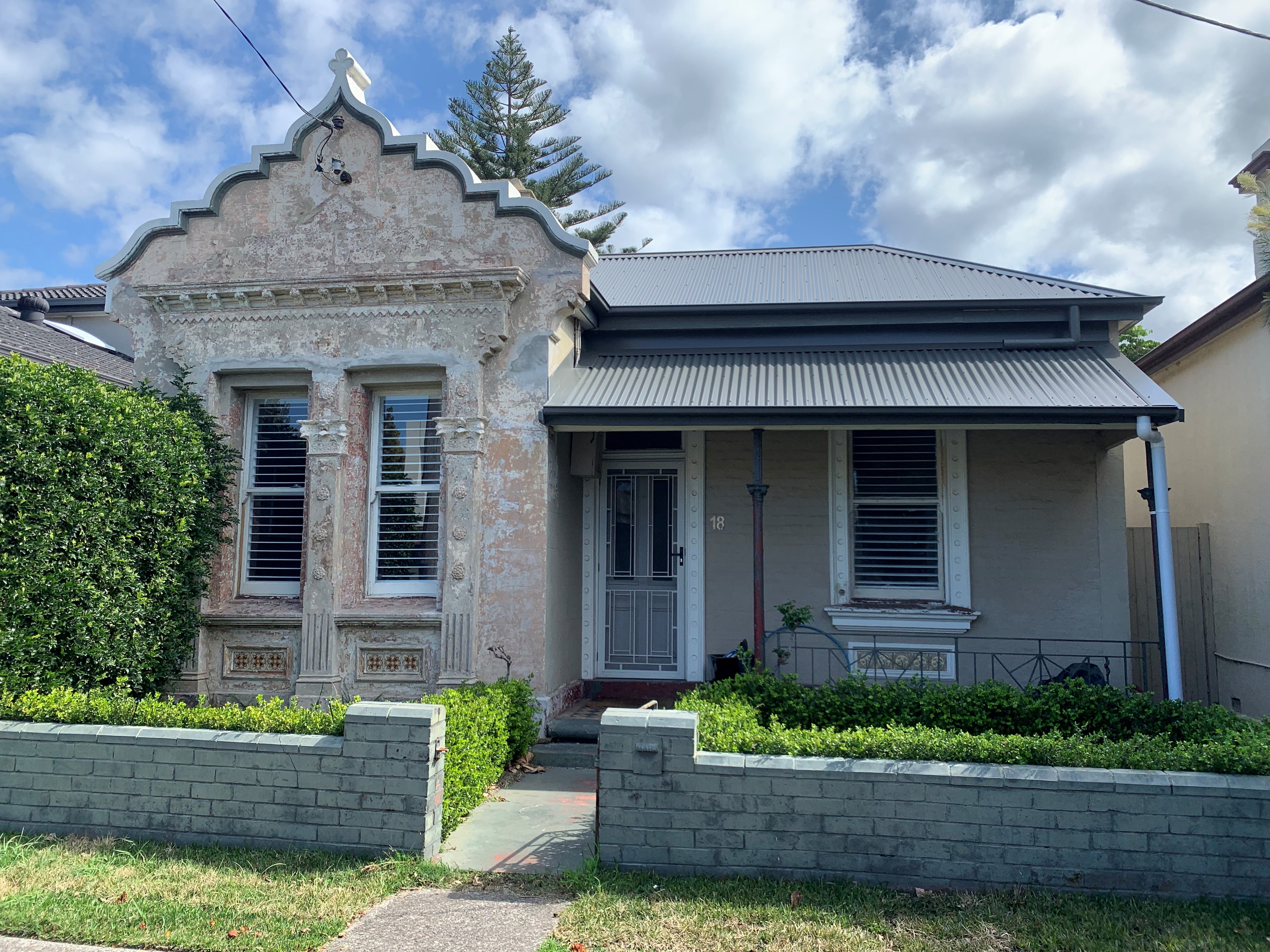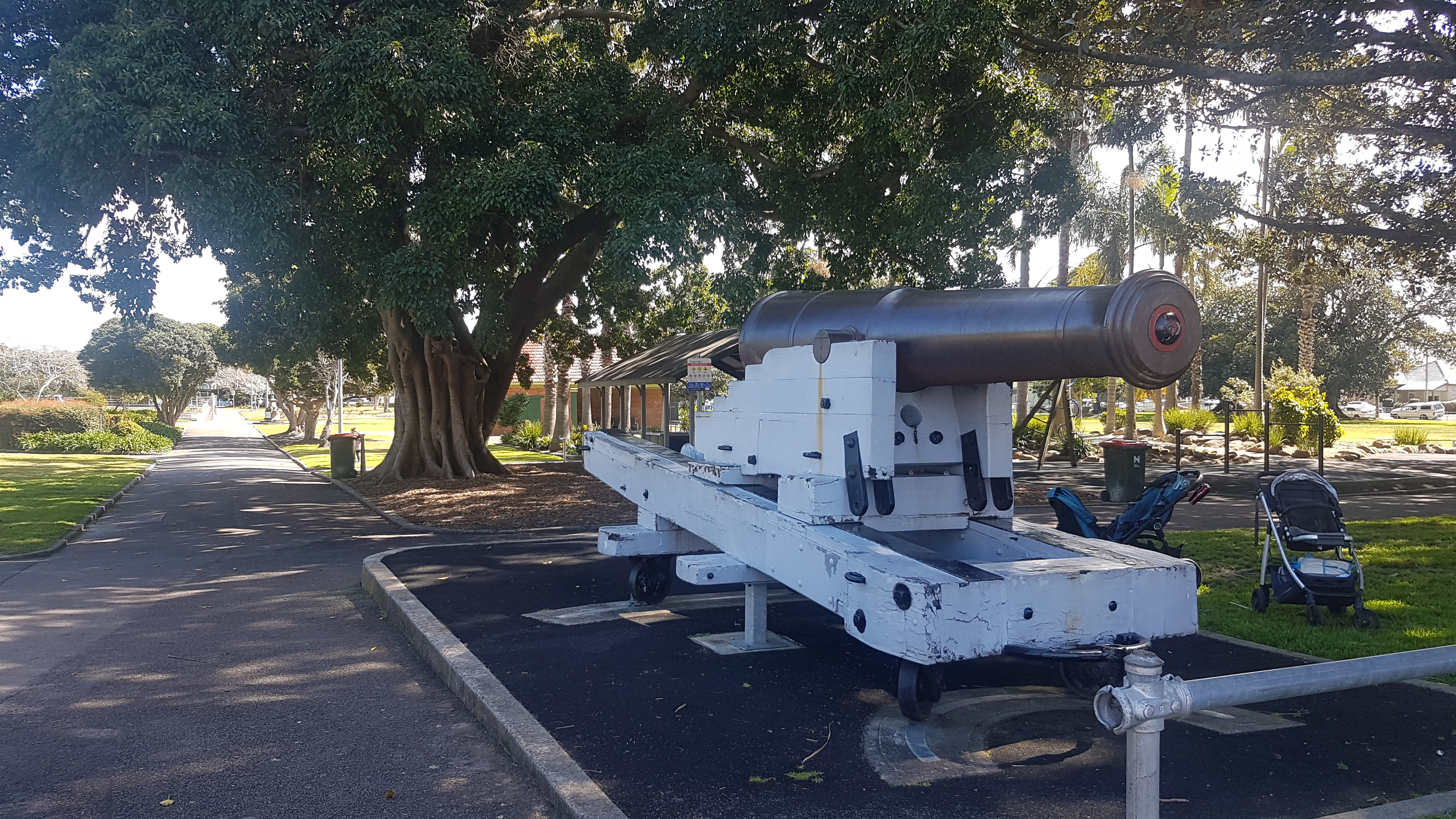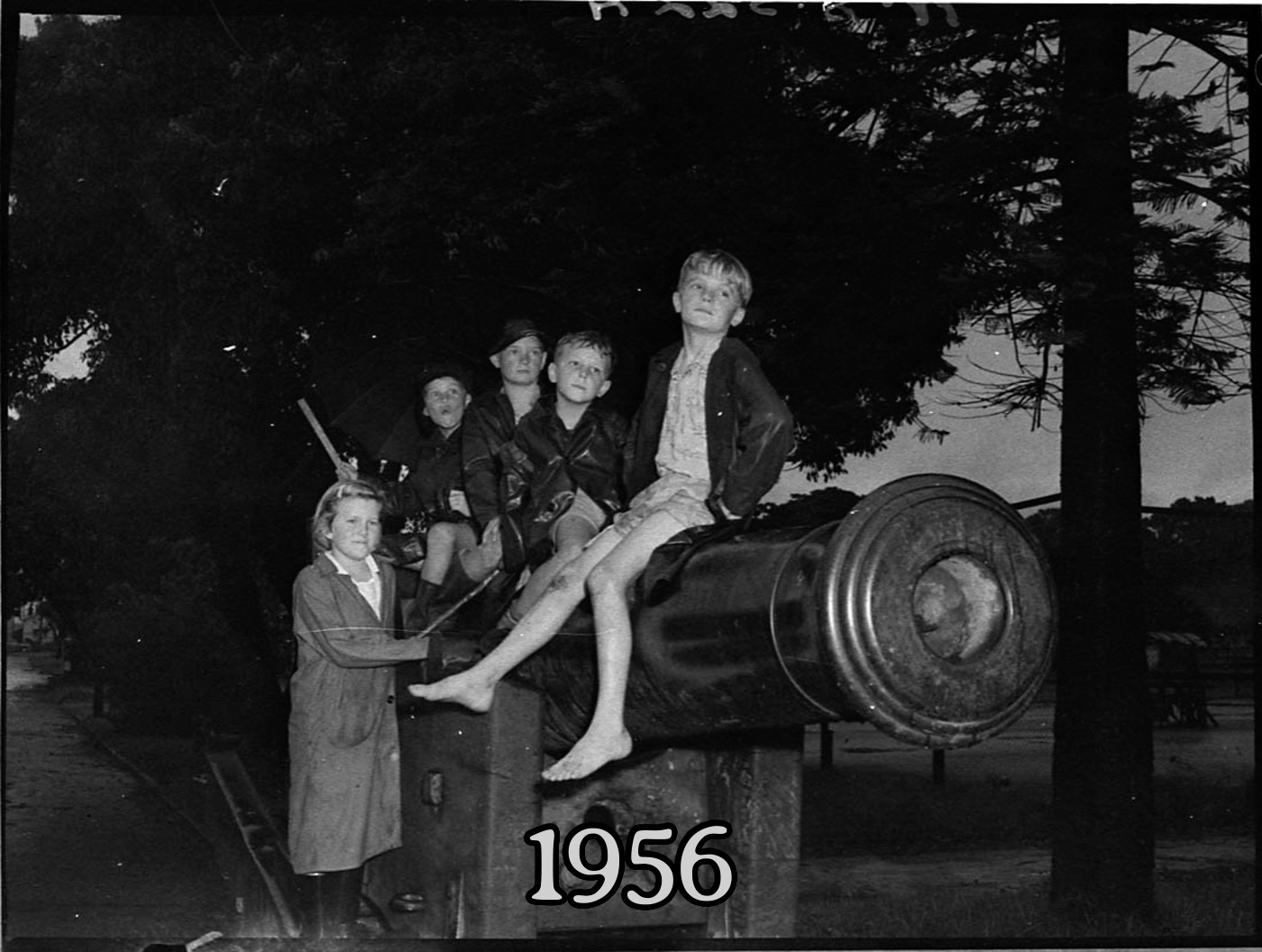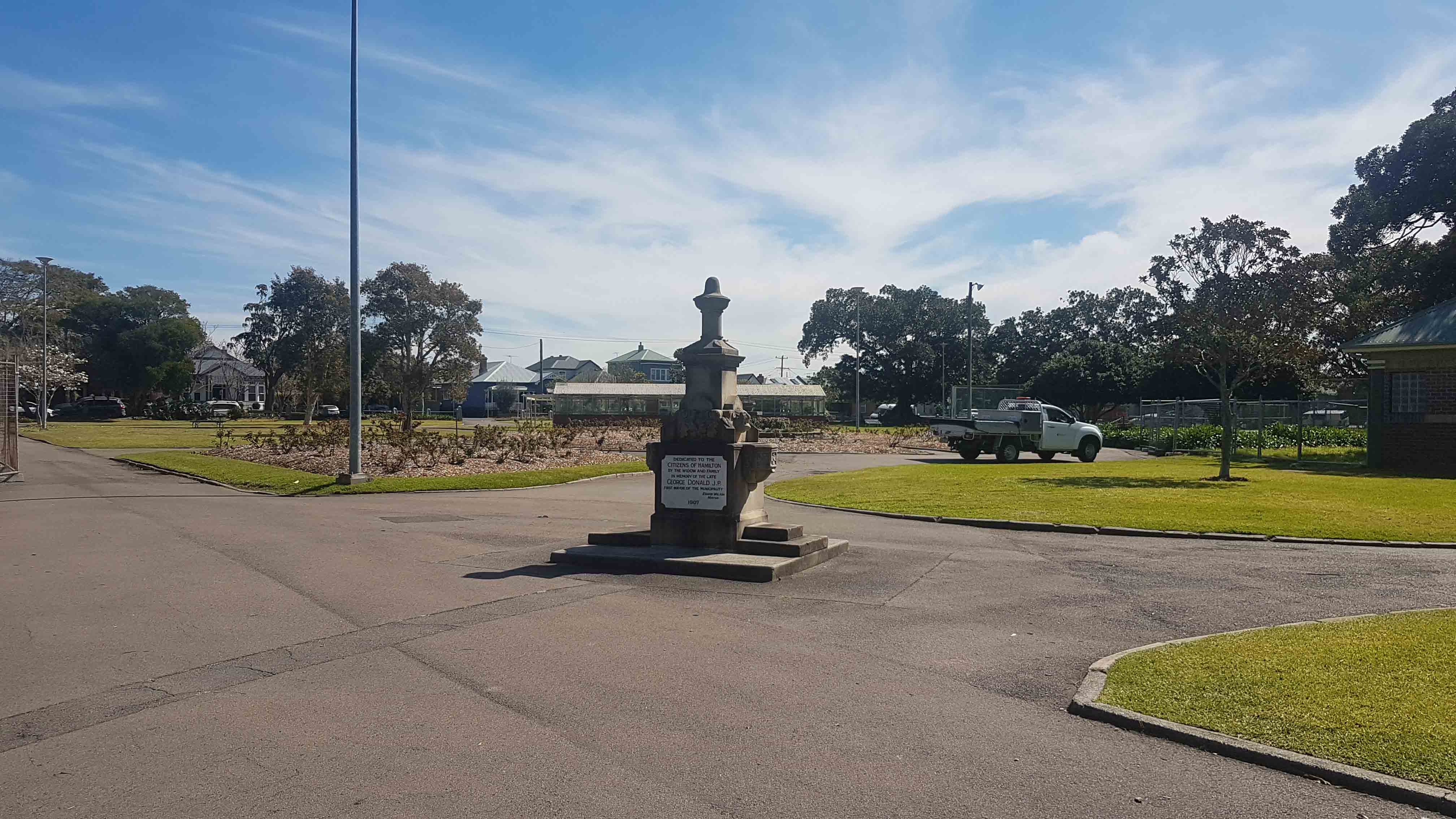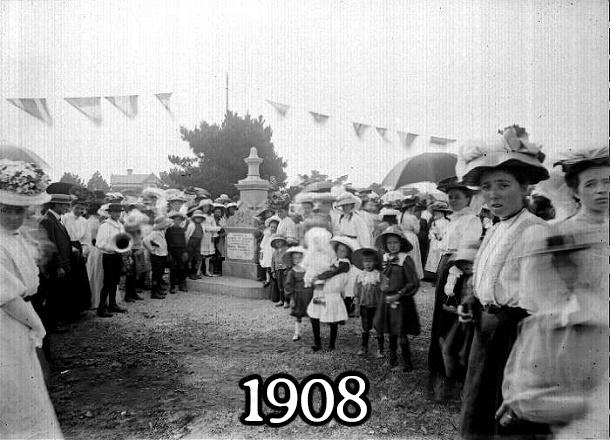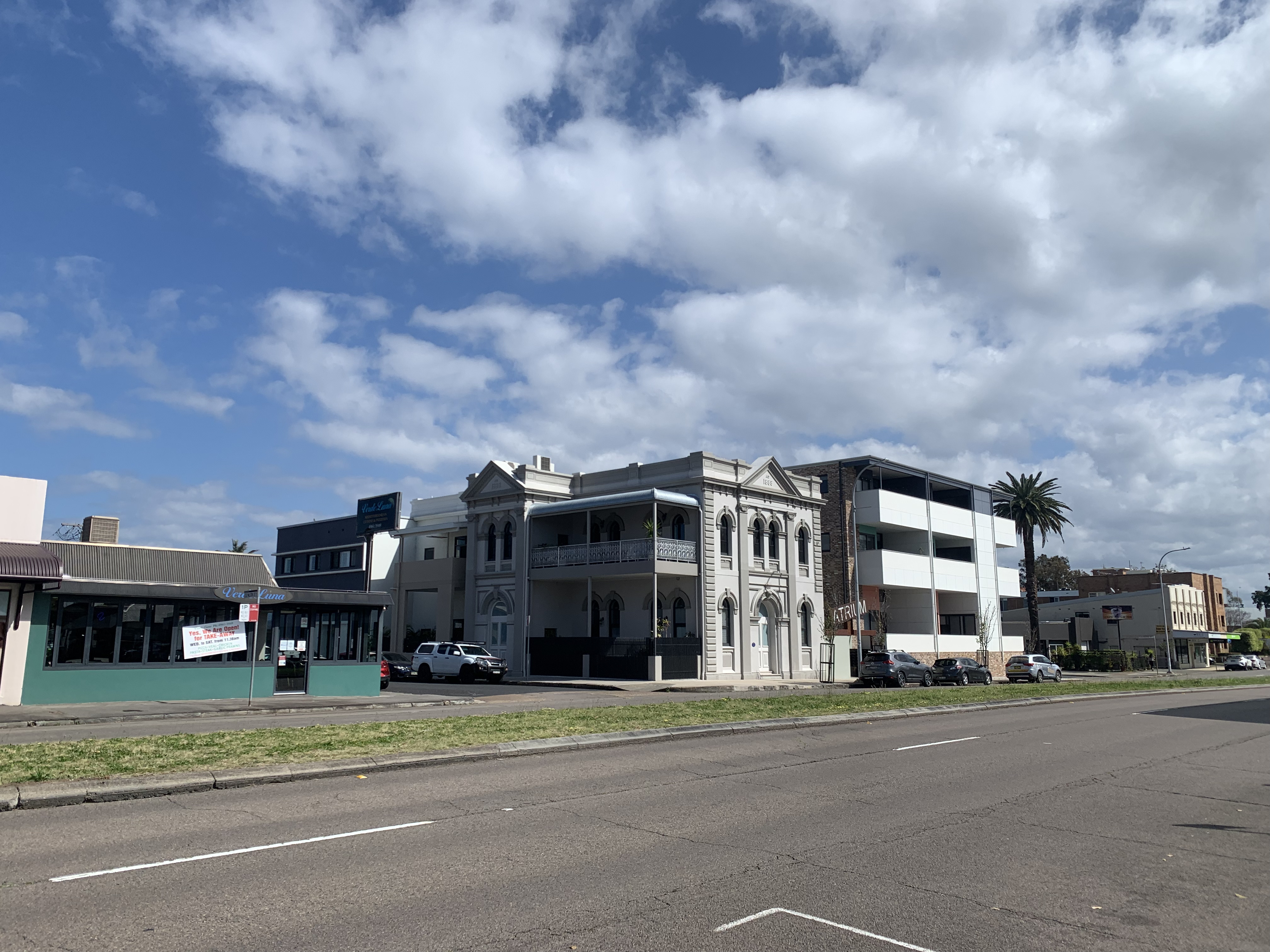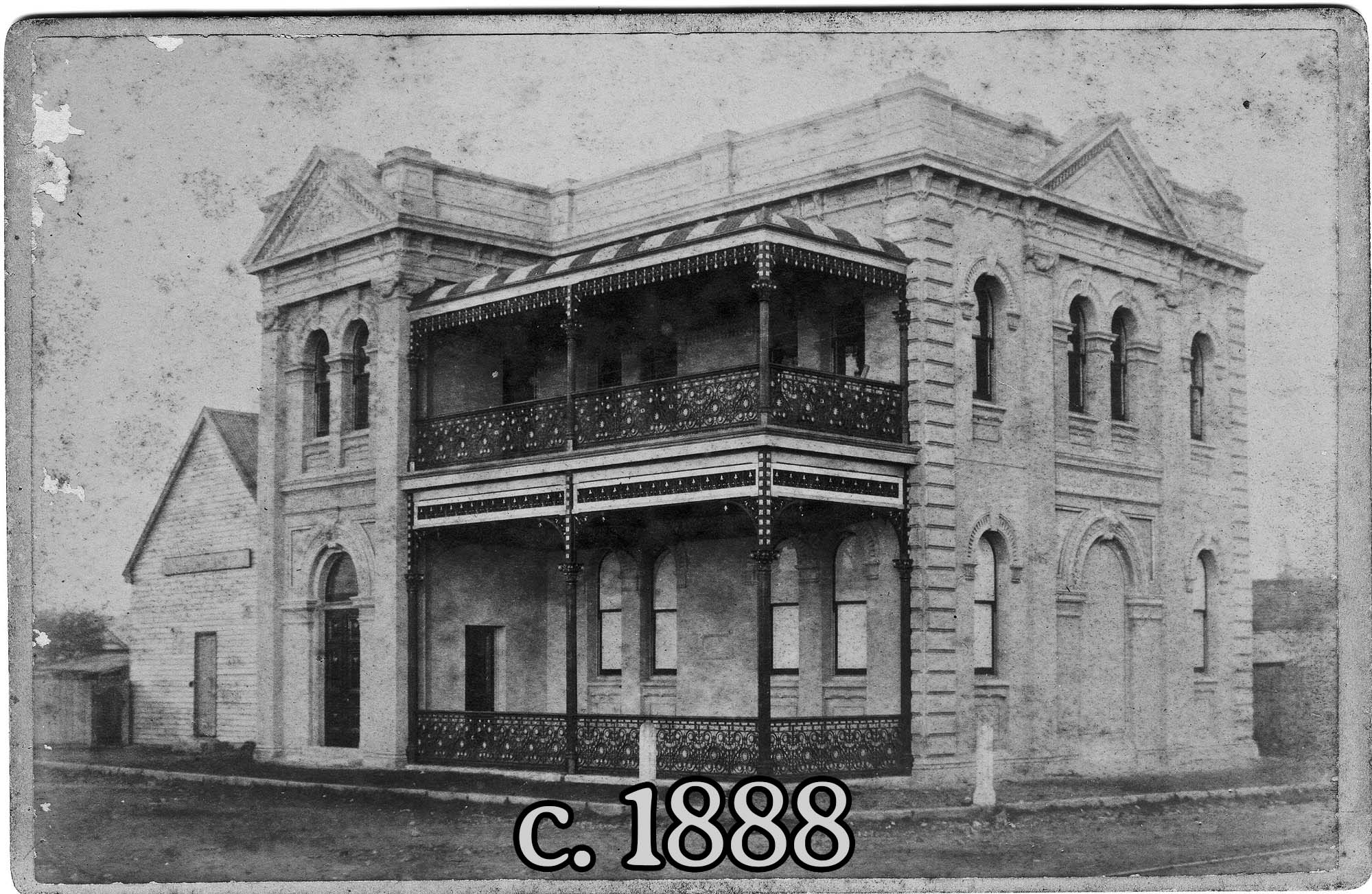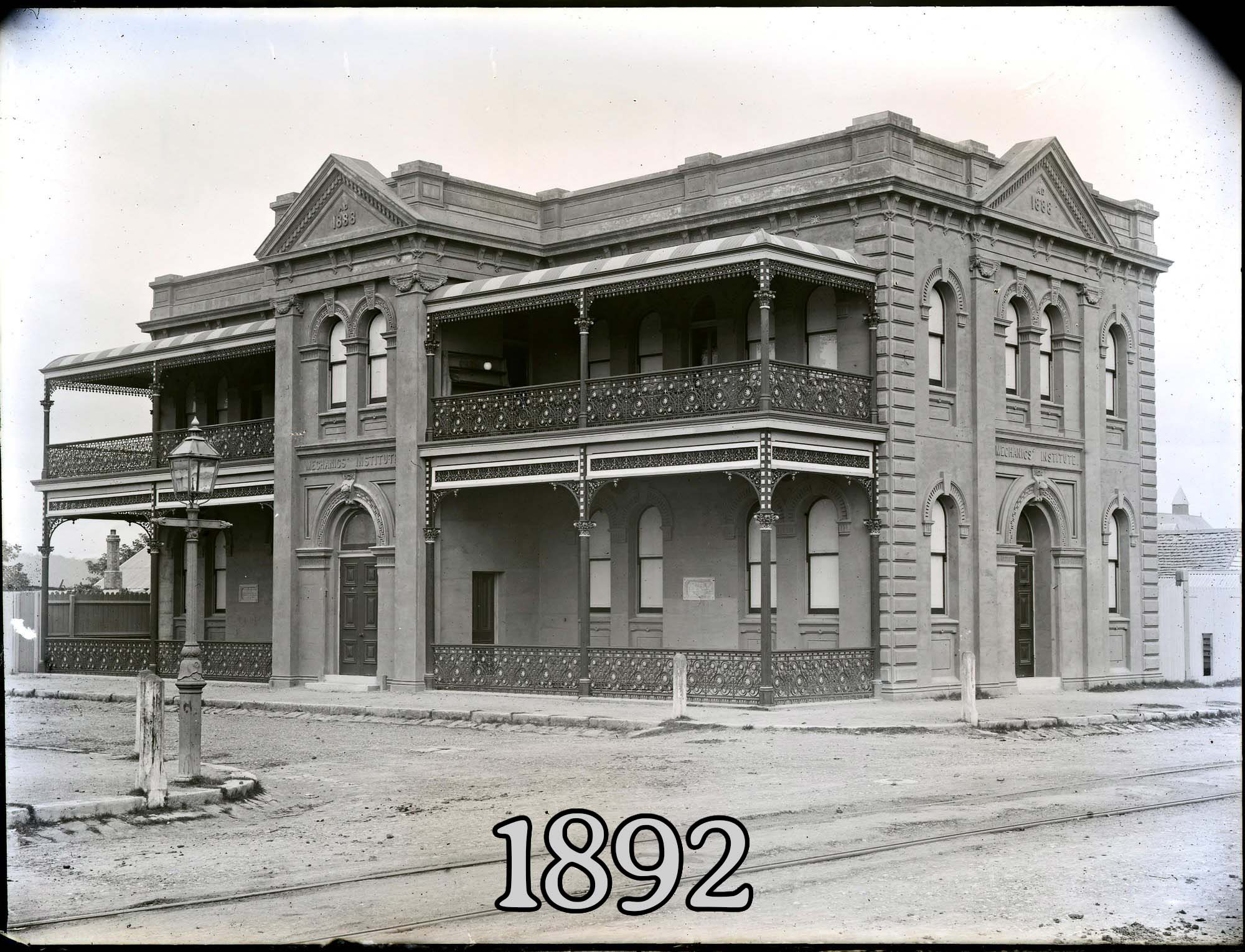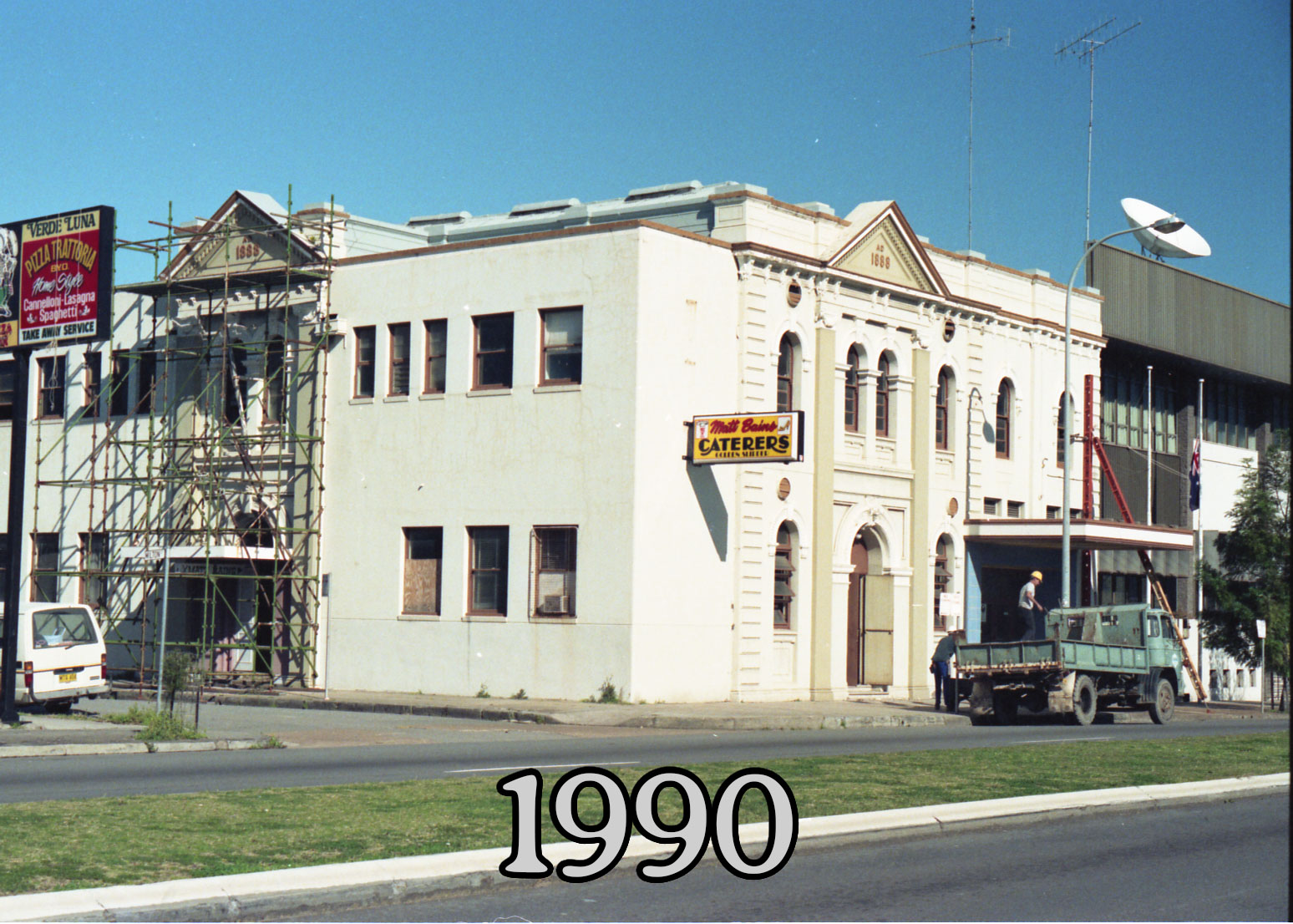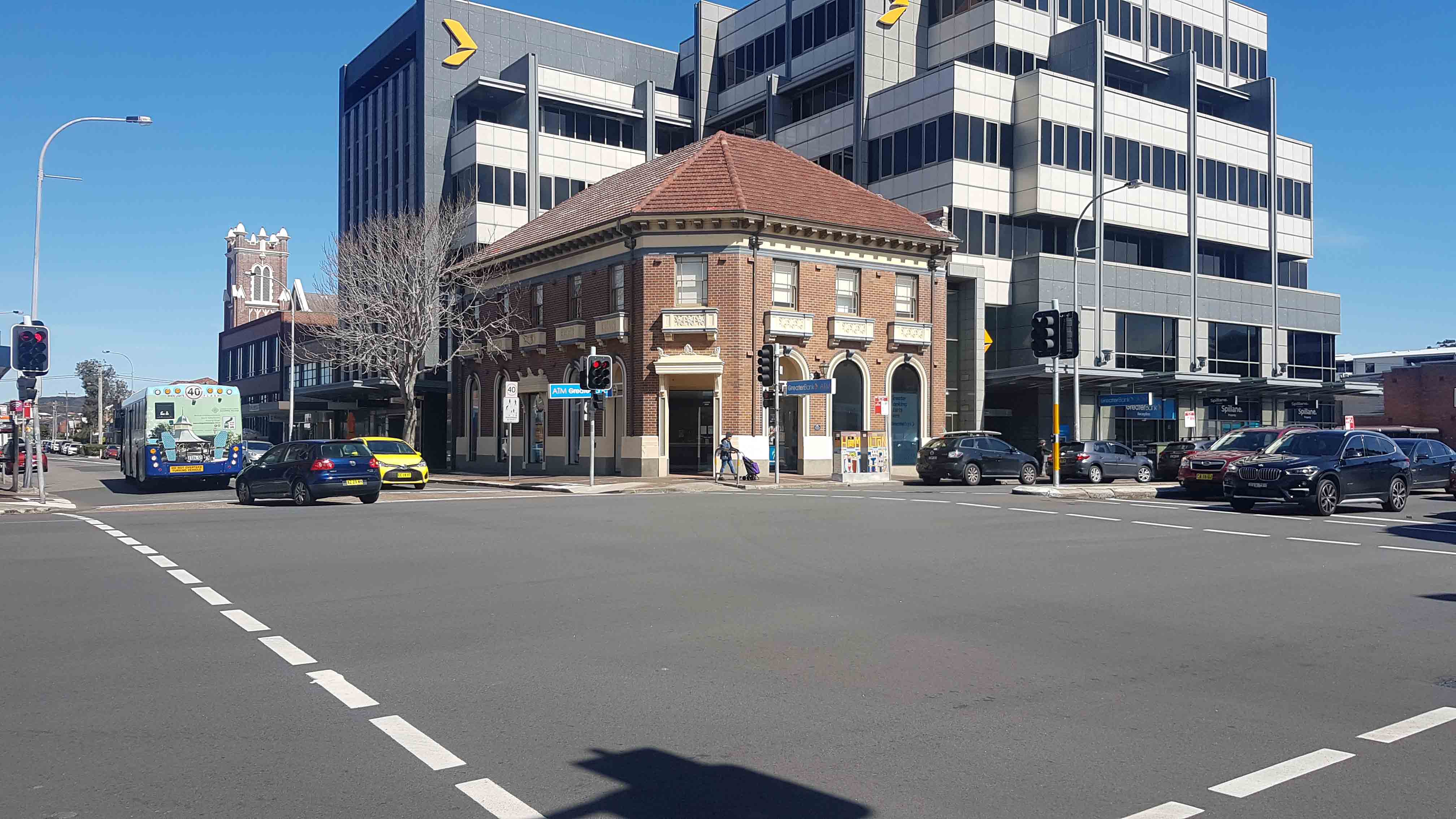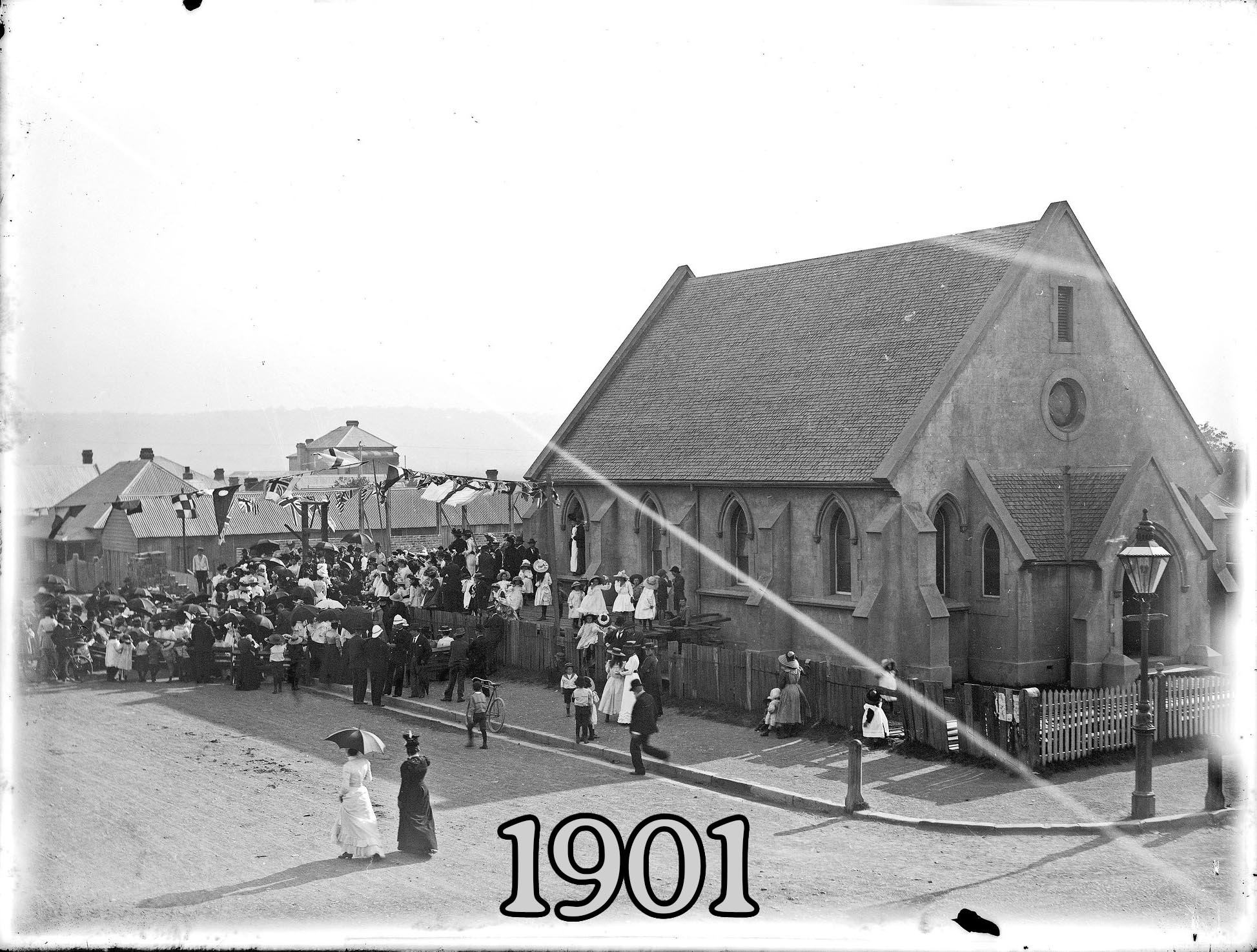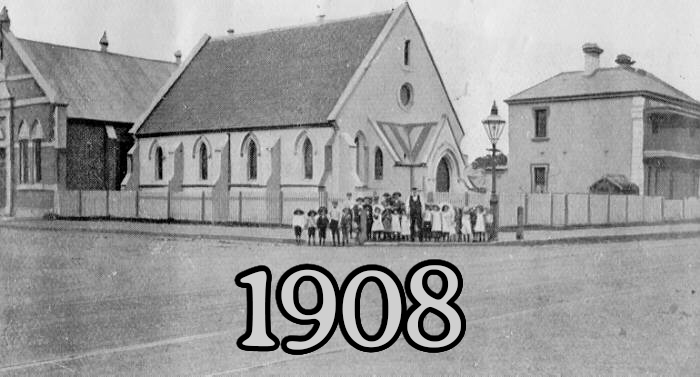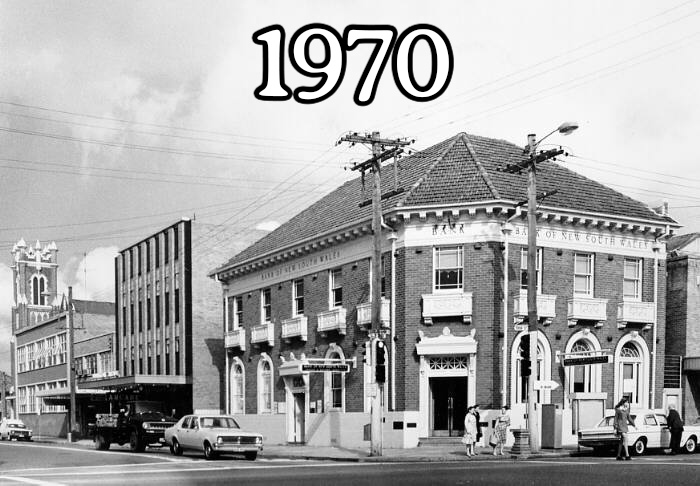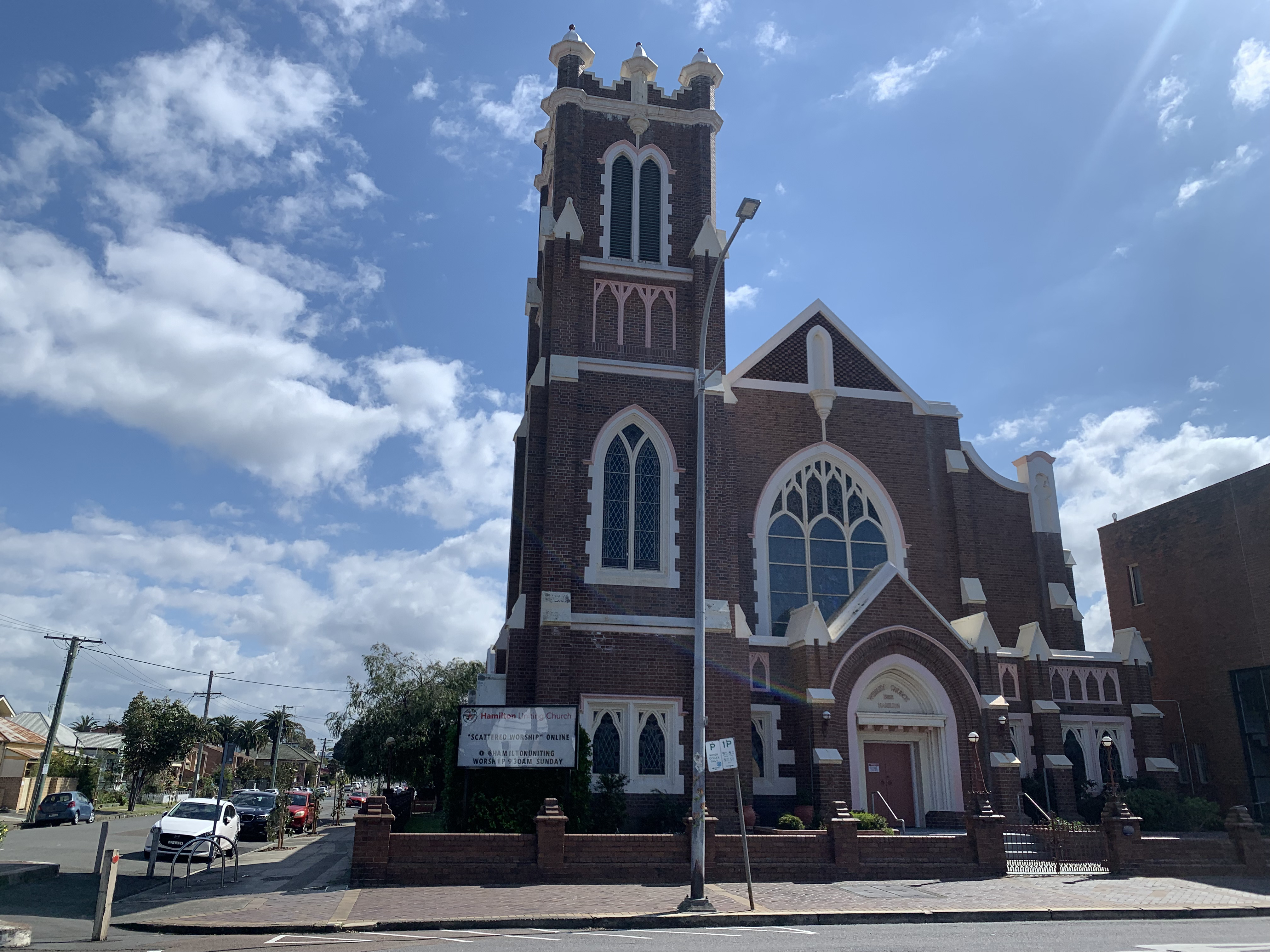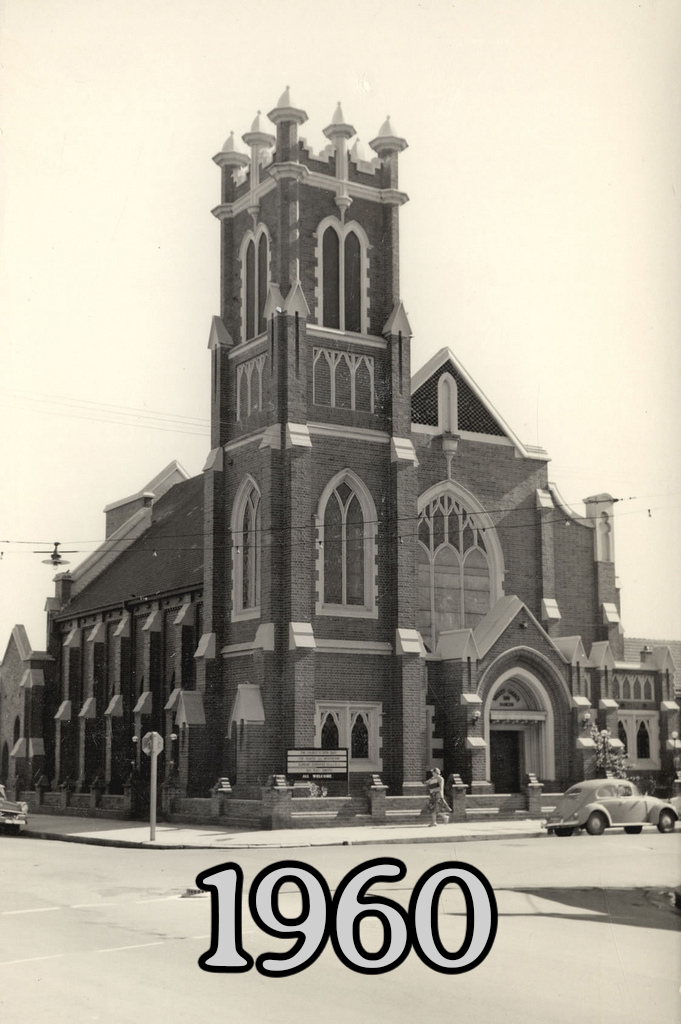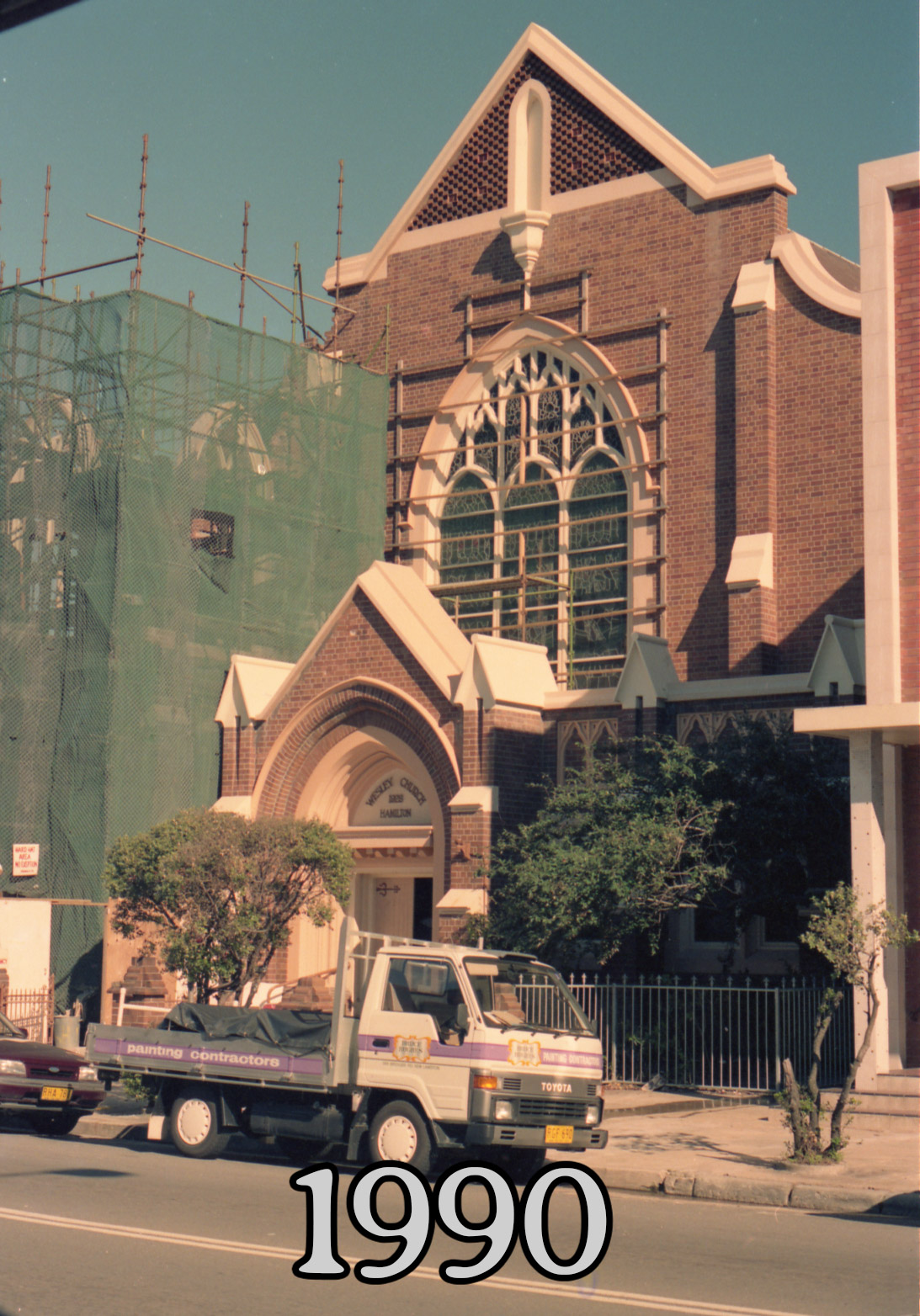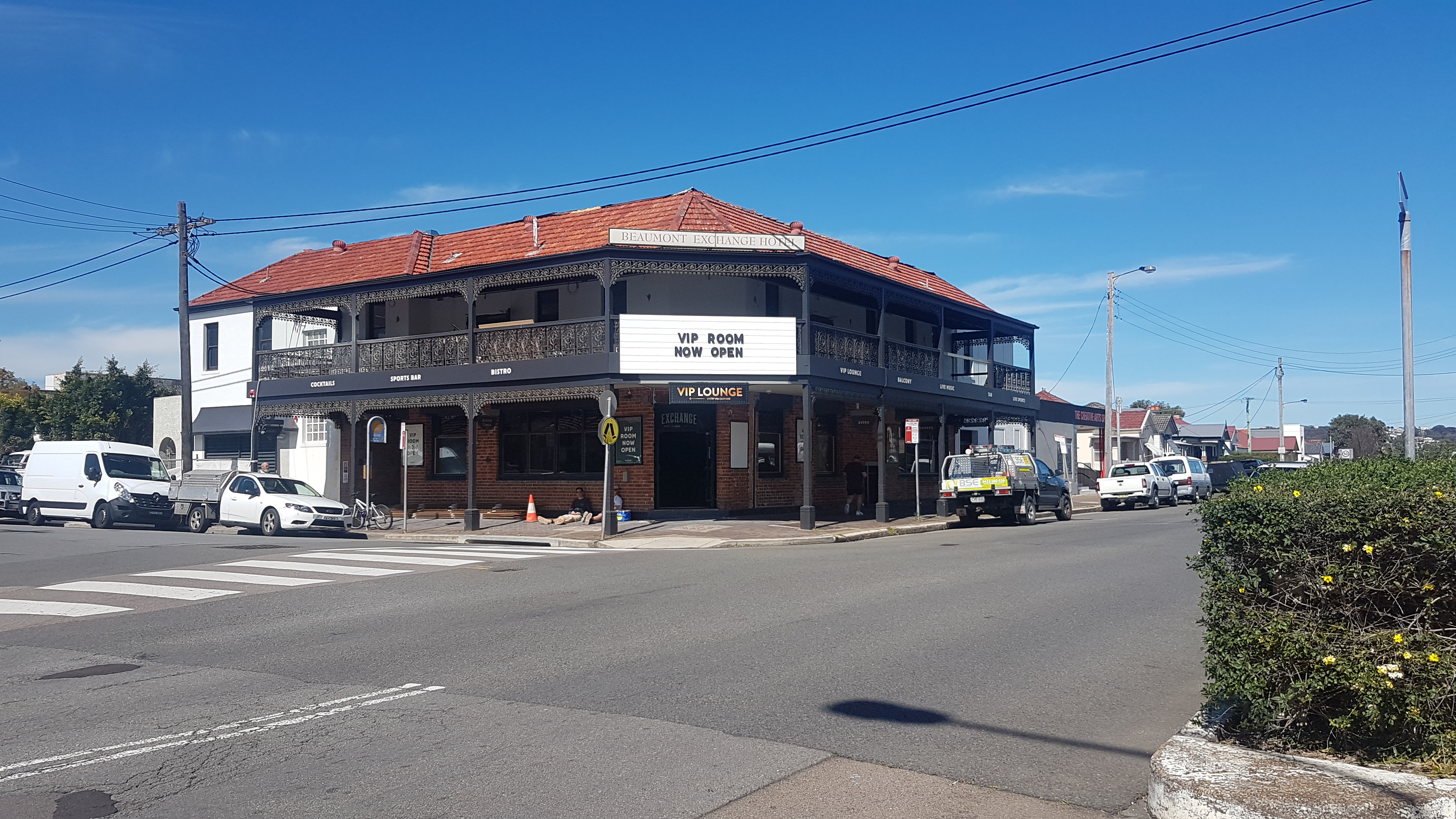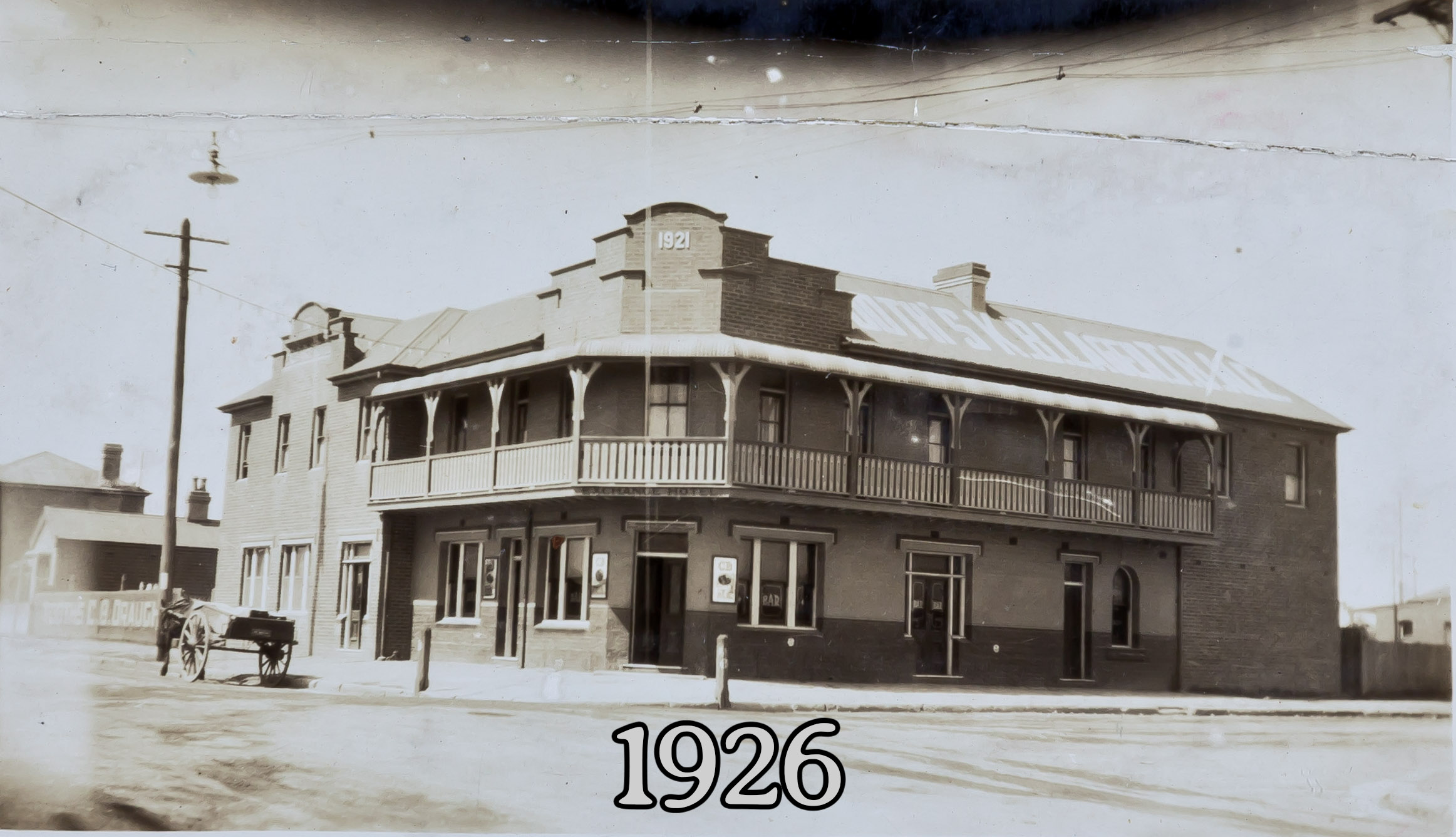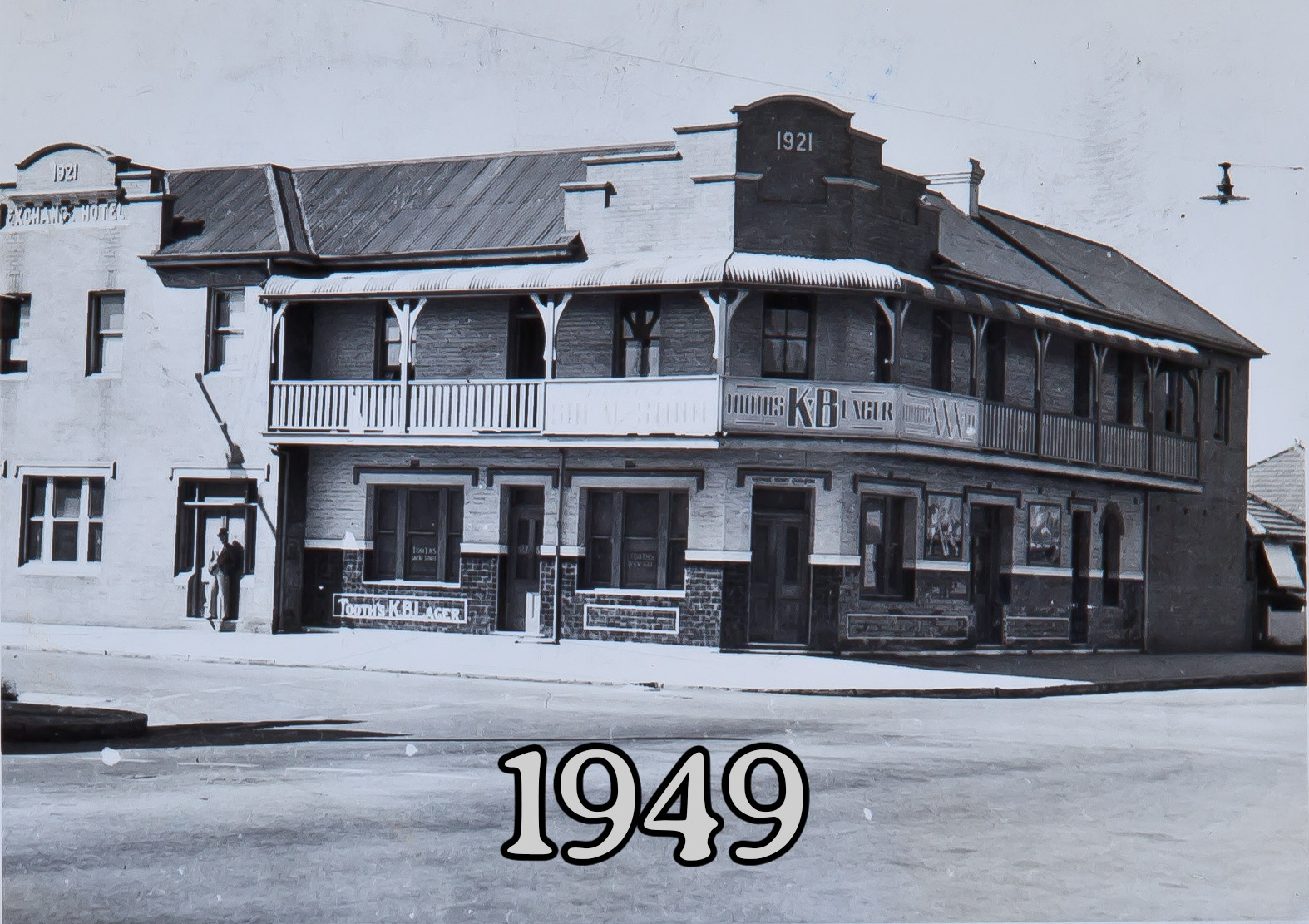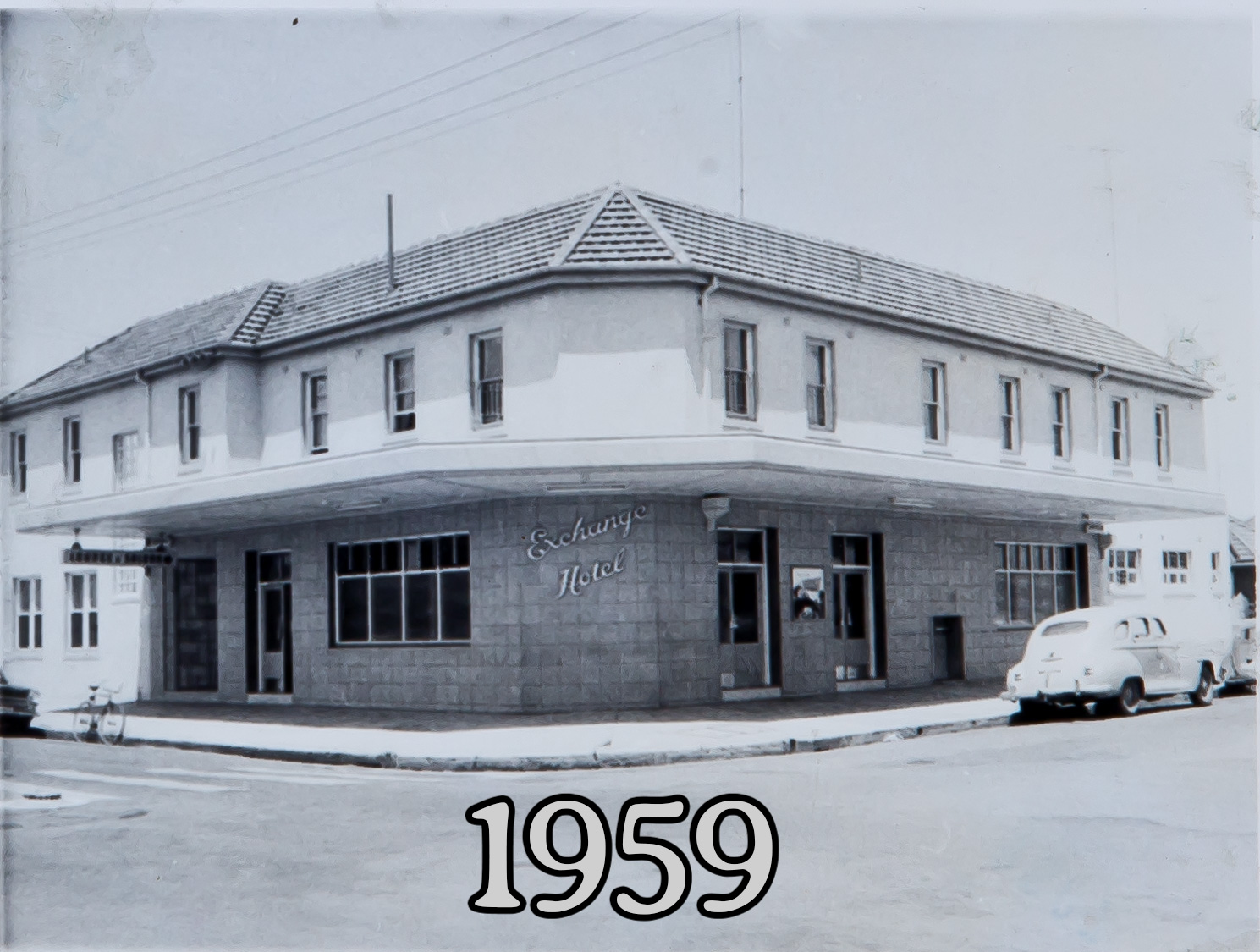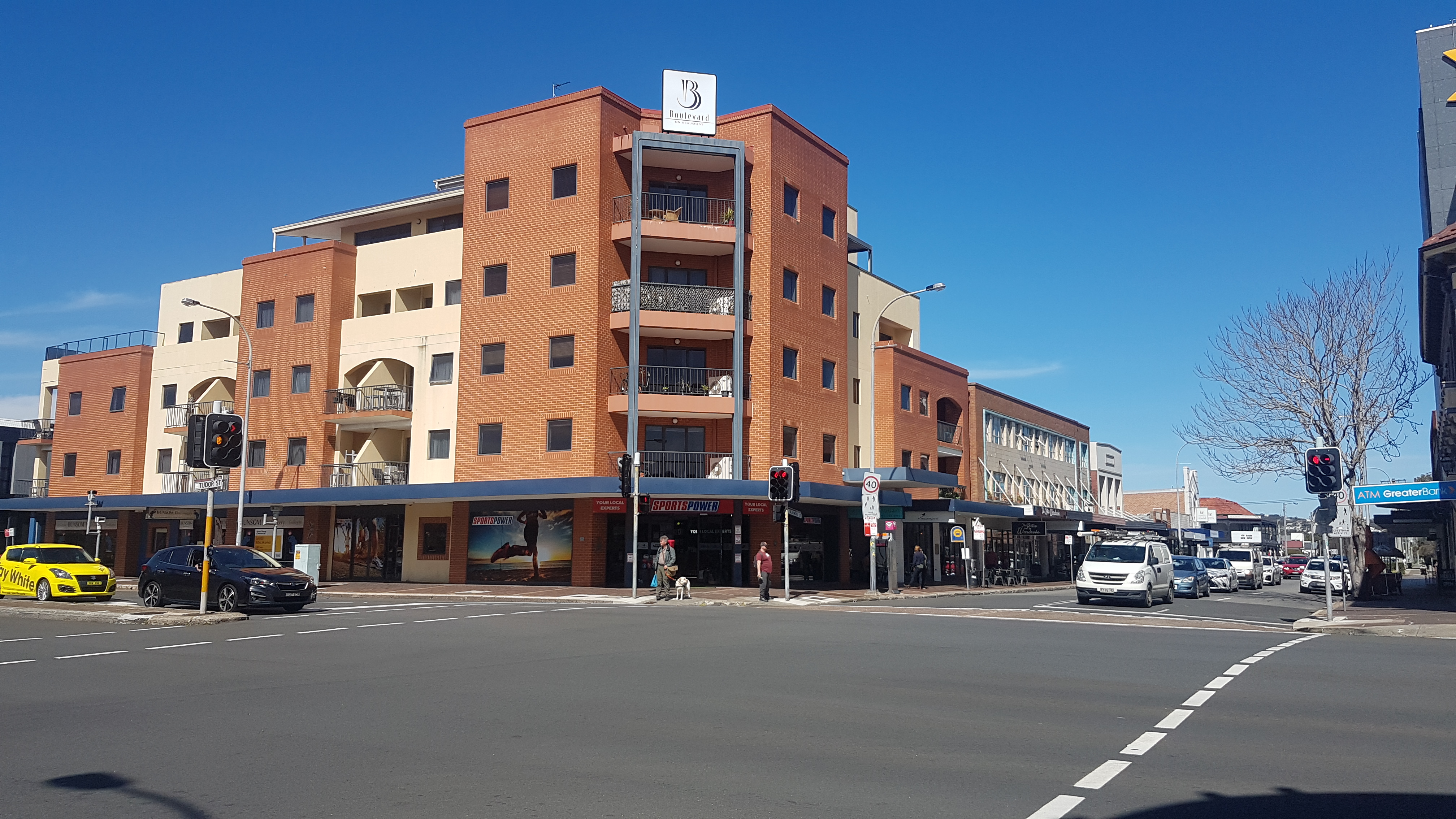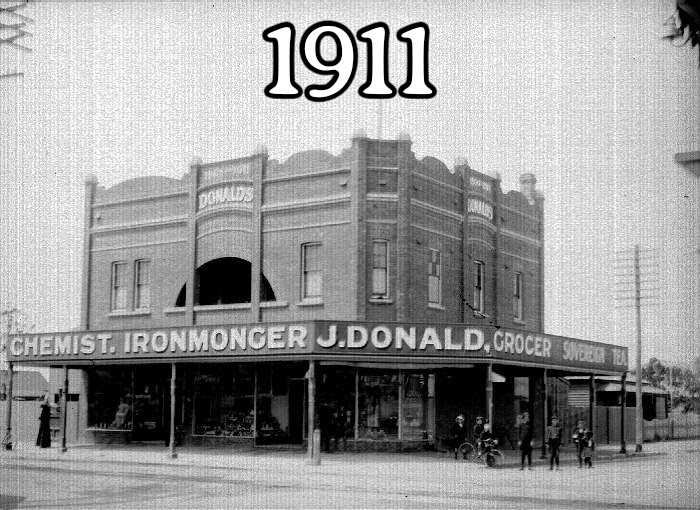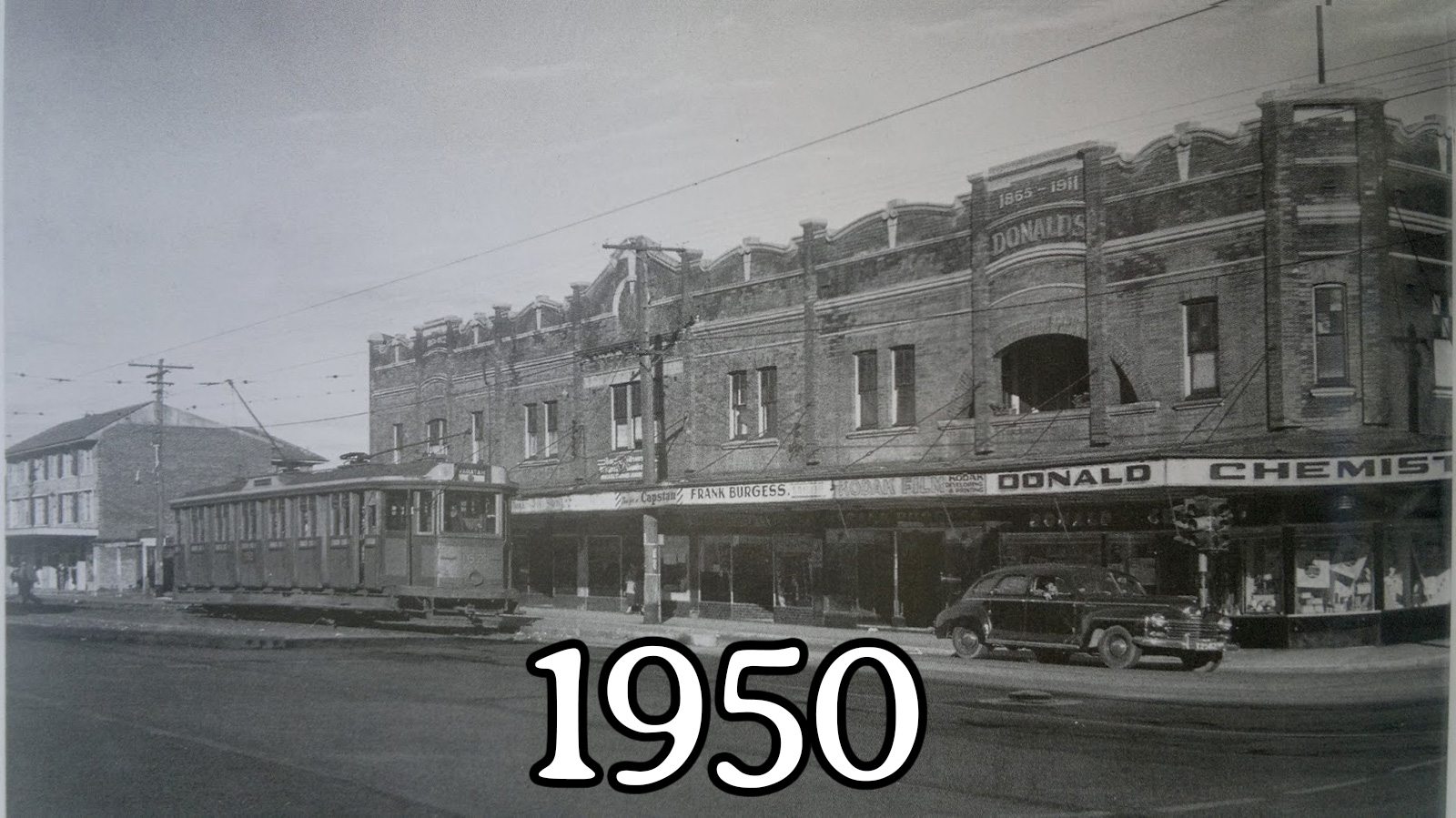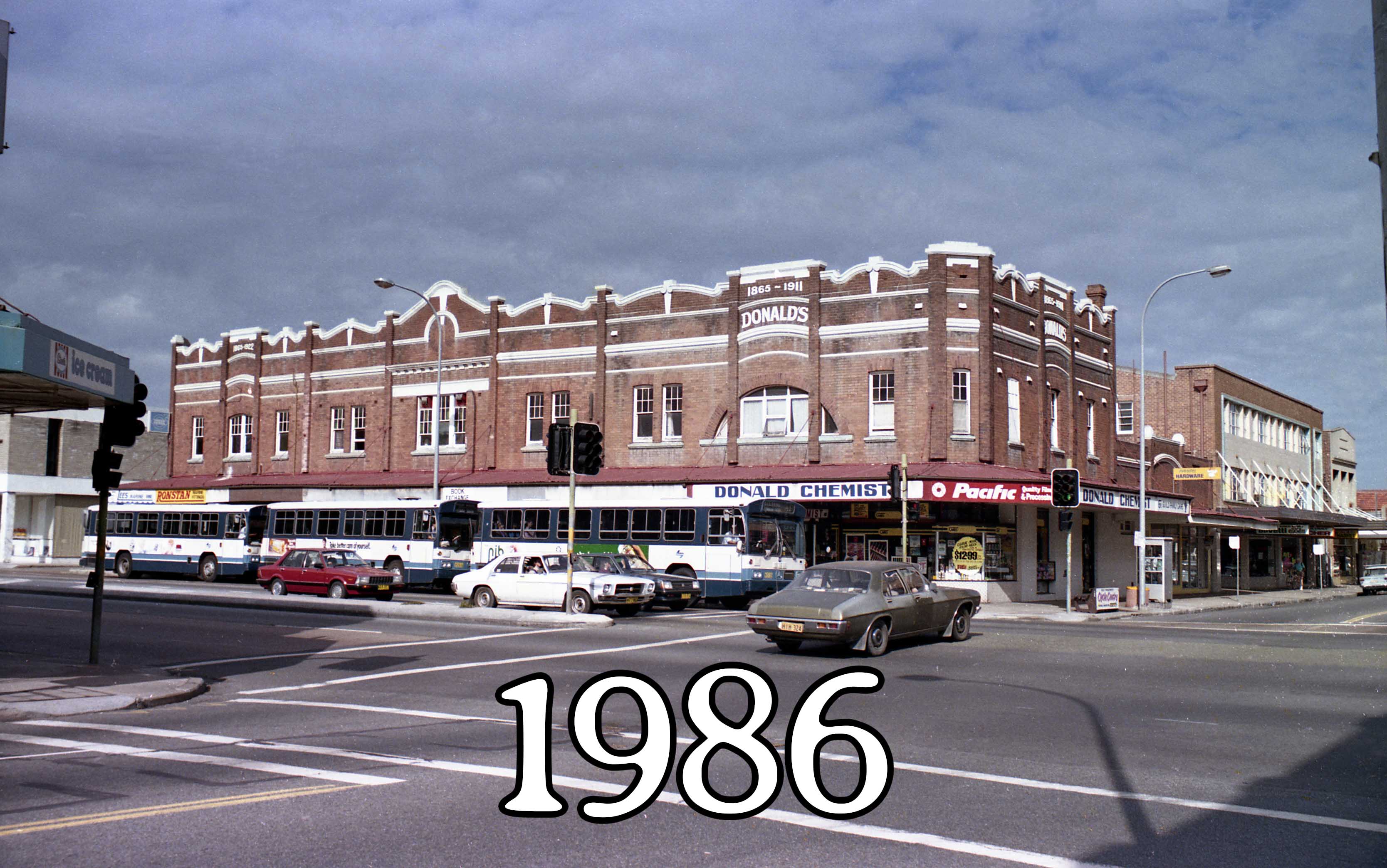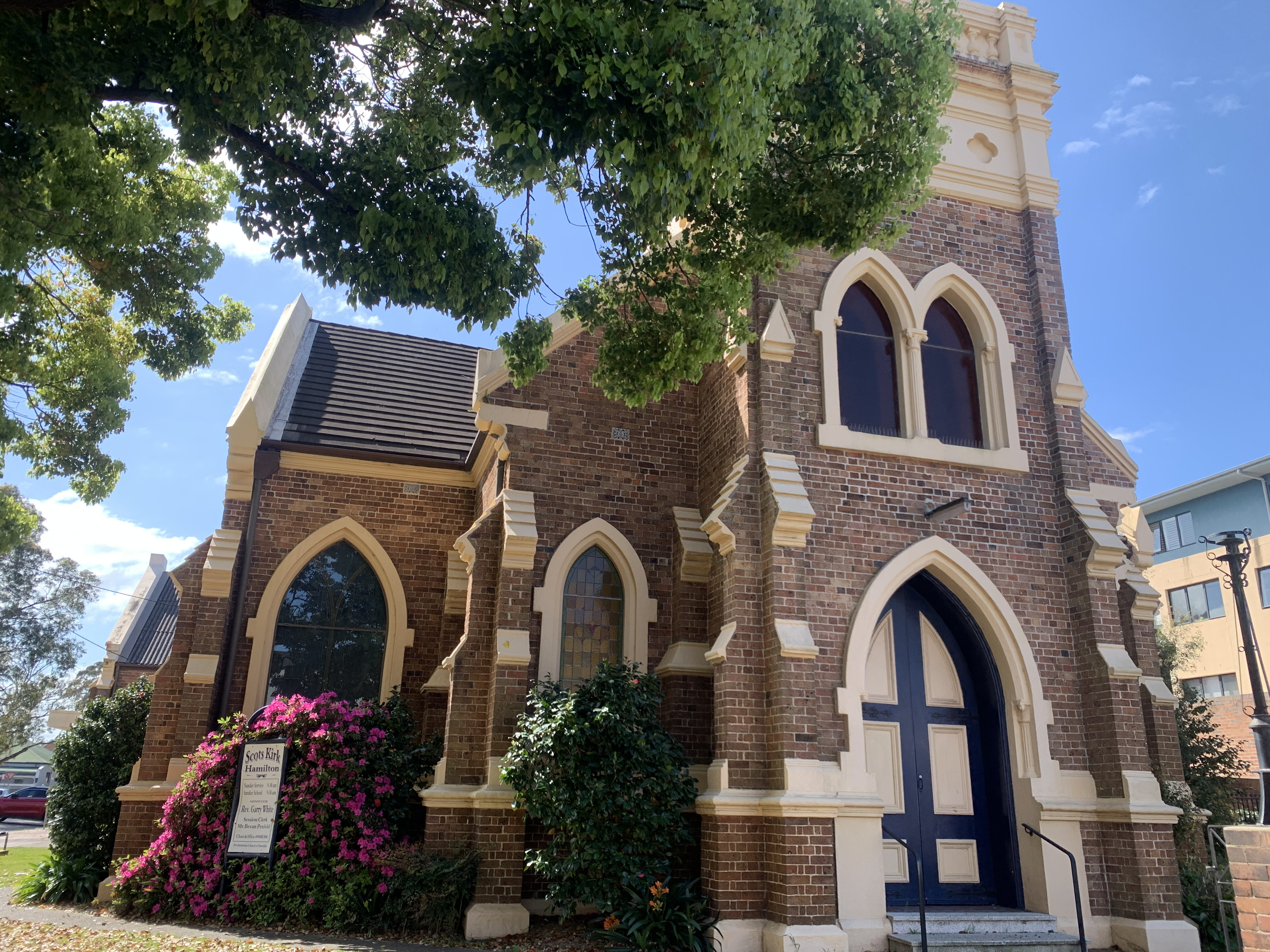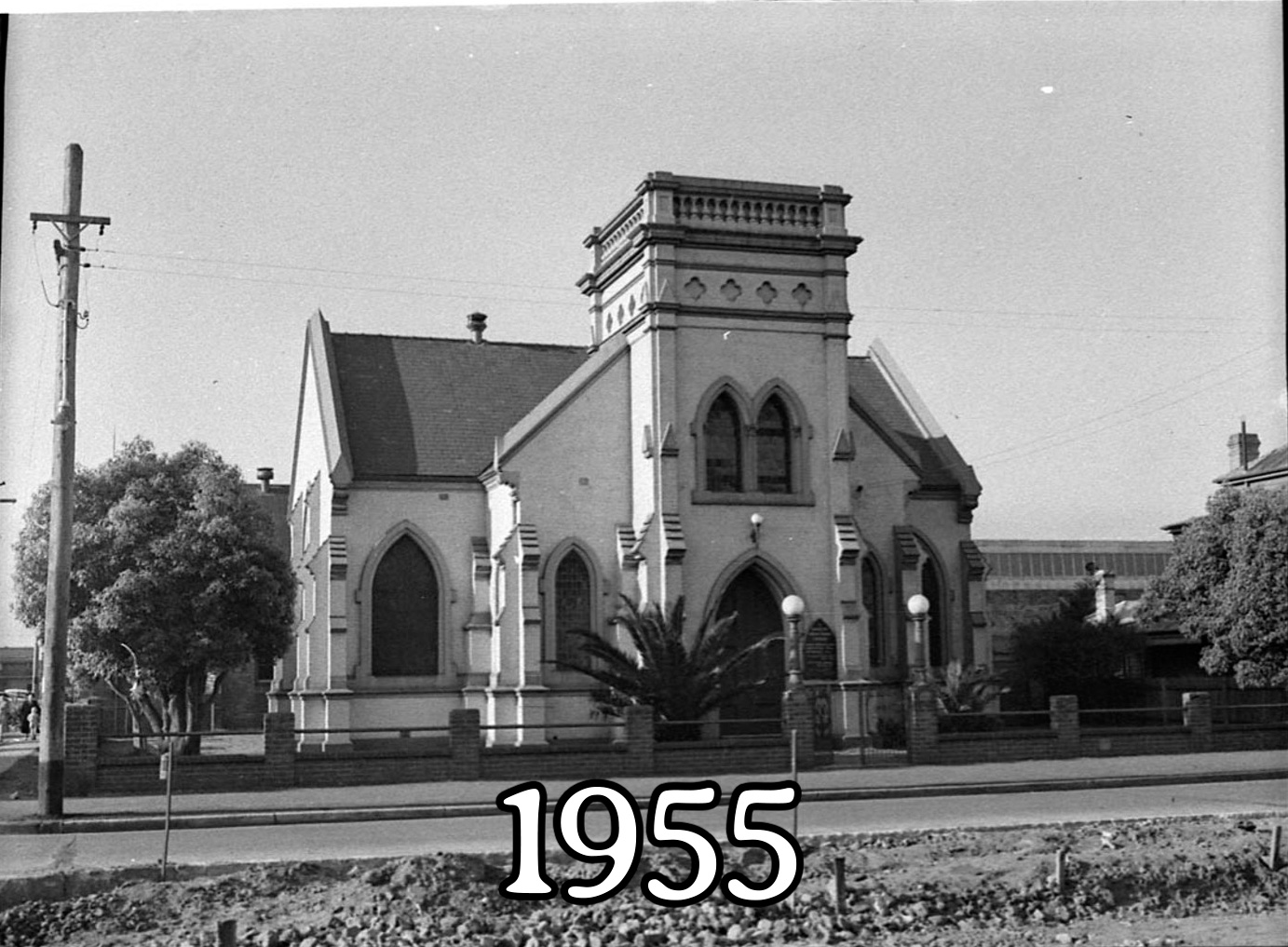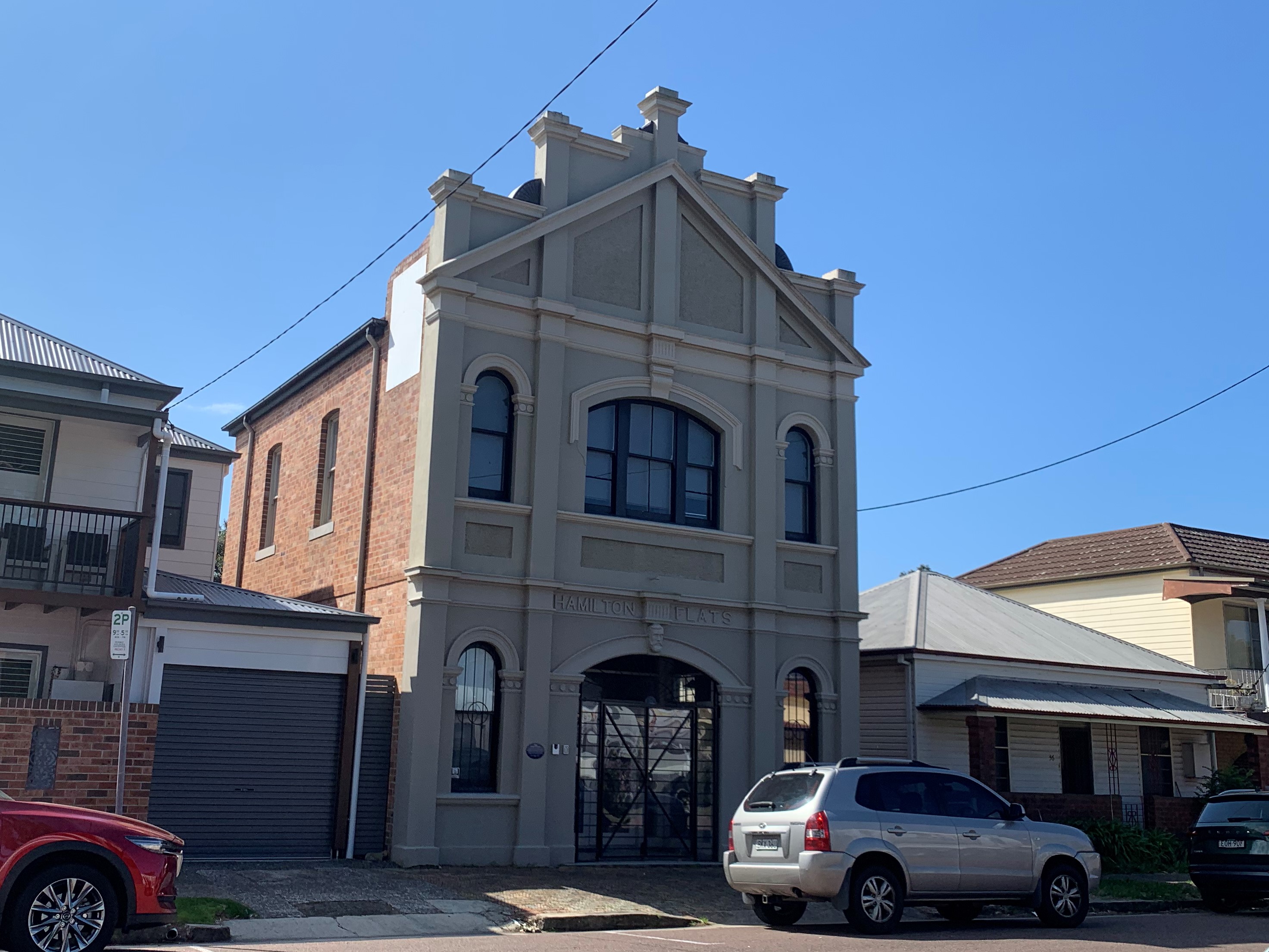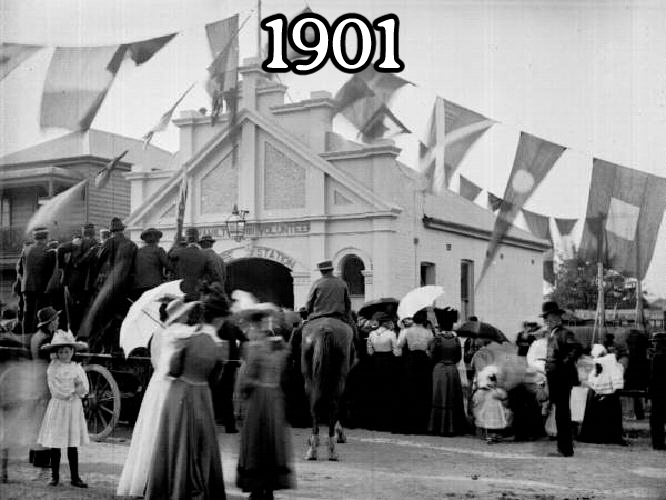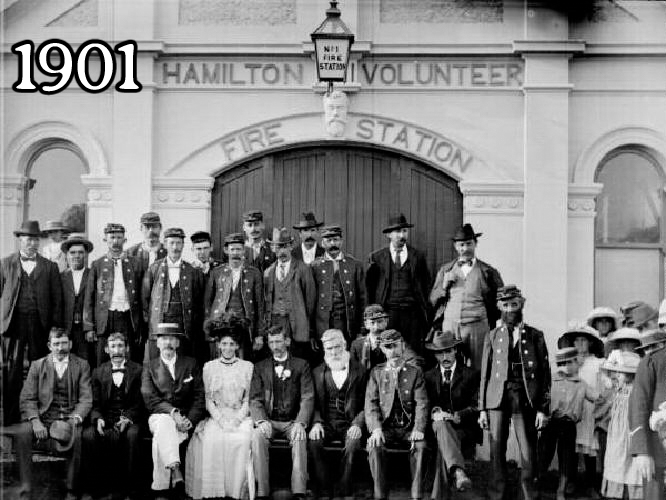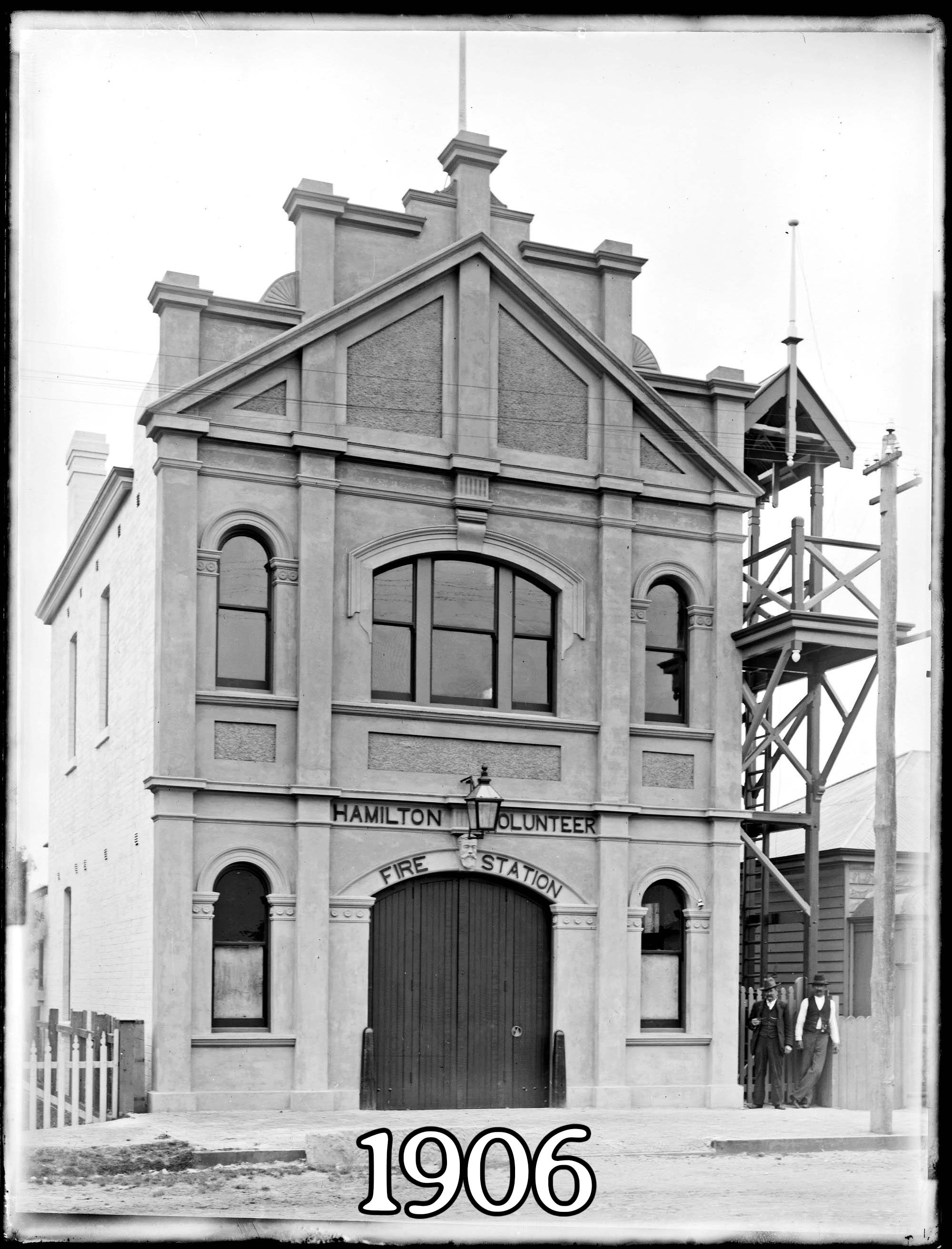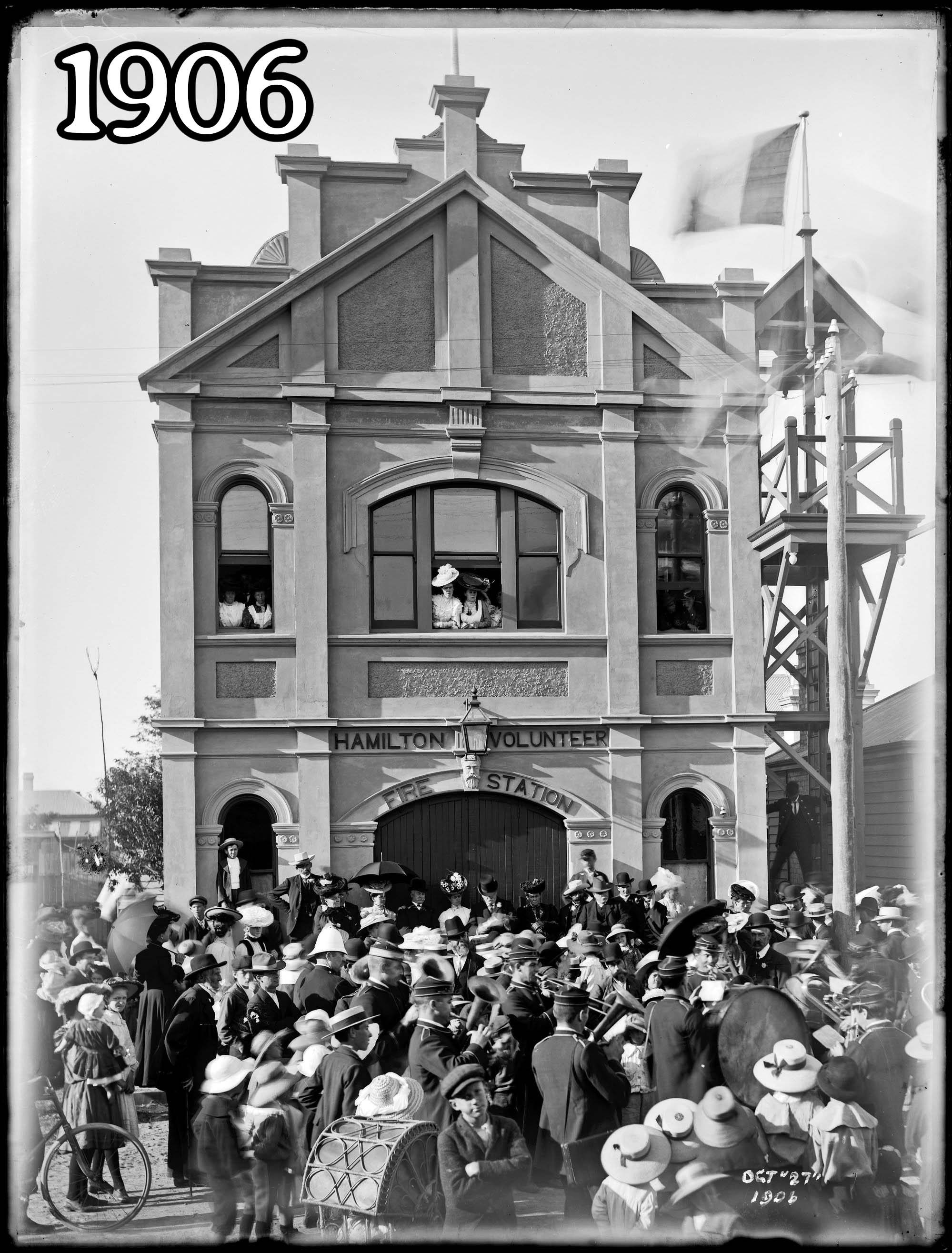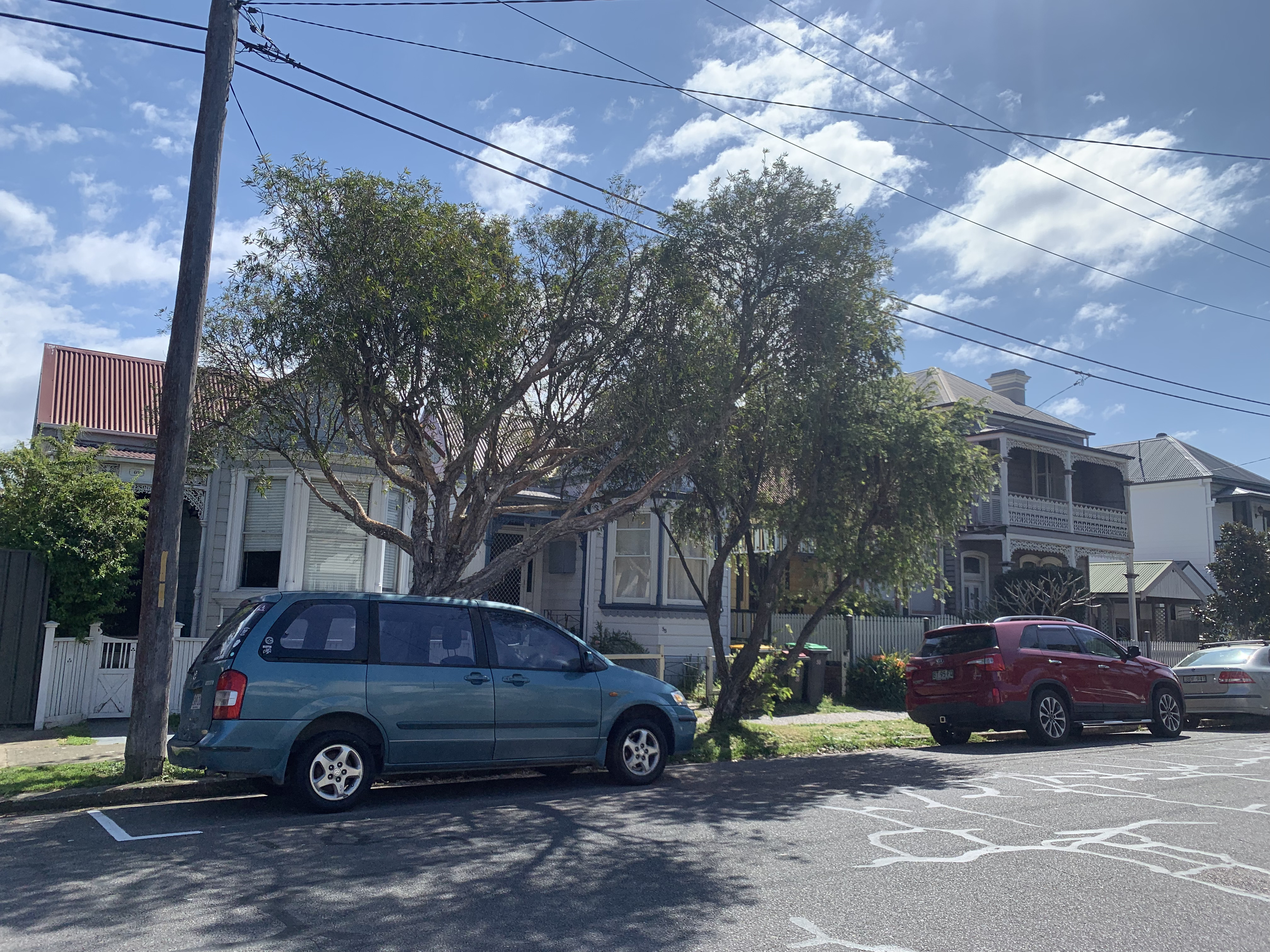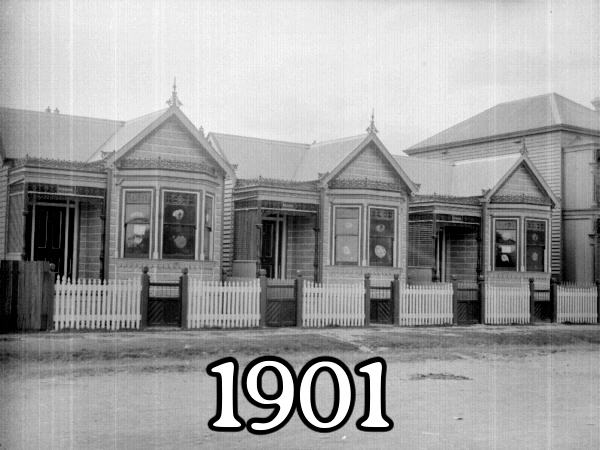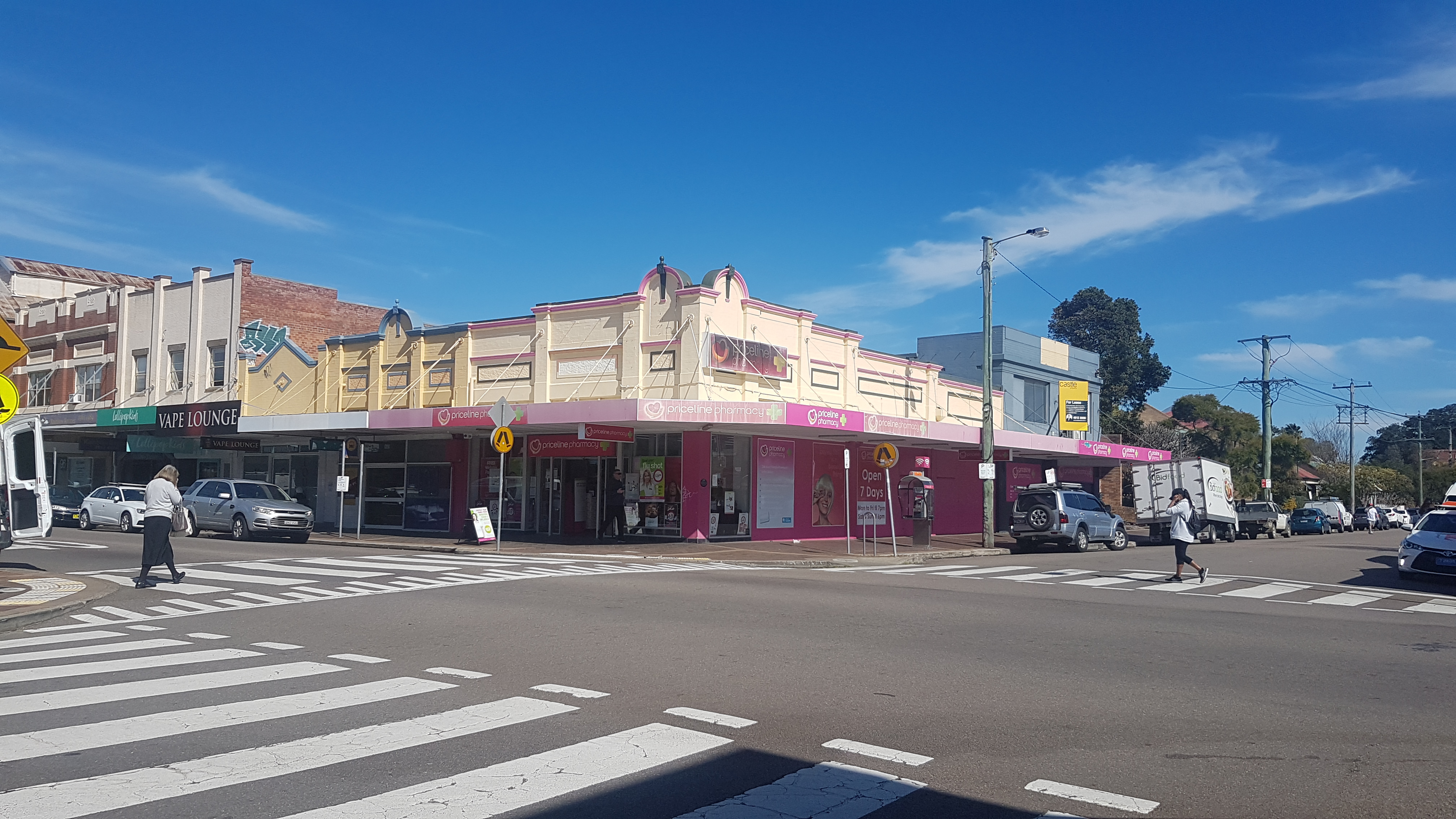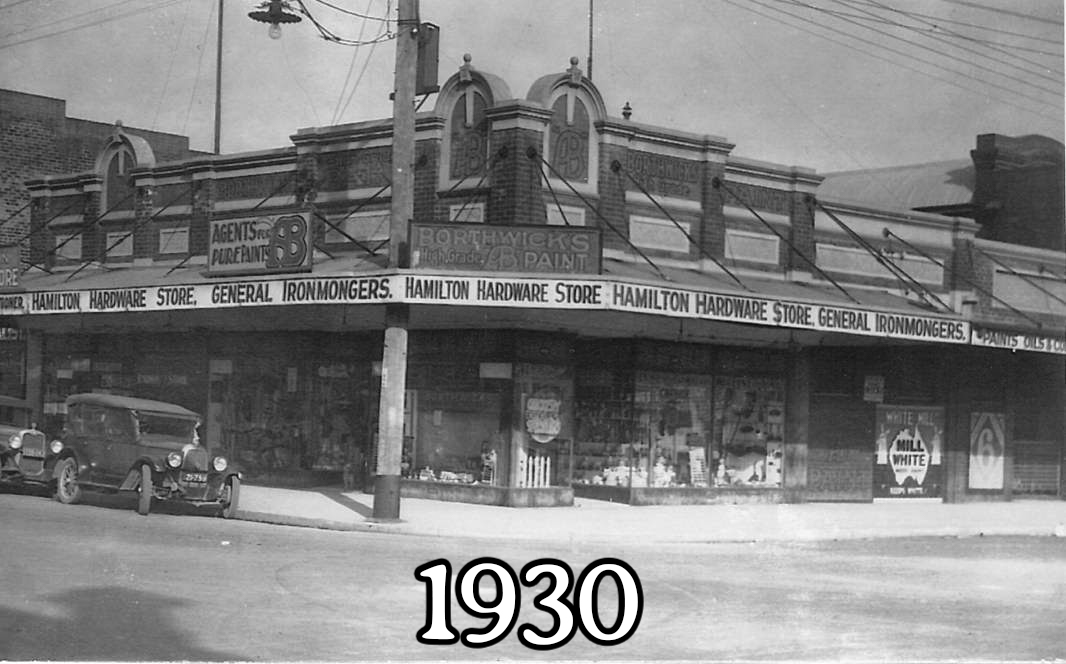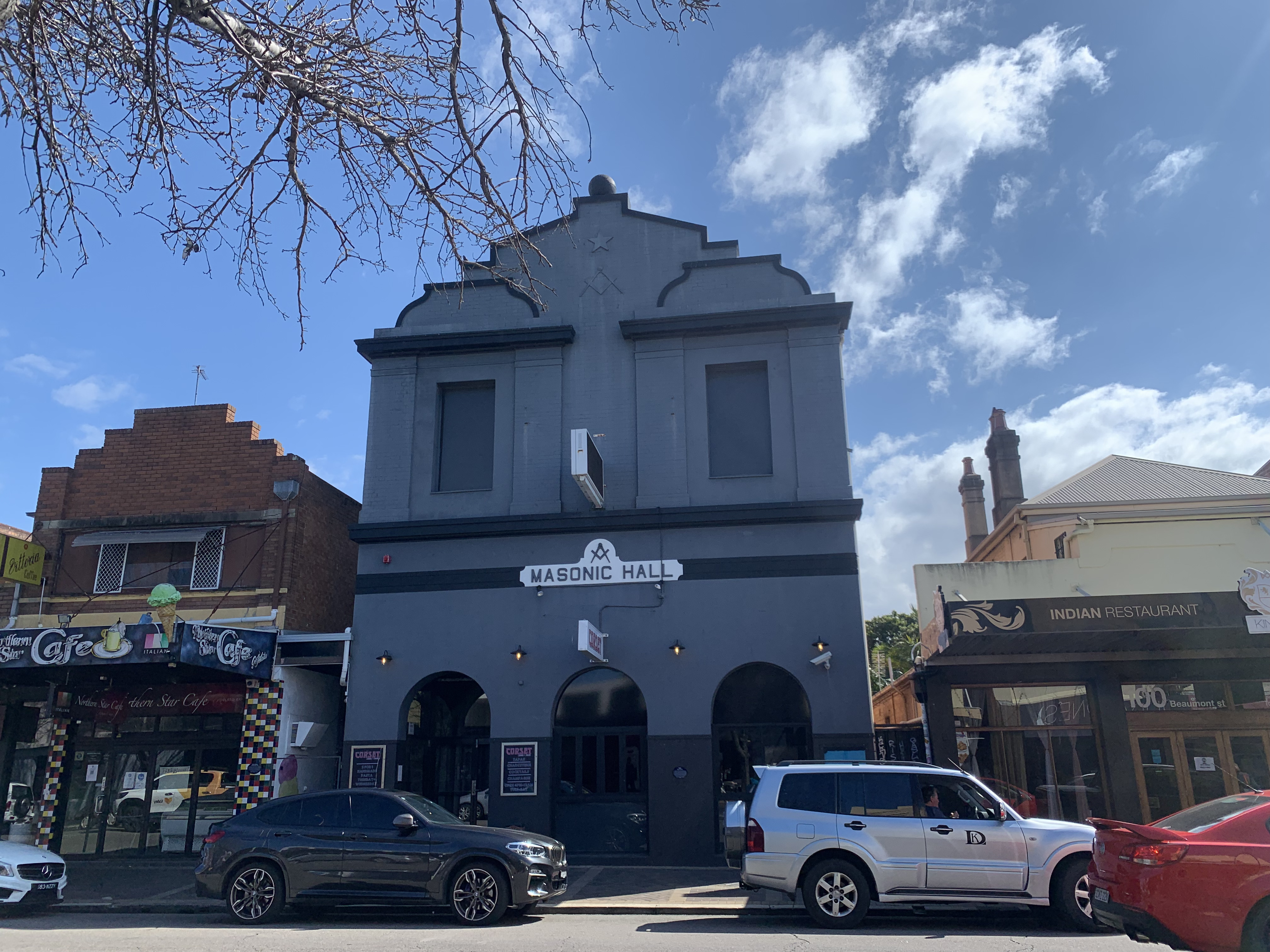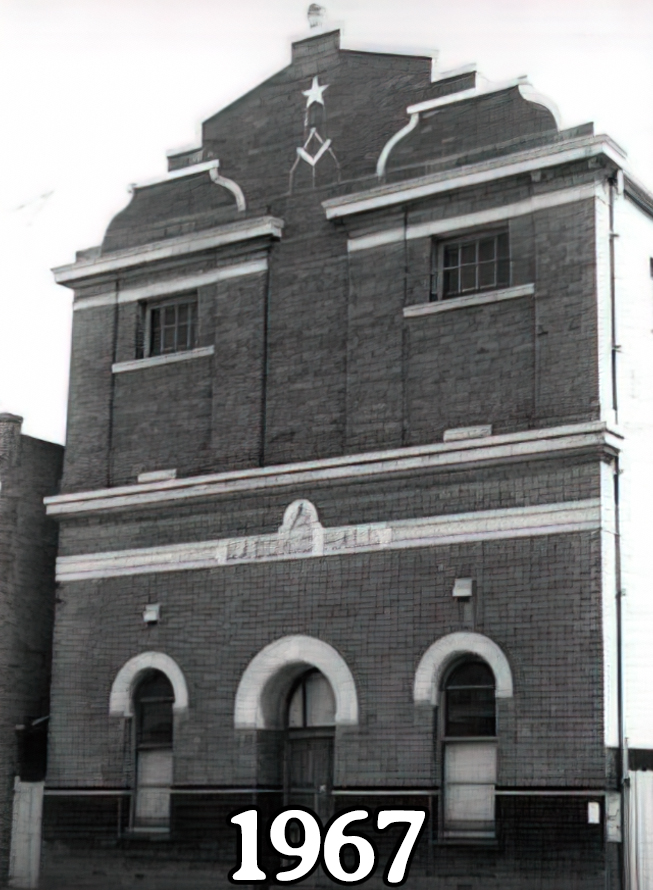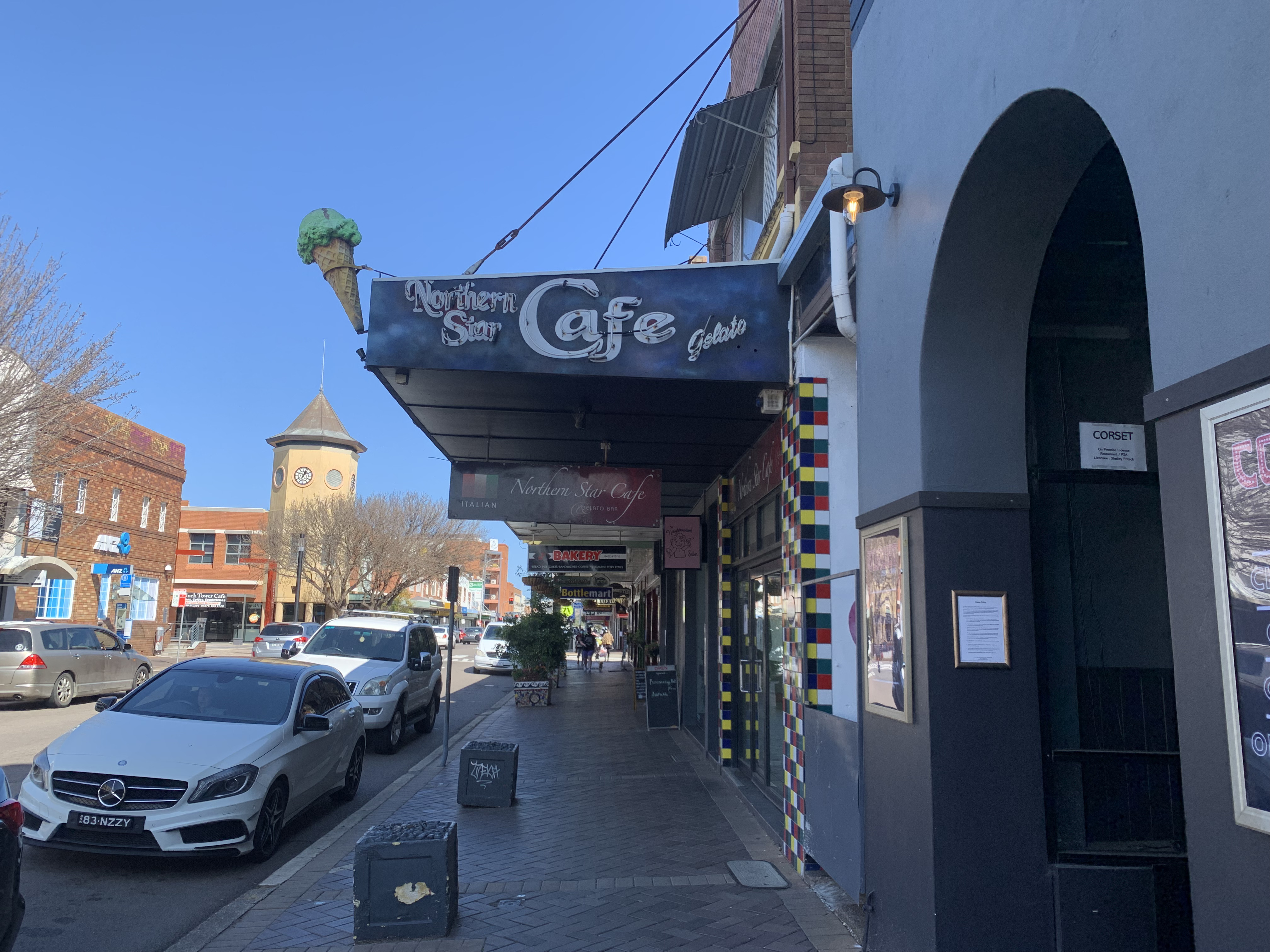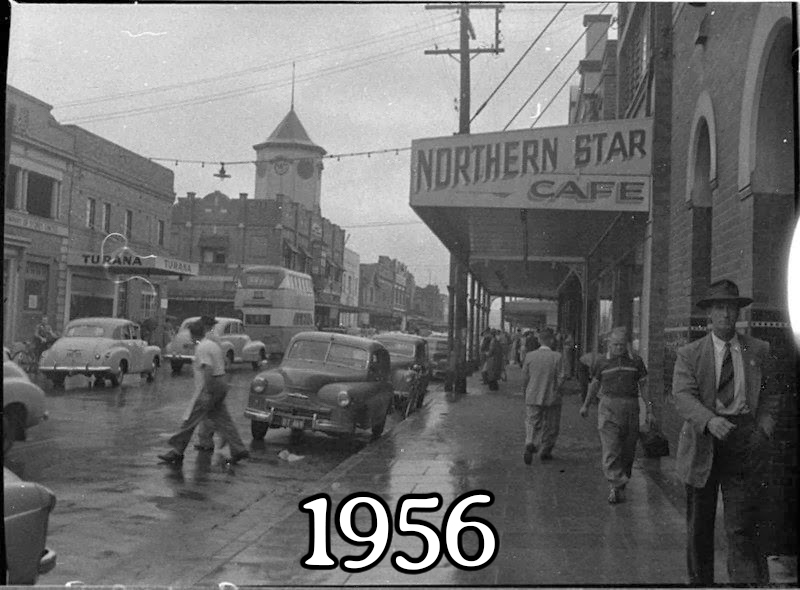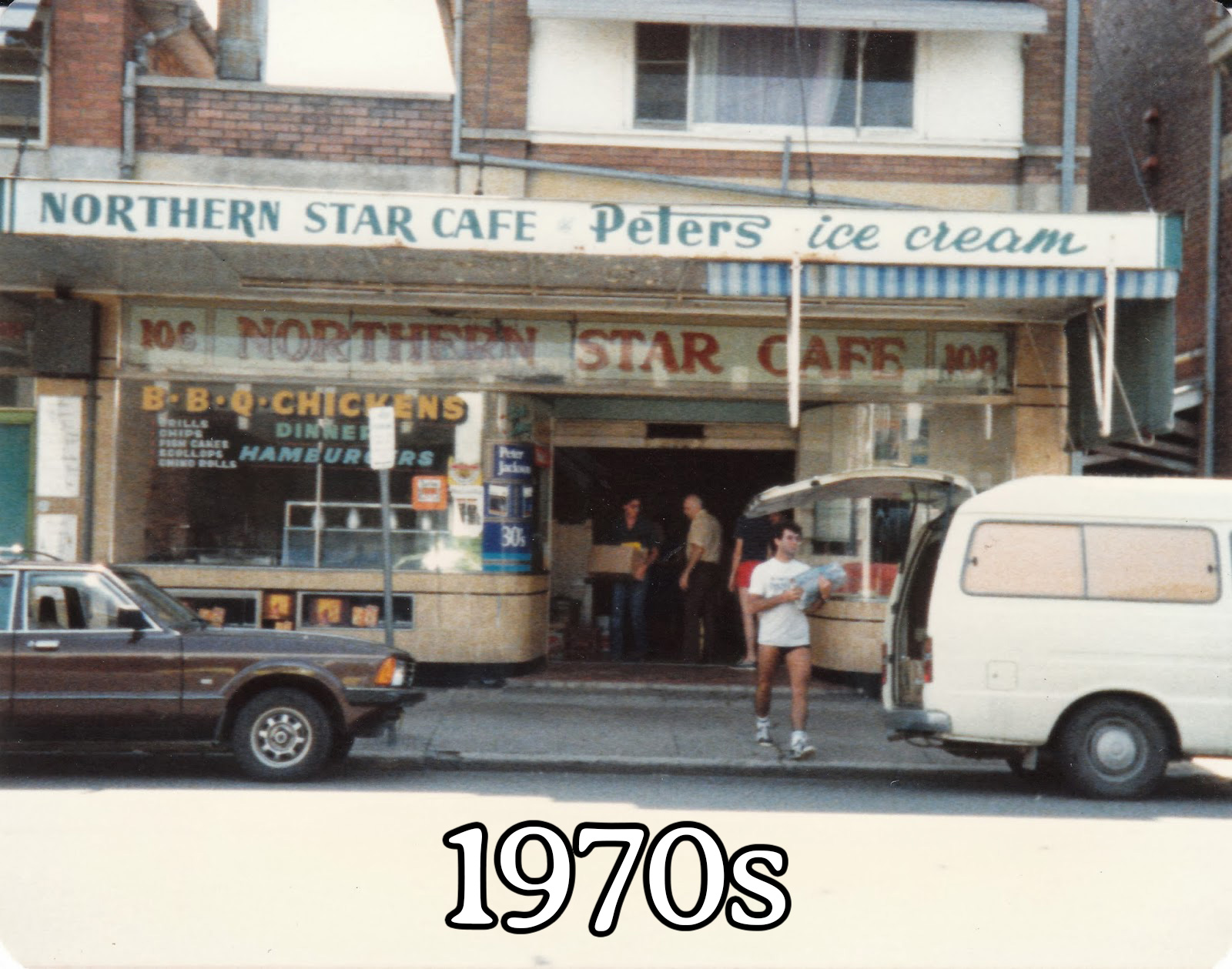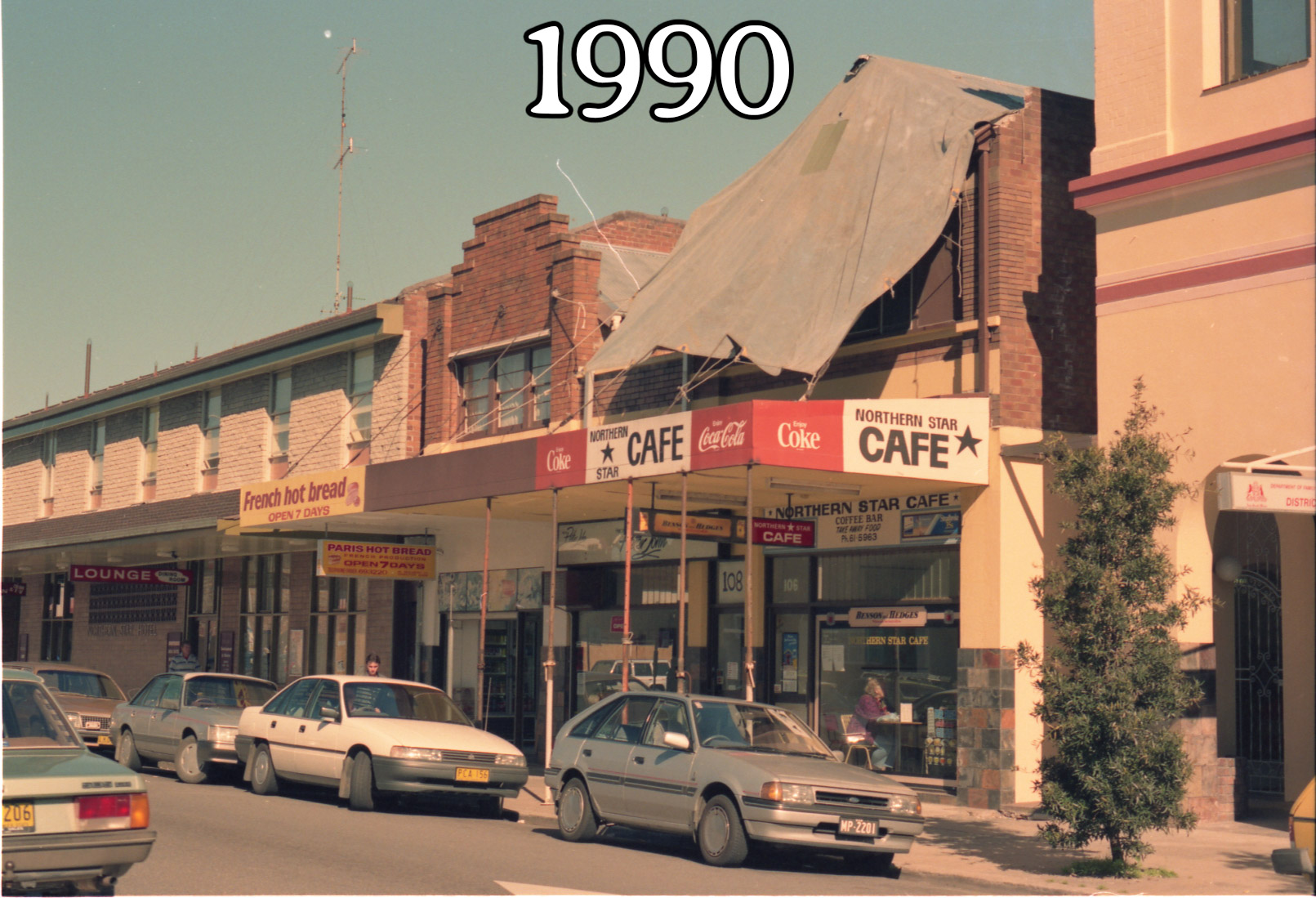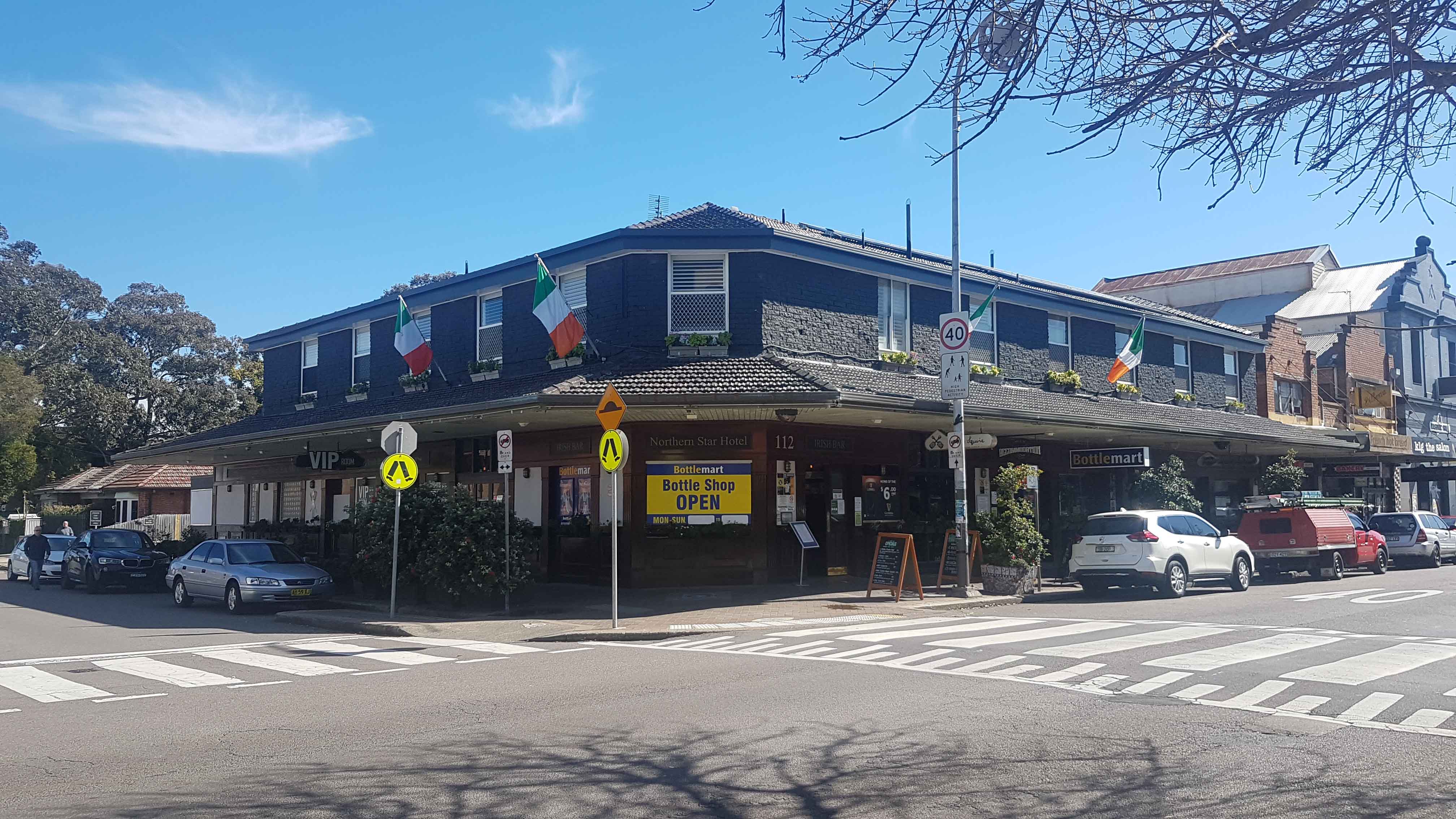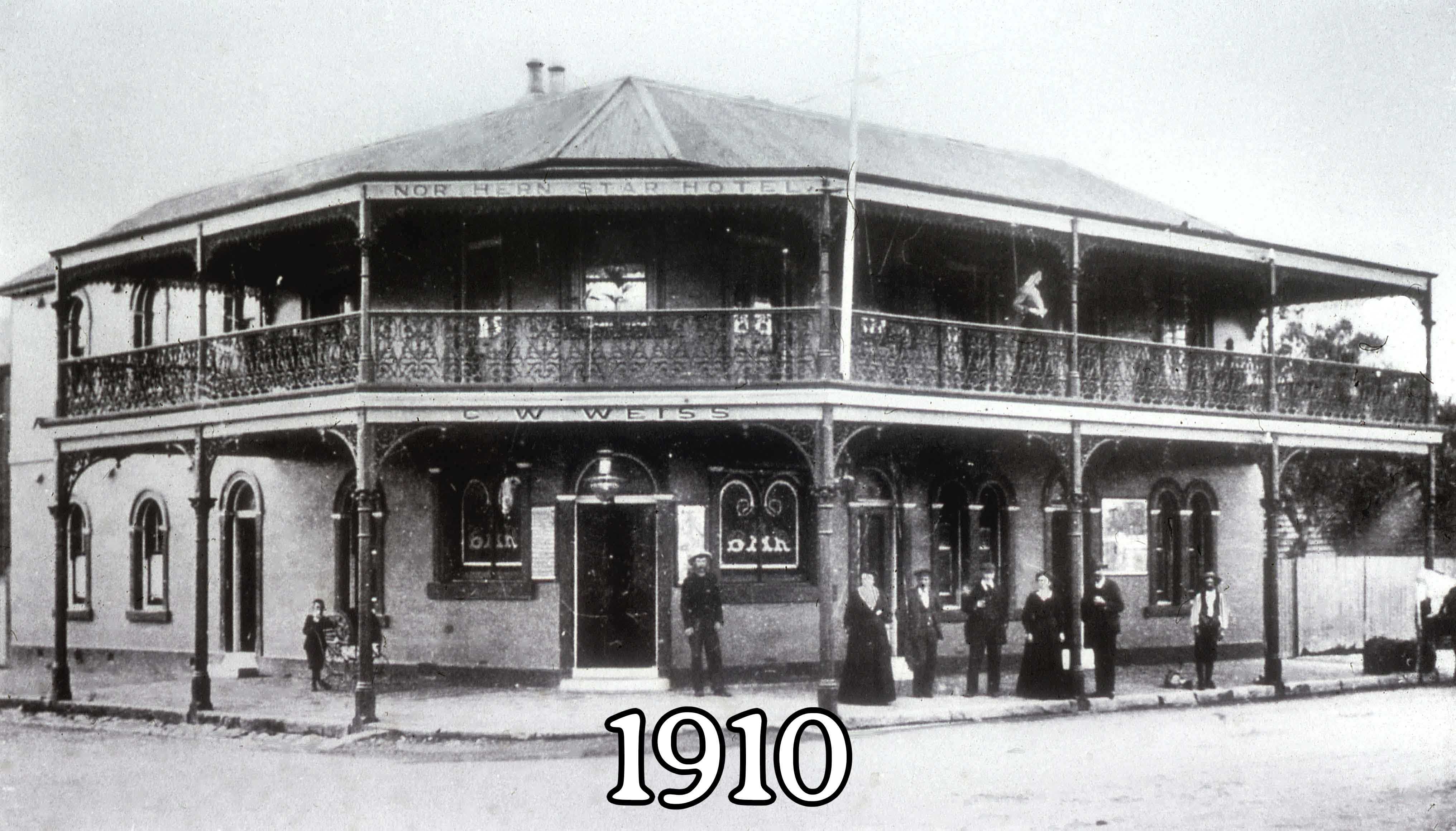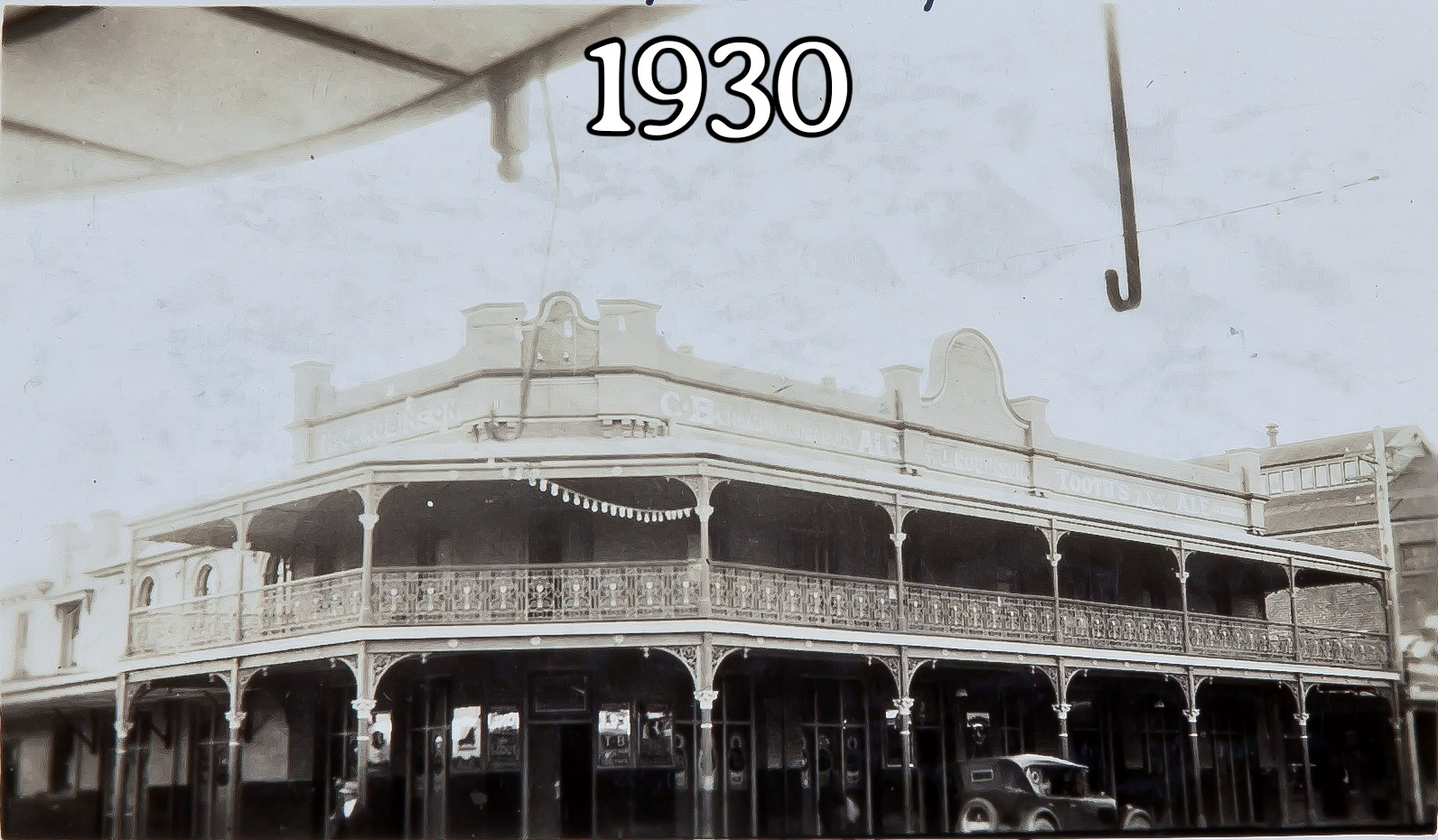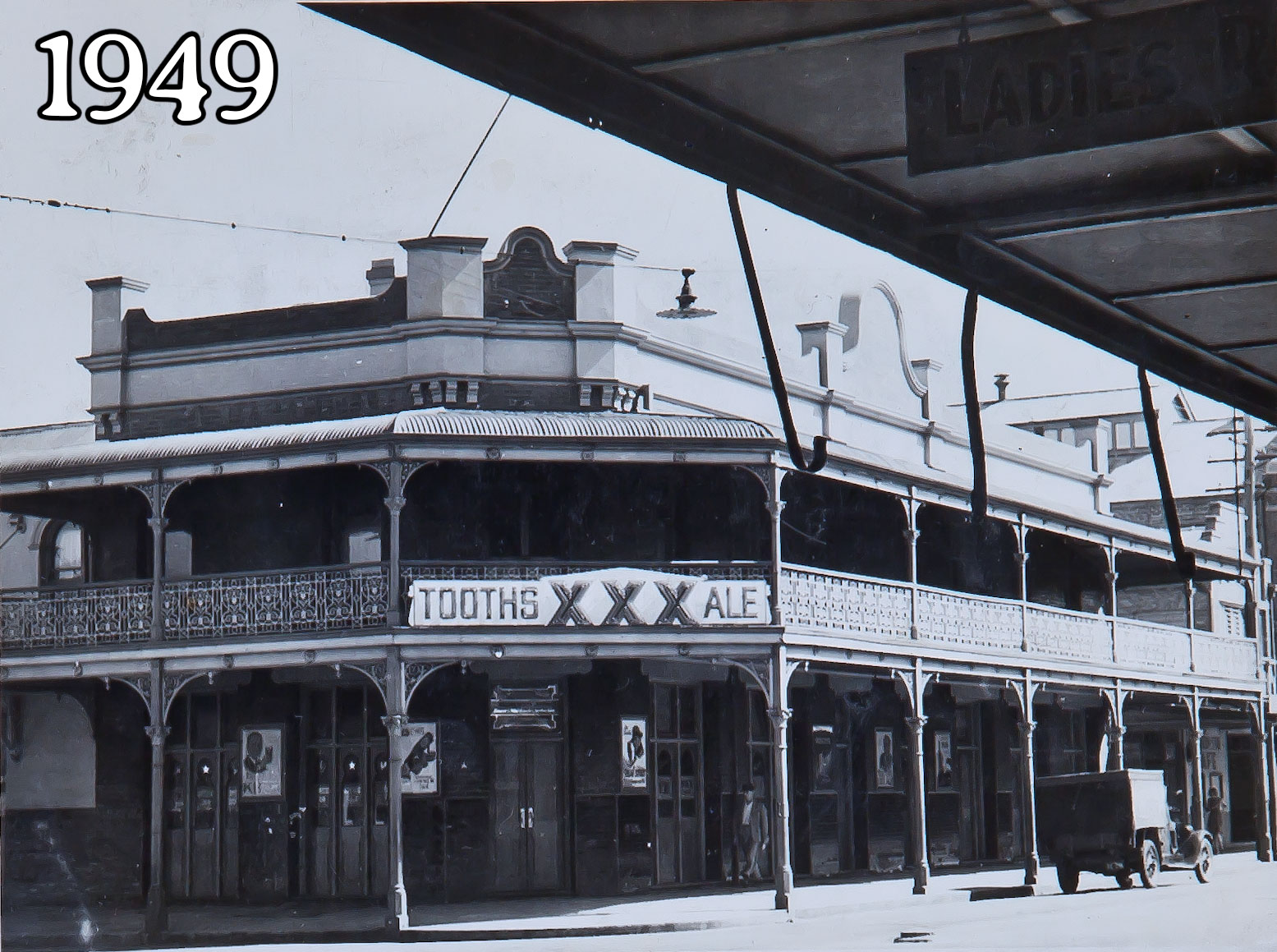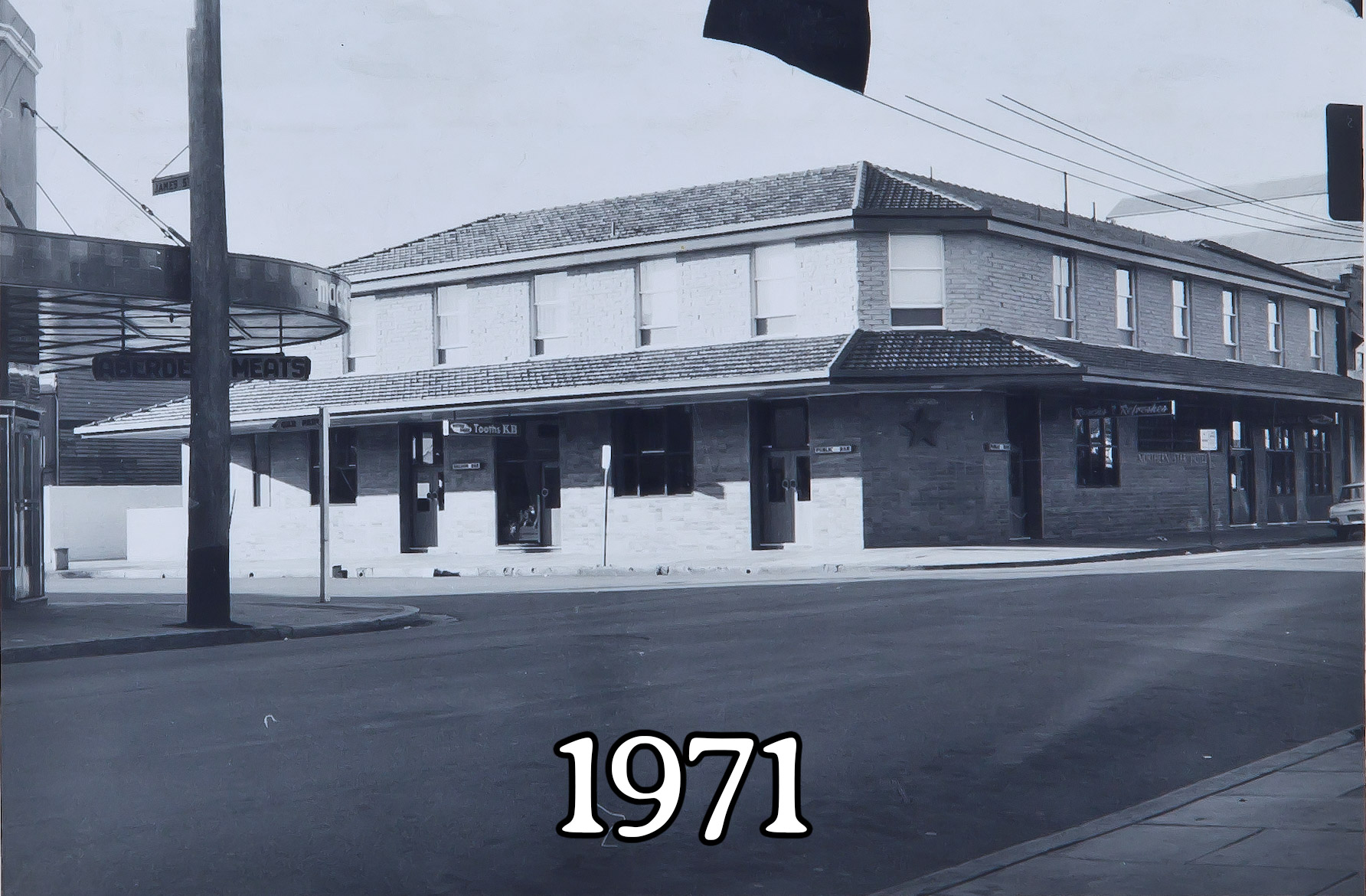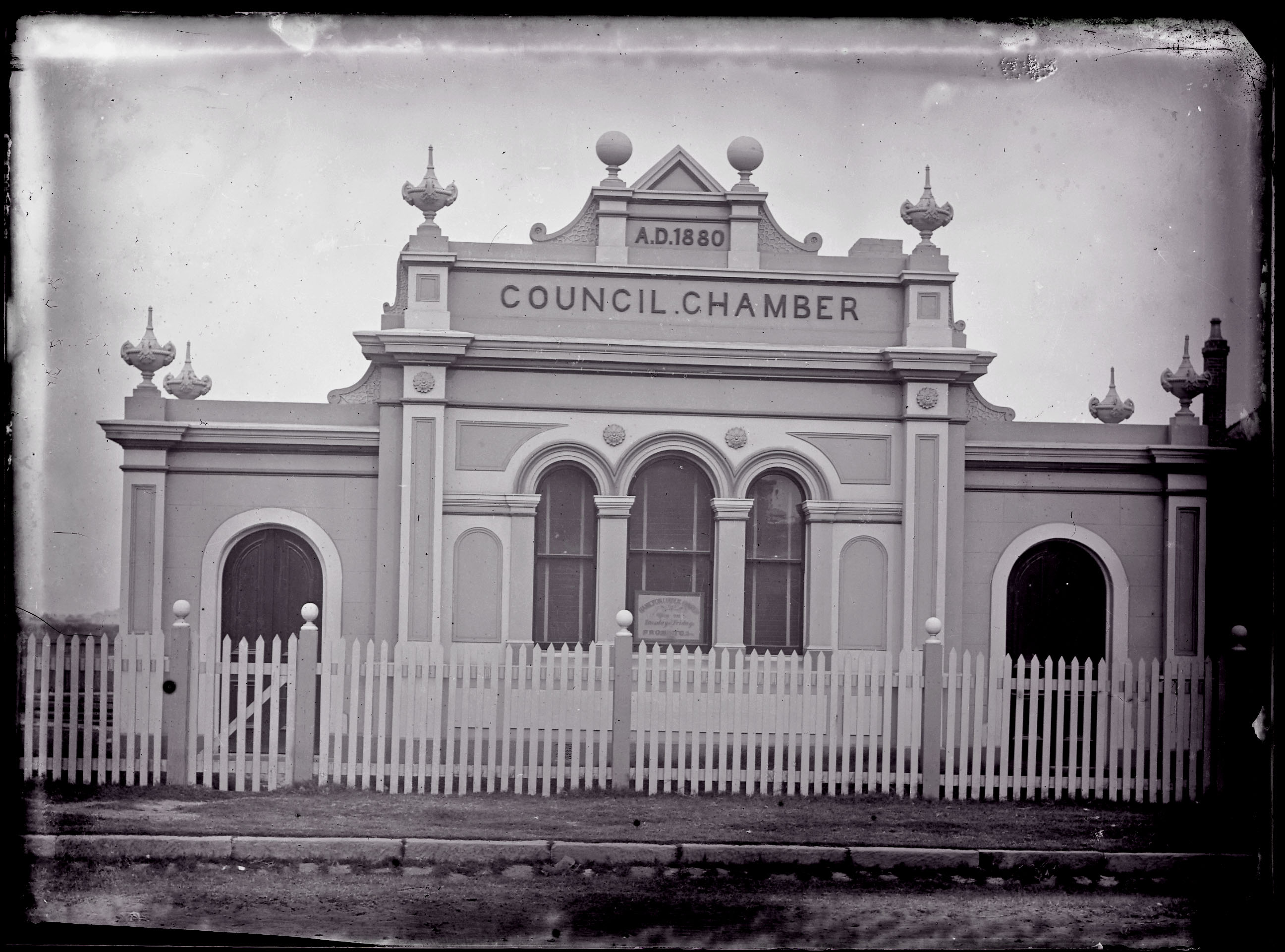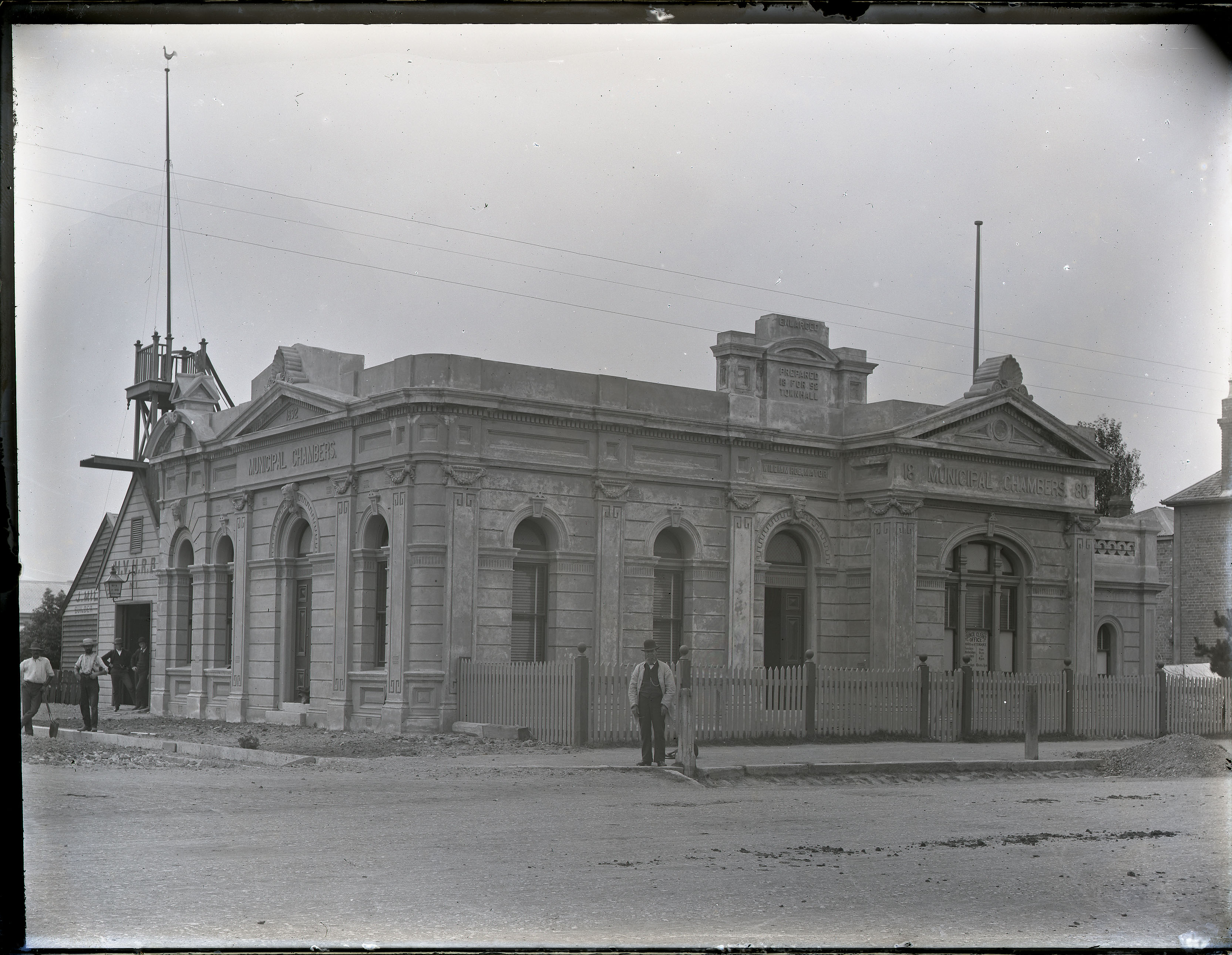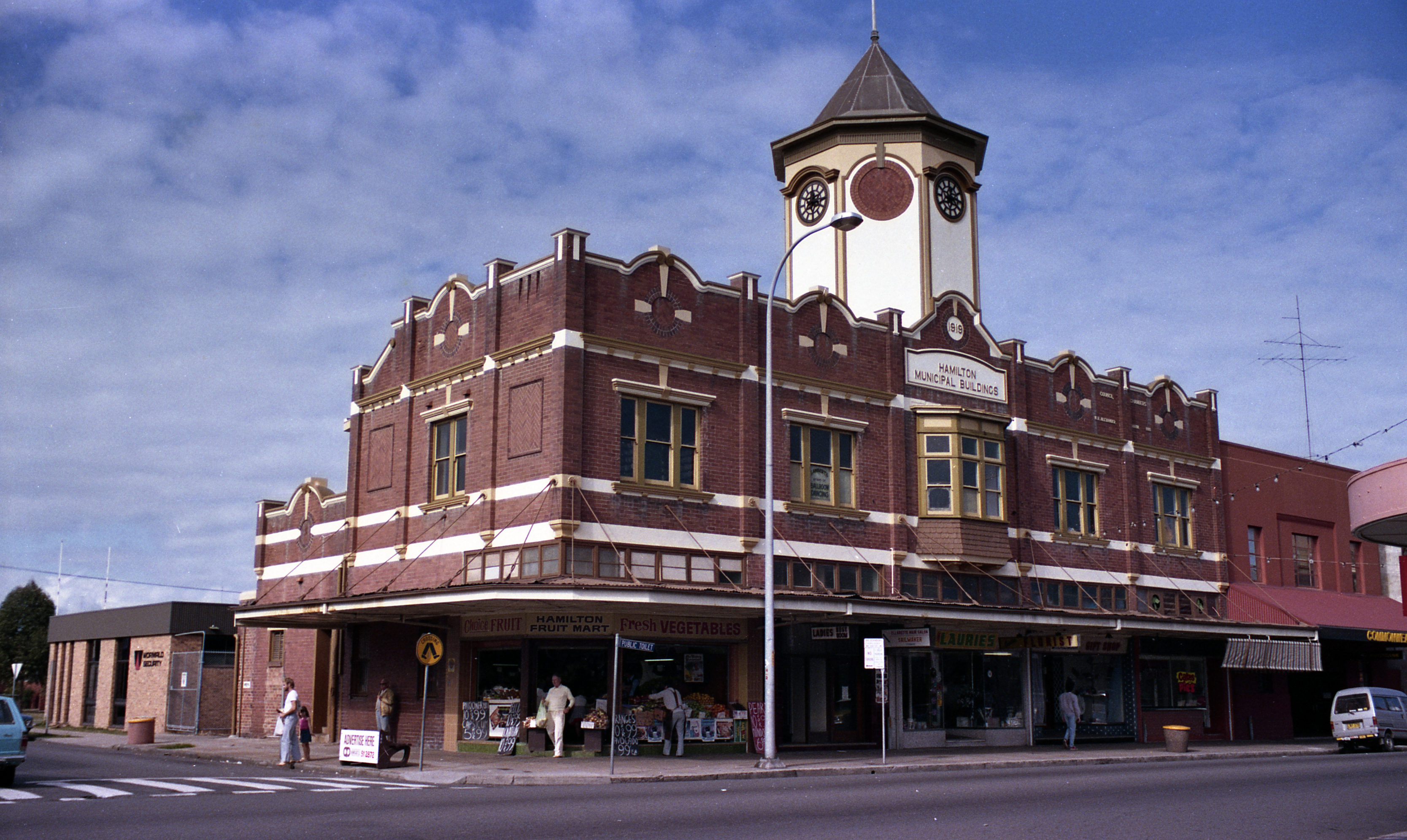Hamilton Heritage Walk
This page contains the fully referenced contents to the Hamilton Heritage Walk on the City of Newcastle App. If you would like to do the walk please the app to your phone via your android play or apple store. Click on Menu, then scroll down to walking trails and swipe across to the Hamilton Heritage Walk.
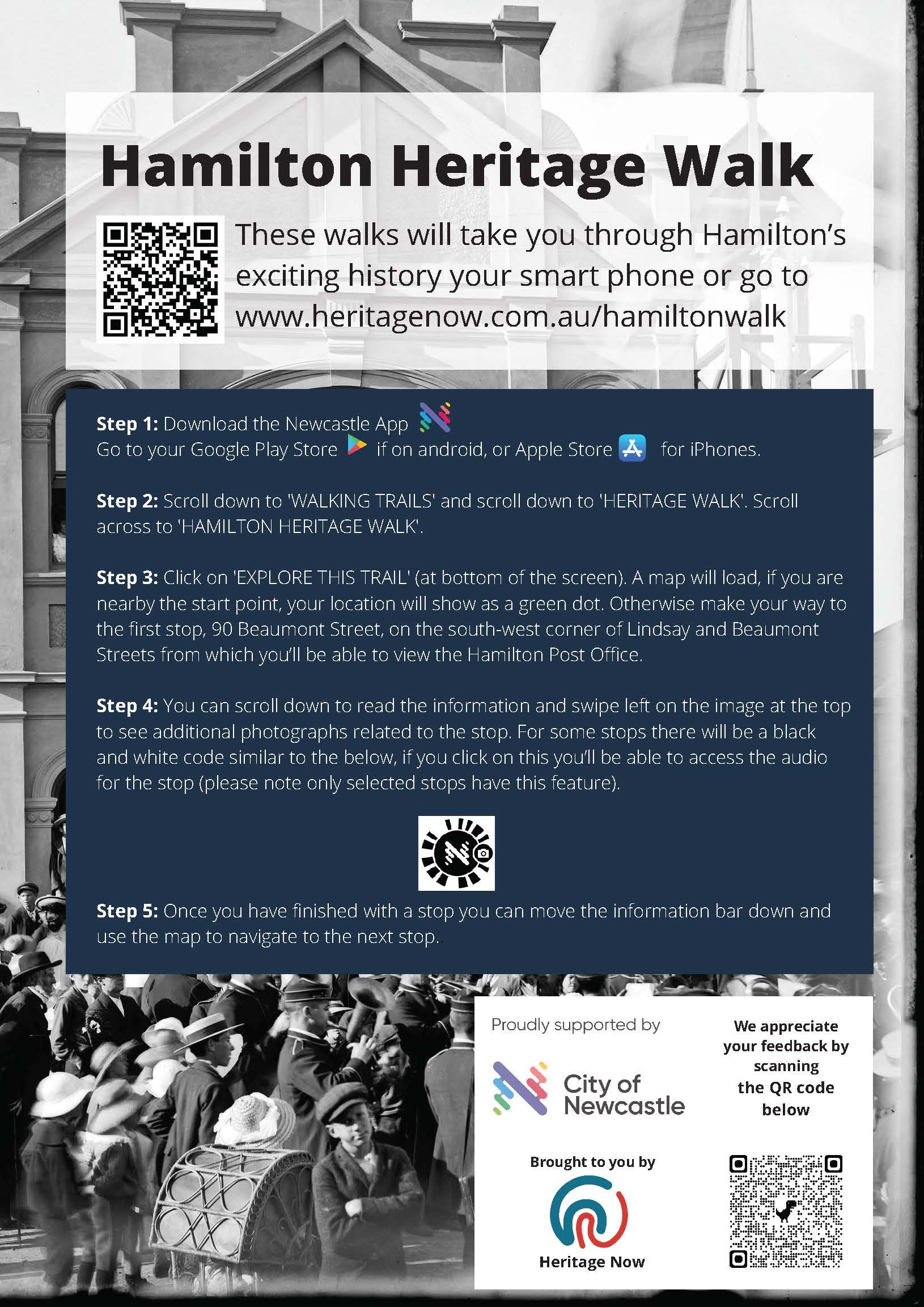
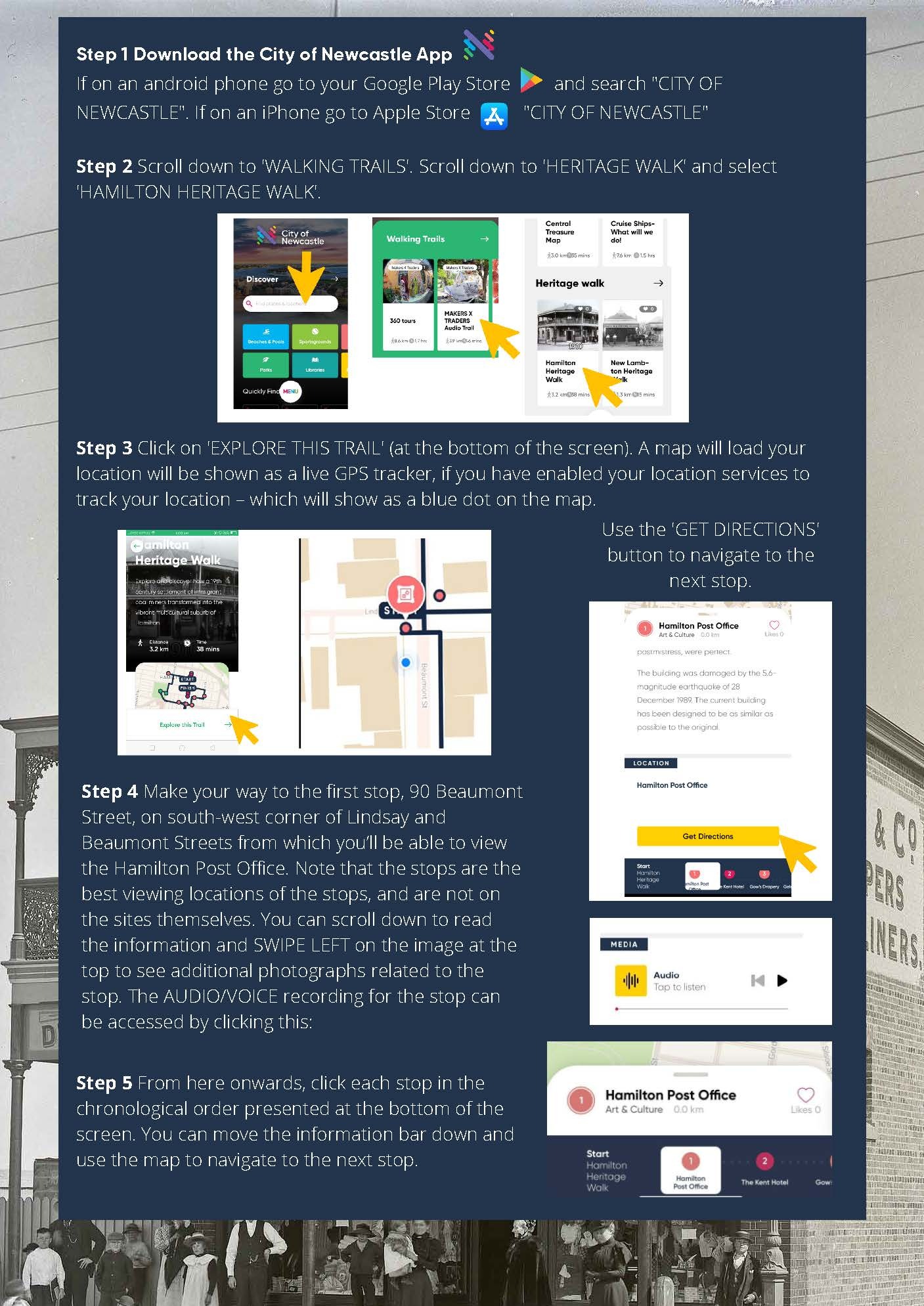
Post Office
Hamilton was previously known by the somewhat unflattering name of ‘Borehole’. It was also known as ‘Pit Town’. Both names refer to the local coal mine. Petitions for a post office in Borehole began in 1860.1 The first office opened on Milton Street in 1861. A new post and telegraph office opened in 1889 on the corner of Beaumont and Lindsay Streets. According to local newspapers, the low verandah and bare brick walls weren’t so easy on the eyes! But the interior, including the upstairs living quarters for the postmistress, were perfect. 2
The building was damaged by the 5.6 magnitude earthquake of 28 December 1989. The current building has been designed to be as similar as possible to the original.
Kent Hotel
The Kent Hotel first opened its doors to patrons in 1924. According to an article in The Newcastle Sun, the new hotel offered the best accommodation for guests, and public and saloon bars equal to those in the city.5 As early as the 1920s and 1930s, the Kent was a popular location for a pub feed as well as night-time antics.6
The Kent was and continues to be an important part of the Hamilton community. In 1941 the hotel had a Send-off and Welcome Home Committee for those who fought in Word War II, holding a fundraising dance event attended by over 500 people.7 Following the war, a number of Italian immigrants made Hamilton their home, and the Kent became a popular destination for these new members of the community. Many patrons worked at the nearby Islington steelworks, so the Kent was the perfect spot for after-work drinks and a game of cards.
The original front of the hotel crumbled away following the 1989 earthquake. There was pressure to demolish the building, but the owners at the time endeavoured to repair it. It was during this time that the Kent acquired a balcony, which to this day provides views over the whole of Beaumont Street Why not stop for a drink yourself and take in the sights?
Gow's Drapery
Gow & Co. was a department store established by Ramsay and Frances Gow in 1898.12 The store offered a variety of men’s and women’s clothing as well as toys for children.13 By the 1910s, Gow & Co. was a household name in the Newcastle area, and a particular favourite spot for Christmas shopping.14 The shop was remodelled and expanded in the 1920s, allowing it to rival stores in the city.15
As retail markets changed, the store closed in the 1960s and was eventually demolished and replaced.
Gelateria Arena
The tiny café Gelateria Arena was purchased in 1970 by the Saccaros, an Italian immigrant family. For 20 years Silvia Saccaro cooked up to 60 meals a night. Her customers were a mix of migrant workers who loved food that reminded them of home and Australian businesspeople who had fallen in love with Italian cuisine. Silvia and her husband Rigo transformed a typical Australian café to a haven for home-cooked Italian meals – and of course, gelato.
A café, Coal Espresso, is still at the site today –meaning coffee has been served continuously here for over 40 years!
Italian Centre
The Italian Centre was established by the Scalabrini Fathers in 1966. Built through fundraising from the local Italian community, the centre became a social and spiritual hub for Italian-Australians in Hamilton and nearby. It held mass, hosted dances and other functions, and later included a restaurant. From the 1980s the centre focused on services for the ageing Italian-Australian population.
In 2002, the community was devastated when the Scalabrini Fathers announced that the Italian Centre would be closing. Efforts to save the centre failed, but essential aged care services were relocated to Broadmeadow.
Eddy street Residence
The single-storey late Victorian residences on this short street are heritage items. Originally built around 1890, each residence has the same design, with an Italianate façade and an unusual Dutch gable at the front. Despite changes to some of the houses, most of the design features have been preserved.
Gregson Park - Cannon
In 1905, two 1840s Walker cannons were shipped to Newcastle from Victoria Barracks in Sydney. They were first placed near the centre of the park but were later moved for the installation of a War Memorial, and now welcome visitors at the park’s entrance.
Gregson Park - Donald Fountain
In 1889, the land now known as Gregson Park was donated to the Hamilton Council by Mr Jesse Gregson, Superintendent of the AA Company, to be used for recreation by local workers and their families. The Styx Creek once flowed through the park but was filled in due to frequent flooding.
The Donald Fountain, pictured here, was gifted in 1908 by the family of George Donald, the first mayor of Hamilton. The memorial fountain recognises the contributions of George Donald to the social and political life of the community.
On the same day in 1908, the memorial gates were opened on James Street, commemorating Ramsay Gow, a prominent local businessman whose private dwelling, Fettercairn, still stands. According to The Newcastle Morning Herald’s report on the event, “Never before has such a large and enthusiastic gathering of visitors been seen in Gregson Park”.
The Tudor Street gates were also opened with fanfare four years later in 1912. These gates celebrated the first alderman of Hamilton Council before a crowd of 3,600 people.
Mechanics Institute
In 1861, the citizens of Borehole began raising money for a Mechanics Institute to be built.19 Mechanics' Institutes were important centres in early NSW towns that aimed at providing an education to working class people. Designed by prolific Newcastle architect F B Menkens, a new building was constructed in 1888 next to the original timber institute. The opening was a grand occasion, with the Premier of NSW, Sir Henry Parkes, delivering the opening address.20
In 1891, the original timber institute was demolished to extend the new hall into an even more grand-looking structure. The Newcastle Morning Herald called it “the finest structure of the kind in the colony”.21 The building’s verandahs were later closed in, but have in part been restored.
For many years the institute was an important meeting space, as well as a place of learning due to its library. It was also an entertainment venue, hosting concerts to raise money. The building is now an apartment complex.
First Wesleyan Church now Bank
Around 400 people were said to attend the laying of the foundation stone for a Wesleyan Methodist Church in 1861.24 The town’s population was only recorded as 857 at this time, suggesting that many of the founders of Hamilton were Wesleyan Methodists.25
The Wesleyans valued education. The first picture shows many people attending the laying of the foundations for a new Sunday School hall in 1901. By 1909 over 400 students were enrolled with the church.26
As the congregation grew, a bigger and better church was needed. The site of the first Wesleyan Methodist Church was sold to the Bank of NSW and the funds were used to build a larger church on the corner of Denison and Beaumont Streets in 1928. The bank building that now stands on the site opened its doors in 1929.27 Some 90 years on, it is still home to a bank (now the Greater Bank).
The building suffered substantial damage in the 1989 earthquake and has undergone restorations. Redevelopments of the site in 2001 unveiled the foundations of the Wesleyan Church preserved inside. Enter the building to take a closer look at this amazing archaeological find!
Uniting Church
The present Uniting Church building first opened in 1928 to accommodate a growing Wesleyan congregation. The new church, which could seat 650 people, was described as “the finest piece of architecture in Hamilton”.33
In 1977 the church was one of many Methodist Congregational and Presbyterian churches that came together under the Basis of Union to form the Uniting Church of Australia.
The church suffered damage during the 1989 earthquake and was almost demolished – but Reverend John Mason, who was minister at the time, intervened – declaring that they would destroy it “over my dead body!” You can read more about Reverend Mason’s story here: http://hiddenhamilton.blogspot.com/2013/06/blow-it-up-over-my-dead-body.html
Exchange Hotel
The Miners Exchange was built by ex-miner John Williams in 1880.34 The hotel was a popular spot for miners, being only a short distance from the mines. It also attracted sportsmen; Williams himself was president of the local football and cricket clubs.35 Handball competitions became a popular spectacle here, as Williams had equipped the hotel with a court.36 The venue also contained a band room, and the tradition of live music at The Exchange continues to this day
In 1919, owner Frank Dexter painted over the word “Miners” on the hotel signboard, dubbing it simply “The Exchange Hotel” as it is known today.
Donald's Corner
This corner was once the site of an independent grocery store opened by George Donald, the man who would go on to be first mayor of Hamilton. The site became known as Donald’s Corner and over the years grew to include a hardware store and chemist. After Donald’s death, the business was continued by his descendants. Unfortunately, the building was severely damaged by the 1989 earthquake and has since been demolished.
Scots Kirk
In 1882, a committee was formed by the Presbyterians of Hamilton to establish their own church building.43 The funds were raised in a number of ways, including bazaars, where people donated interesting items to be sold or raffled.44
The foundation stone was laid in January of 1887 and the church, known as Scots Kirk, was opened in December that same year.45 The building is modelled after Dunfermline Abbey in Scotland, the town where Hamilton’s first mayor George Donald was born. Donald had been an instrumental figure in establishing the church in Hamilton.46
Scots Kirk is an important Hamilton building with magnificent stained-glass windows, designed by Polish born Sydney designer John Radecki. It was damaged by the 1989 earthquake but has undergone restoration.
Fire Station
This building was Hamilton’s second fire station. It was opened in March 1901 after the first station proved to be inadequate. Pictures from the opening show many people attending the event. The building later underwent renovations, with a second storey added in 1906.
Following damage from the 1989 earthquake, the station was bought by the Lindsay family, who played an integral role in restoring the building and ensuring its survival.
If you look closely at the building today you may spot a small statue of a man’s head sitting above the entrance. Victor Lindsay spent many months restoring this sculpture and trying to determine the subject’s identity. With the help of local woman Jean Mears, it was later revealed that the statue depicts Mears’ grandfather, Sam Donn, who was mayor of Hamilton in 1901 when the station opened. Donn can be seen under the statue in pictures from the station’s opening.
Lawson Street Hamilton
Lying within the Hamilton Residential Precinct Heritage Conservation Area, Lawson Street contains examples of late Victorian terraces and cottages as well as Federation cottages and bungalows.
From the 1880s onwards, as mining moved to the Hunter Valley, the Newcastle coal field began to be repurposed for urban/residential development. The Lawson Street precinct is a prime example of this increasing urban settlement.
The houses pictured belonged to a Mrs Kane and were built in 1900.52
Deitz Hardware
Now home to a brightly painted pharmacy, the corner of Beaumont and Lindsay Streets once housed Hamilton’s first hardware store. Hamilton Hardware opened for business in 1930. Bought by Reilly Deitz in 1932, it was run by Deitz and his son Doug for over 40 years.
Doug Deitz was an important member of the Hamilton community. In addition to the services provided by his business, he was a member of the local Rotary Club for many years and became president of the club in 1957. According to his daughter Sandra, he was a man who was always willing to help people.
The business was eventually purchased by long-time employee Noel Herbert, who reinstated its original 1930 name, “Hamilton Hardware”. While the hardware store no longer exists, the building and its history live on.53
Masonic Hall
The first freemasons in Hamilton established the Star of the East Lodge in 1886. Initially, meetings were held at the Northern Star Hotel, but later were held in the Mechanics’ Institute. This was until this Masonic Hall was built in 1907 by members of the Star of the East Lodge. Designed by F B Menkens, the new hall was said to be an imposing structure capable of seating 500 people.55 A second storey was added in 1918.
As membership decreased, the building was sold in 1981 and has since been used for commercial purposes.
The hall was another building gravely impacted by the 1989 earthquake but has since been restored.
Northern Star Cafe
The Northern Star Café has operated since the 1940s. This photo from 1956 shows the owner, Con Rolfe, crossing the road in the apron he always wore.
Offering a typical menu for Australian cafés at the time, the Northern Star was popular amongst those working at industrial sites in Newcastle, and later with students. When Lorenzo and Ada Bizzarri purchased the business in 1974, interest in their homestyle Italian meals grew. Italian food continues to be the signature of this Hamilton café.
The Northern Star Hotel
The Northern Star Hotel is the oldest hotel in Hamilton that retains its original name and location. First opened by Richard Nickolls in 1877,60 the hotel was a brick two-storey with eight bedrooms, a large balcony, a bar, a cellar and a detached brick kitchen. It also included three horse stables and a four-room weatherboard cottage.
The Northern Star was an important venue, hosting meetings and events for all kinds of sporting clubs and unions. It was also renowned for its food and accommodation. As a review in The Catholic Press from 1919 states: “Everyone in and out of Hamilton knows this hotel, for it has acquired fame, being so well kept.”61
Outside the hotel, on the wall facing James Street, you will find a memorial plaque in honour of Tom Maguire. Maguire was a leading boxing trainer and often hosted fights at the Northern Star to entertain patrons. One of Maguire’s most famous trainees was Dave Sands, a Dunghutti man who grew up in Burnt Bridge, Kempsey, and at age 15 came to Newcastle to train with Maguire. Sands quickly earned many victories and was named Australian middleweight and light heavyweight champion in 1946.62 Tragically, Sands died in a truck accident in 1952. He has been described as one of the greatest boxers never to have won a world title.
The hotel was completely redesigned in 1969 for a more modern look. In 1989 it was purchased by the Ramplin family, who still own and run it today. The Northern Star became well known in the 1990s as an Irish pub, with many members of the local Irish community enjoying a pint of Guinness there. In 2000, the hotel was used by the Irish Olympic team for meals and soft drinks in their preparation for the Sydney Olympics. If you step inside the pub today, you’ll find their signed team shirts proudly displayed in the restaurant area.63
Hamilton Council Chambers
Hamilton Municipal Council was incorporated in 1871 with the first council meetings held in a cottage on James Street. 67 The first Council Chambers was built in 1880.68 A second building in 1892 was soon replaced by a third in 1919 as Hamilton and the needs of the council grew. The distinctive W R Alexander clock tower was added in 1929.
On 31 March 1938 an independent Hamilton Council met for the last time. Hamilton was one of 11 small local councils that merged to form the City of Newcastle in Council in 1938.69 On 31 March 1938 an independent Hamilton Council met for the last time. Hamilton was one of 11 small local councils that merged to form the City of Newcastle in Council in 1938.69
Damaged in the 1989 earthquake, the clock tower was reinstated usin g clock faces and mechanisms from the original structure. The building was substantially rebuilt, and the James Street plaza created at this time.
On 11 December 2021 the Hamilton Business Improvement Association organised a fun-filled day of activities in Beaumont Street and James Street Plaza to celebrate the 150th anniversary of Hamilton’s incorporation as a municipality.
Acknowledgements
Heritage Now would like to thank Ruth Cotton for sharing her wealth of knowledge about Hamilton and providing advice on creating a heritage walk. You can check out Ruth’s blog here: http://hiddenhamilton.blogspot.com.au/
Special thanks to Kerrie Shaw from Newcastle Library for assisting in research and locating photos, particularly of the Newcastle earthquake. Also, to Hunter Living Histories Group for their ongoing support and permissions to use images from the Living Histories archive.
Feedback
We value your feedback. Your feedback will help provide more opportunities for the celebration of heritage in the community. Please take our 30 second survey on the walk. https://forms.gle/RXLJ4R1v6bL7i6Pr5
References
- NEWCASTLE. Sydney Morning Herald. http://nla.gov.au/nla.news-article13045779 . Published September 13, 1860. Accessed September 18, 2020.
- Hamilton. Newcastle Morning Herald and Miners’ Advocate. http://nla.gov.au/nla.news-article138928252 . Published May 6, 1889. Accessed September 18, 2020.
- Snowball R. Hamilton Post and Telegraph Office, Beaumont Street and Lindsay Street, Hamilton, NSW.; 1889. Accessed September 18, 2020. https://livinghistories.newcastle.edu.au/nodes/view/46330
- Newcastle Library. Hamilton Post Office.; 1990.
- New Hamilton Hotel. Newcastle Sun. http://nla.gov.au/nla.news-article163257179 . Published November 7, 1924. Accessed September 18, 2020.
- Indecent Language. Newcastle Sun. http://nla.gov.au/nla.news-article167333041 . Published October 9, 1939. Accessed September 18, 2020.
- Kent Hotel Dance. Newcastle Morning Herald and Miners’ Advocate. http://nla.gov.au/nla.news-article139417161 . Published August 6, 1941. Accessed September 18, 2020.
- Kent Hotel Hamilton card 2 side 2. Tooth & Company Limited yellow cards. Published online 1930. Accessed September 18, 2020. https://openresearch-repository.anu.edu.au/handle/1885/124823
- Kent Hotel, Hamilton.; 1959. Accessed September 18, 2020. https://newcastle-collections.ncc.nsw.gov.au/library?page=search#view=details&id=d141&terms=%5B%22and%22%2C%5B%5B%22keywords%22%2C%22kent%20hotel%22%5D%2C%5B%22department%22%2C%22Library%22%5D%2C%5B%22type%22%2C%22Story%22%2C%22%3C%3E%22%5D%5D%5D&offset=1
- Sternbeck P. Hotel Kent (1924), Hamilton, NSW.; 1986. Accessed October 21, 2020. https://livinghistories.newcastle.edu.au/nodes/view/86438
- Medical Communication Unit, University of Newcastle, Australia. Earthquake - Kent Hotel - Hamilton, Newcastle, NSW.; 1989. Accessed September 18, 2020. https://livinghistories.newcastle.edu.au/nodes/view/6603
- Messrs. Gow and Co., Hamilton. Newcastle Morning Herald and Miners’ Advocate. http://nla.gov.au/nla.news-article141056066. Published December 16, 1898. Accessed September 18, 2020.
- Hamilton: An Imposing Building. Newcastle Morning Herald and Miners’ Advocate. http://nla.gov.au/nla.news-article136500696. Published June 25, 1898. Accessed September 18, 2020.
- “Herald Advertisers” - Our Yearly Review - Gow and Co. Newcastle Morning Herald and Miners’ Advocate (NSW: 1876 - 1954). http://nla.gov.au/nla.news-article133844643. Published December 20, 1916. Accessed September 18, 2020.
- “Herald Advertisers” - Preparing for Christmas - Gow and Co. Newcastle Morning Herald and Miners’ Advocate. http://nla.gov.au/nla.news-article137771003 Published December 23, 1924. Accessed September 18, 2020.
- Snowball R. Gow and Co Store, Hamilton, NSW.; 1898. Accessed September 18, 2020. https://livinghistories.newcastle.edu.au/nodes/view/45814
- Gregson Park, Hamilton. Published March 9, 1956. Accessed September 18, 2020. http://digital.sl.nsw.gov.au/delivery/DeliveryManagerServlet?embedded=true&toolbar=false&dps_pid=IE1275720&_ga=2.246838273.421433737.1600050964-519654538.1576799854
- Opening the Donald Memorial Fountain in Gregson Park, Hamilton 1908. Newcastle Library. Accessed September 22, 2020. https://newcastle-collections.ncc.nsw.gov.au/library?page=search#view=details&id=8653&terms=%5B%22and%22%2C%5B%5B%22keywords%22%2C%22gregson%20park%22%5D%2C%5B%22department%22%2C%22Library%22%5D%2C%5B%22type%22%2C%22Story%22%2C%22%3C%3E%22%5D%5D%5D&offset=26
- Temperance Soiree at the Borehole. Newcastle Chronicle and Hunter River District News. http://nla.gov.au/nla.news-article111164813. Published February 2, 1861. Accessed September 22, 2020.
- Hamilton Mechanic’s Institute. Newcastle Morning Herald and Miners’ Advocate. http://nla.gov.au/nla.news-article135919184. Published August 11, 1888. Accessed September 23, 2020.
- The Hamilton Mechanics’ Institute. Newcastle Morning Herald and Miners’ Advocate (NSW: 1876 - 1954). http://nla.gov.au/nla.news-article135844424. Published October 6, 1891. Accessed September 23, 2020.
- Snowball R. Mechanics Institute, Tudor and Milton Streets, Hamilton, NSW.; 1888. Accessed September 22, 2020. https://livinghistories.newcastle.edu.au/nodes/view/43222
- Snowball R. Hamilton Mechanics Institute, Tudor and Milton Streets, Hamiton, NSW, 8 February 1892.; 1892. Accessed September 22, 2020. https://livinghistories.newcastle.edu.au/nodes/view/46443
- Laying of the Foundation Stone. Newcastle Chronicle. http://nla.gov.au/nla.news-article111156853. Published 24 August1869. Accessed September 23, 2020.
- Newcastle - The Cenus Returns - Population of Newcastle. Maitland Mercury and Hunter River General Advertiser. http://nla.gov.au/nla.news-article18682012. Published May 23, 1861. Accessed September 23, 2020.
- Hamilton: Methodist Sunday School. Newcastle Morning Herald and Miners’ Advocate. http://nla.gov.au/nla.news-article138583540. Published April 20, 1909. Accessed September 23, 2020.
- Bank Opened. Newcastle Sun. http://nla.gov.au/nla.news-article164280159 . Published October 28, 1929. Accessed September 23, 2020.
- Snowball R. Laying Foundation Stone of the Wesleyan Sunday School, Hamilton, NSW.; 1901. Accessed September 23, 2020. https://livinghistories.newcastle.edu.au/nodes/view/44171
- Methodist Church at Hamilton.; 1908. Accessed September 23, 2020. https://newcastle-collections.ncc.nsw.gov.au/library?page=search&record=ecatalogue.33075#id=7e7c
- Edwards KG. Bank of New South Wales, Corner Beaumont and Tudor Streets, Hamilton.; 1972. Accessed September 23, 2020. https://newcastle-collections.ncc.nsw.gov.au/library?page=search#view=details&id=2c7c&terms=%5B%22and%22%2C%5B%5B%22keywords%22%2C%22edwards%20collection%22%5D%2C%5B%22department%22%2C%22Library%22%5D%2C%5B%22type%22%2C%22Story%22%2C%22%3C%3E%22%5D%5D%5D&offset=313
- Newcastle and Hunter District Historical Society. Wesley Methodist Church, Hamilton, NSW Australia [c.1960s].; 1960. Accessed September 24, 2020. https://livinghistories.newcastle.edu.au/nodes/view/18567
- City of Newcastle. Damaged Wesley Church, Hamilton.; 1990. Accessed May 27, 2021. https://newcastle-collections.ncc.nsw.gov.au/library?page=search#view=details&id=e556&terms=%5B%22and%22%2C%5B%5B%22keywords%22%2C%22046%22%5D%2C%5B%22department%22%2C%22Library%22%5D%2C%5B%22type%22%2C%22Story%22%2C%22%3C%3E%22%5D%5D%5D&offset=113
- New Church - Fine Hamilton Building - Opening Tomorrow. Newcastle Sun. http://nla.gov.au/nla.news-article163978227. Published November 23, 1928. Accessed September 23, 2020.
- HAMILTON. Newcastle Morning Herald and Miners’ Advocate. http://nla.gov.au/nla.news-article133856834. Published January 13, 1880. Accessed September 24, 2020.
- Latest District News. Hamilton - Death of Mr John Williams. Newcastle Morning Herald and Miners’ Advocate. http://nla.gov.au/nla.news-article132664054. Published October 25, 1890. Accessed September 24, 2020.
- Hamilton - Handball. Newcastle Morning Herald and Miners’ Advocate. http://nla.gov.au/nla.news-article139264484. Published October 24, 1889. Accessed September 24, 2020.
- Exchange Hotel Hamilton card 1 side 2. Tooth & Company Limited yellow cards. Published online 1926. Accessed September 24, 2020. https://openresearch-repository.anu.edu.au/handle/1885/124798
- Exchange Hotel Hamilton card 4 side 2. Tooth & Company Limited yellow cards. Published online 1949. Accessed September 24, 2020. https://openresearch-repository.anu.edu.au/handle/1885/124792
- Exchange Hotel Hamilton card 5 side 2. Tooth & Company Limited yellow cards. Published online 1969. Accessed September 24, 2020. https://openresearch-repository.anu.edu.au/handle/1885/124790
- MEGA GALLERY: Pictures of our past. Newcastle Herald. Published October 26, 2013. Accessed September 24, 2020. https://www.newcastleherald.com.au/story/1766472/mega-gallery-pictures-of-our-past/interactive/
- Donald Chemist, Hamilton, NSW, June 1986.; 1986. Accessed September 24, 2020. https://livinghistories.newcastle.edu.au/nodes/view/86443
- Newcastle Morning Herald. Hamilton Presbyterian Church.; 1955. Accessed September 24, 2020. http://digital.sl.nsw.gov.au/delivery/DeliveryManagerServlet?embedded=true&toolbar=false&dps_pid=IE1331017&_ga=2.152511353.152613668.1600920071-1866873423.1600219655
- Hamilton - Presbyterian Meeting. Newcastle Morning Herald and Miners’ Advocate. http://nla.gov.au/nla.news-article139479973. Published March 18, 1882. Accessed September 24, 2020.
- Hamilton Presbyterian Church Bazaar. Newcastle Morning Herald and Miners’ Advocate. http://nla.gov.au/nla.news-article139056145. Published October 1, 1885. Accessed September 24, 2020.
- OPENING OF THE HAMILTON PRESBYTERIAN CHURCH. Newcastle Morning Herald and Miners’ Advocate. http://nla.gov.au/nla.news-article135983650. Published December 2, 1887. Accessed September 28, 2020.
- Death of Mr Geo. Donald, J.P. Newcastle Morning Herald and Miners’ Advocate. http://nla.gov.au/nla.news-article138811983. Published February 19, 1887. Accessed September 28, 2020.
- Snowball R. Official Opening of Hamilton Fire Station.; 1901. Accessed October 13, 2020. https://newcastle-collections.ncc.nsw.gov.au/library?page=search#view=details&id=853e&terms=%5B%22and%22%2C%5B%5B%22keywords%22%2C%22fire%20station%22%5D%2C%5B%22department%22%2C%22Library%22%5D%2C%5B%22type%22%2C%22Story%22%2C%22%3C%3E%22%5D%5D%5D&offset=23
- Snowball R. Official Opening of Hamilton Fire Station.; 1901. Accessed October 13, 2020. https://newcastle-collections.ncc.nsw.gov.au/library?page=search#view=details&id=853e&terms=%5B%22and%22%2C%5B%5B%22keywords%22%2C%22fire%20station%22%5D%2C%5B%22department%22%2C%22Library%22%5D%2C%5B%22type%22%2C%22Story%22%2C%22%3C%3E%22%5D%5D%5D&offset=24
- Snowball R. Hamilton Volunteer Fire Station, James Street, Hamilton, NSW, 23 October 1906.; 1906. Accessed October 13, 2020. https://livinghistories.newcastle.edu.au/nodes/view/42001
- Snowball R. Opening of Hamilton Volunteer Fire Station James Street, Hamilton, NSW, 23 October 1906.; 1906. Accessed October 13, 2020. https://livinghistories.newcastle.edu.au/nodes/view/41999
- Snowball R. Mrs Kane’s Houses, Hamilton.; 1901. Accessed October 12, 2020. https://newcastle-collections.ncc.nsw.gov.au/library?page=search#view=details&id=2f2d&terms=%5B%22and%22%2C%5B%5B%22keywords%22%2C%22kane%22%5D%2C%5B%22department%22%2C%22Library%22%5D%2C%5B%22type%22%2C%22Story%22%2C%22%3C%3E%22%5D%5D%5D&offset=4
- Private Buildings Under Construction. Newcastle Morning Herald and Miners’ Advocate. http://nla.gov.au/nla.news-article136477892 . Published July 25, 1900. Accessed October 12, 2020.
- Cotton R. Deitz Hardware - a Hamilton fixture. Hidden Hamilton. Published September 29, 2014. Accessed September 18, 2020. http://hiddenhamilton.blogspot.com/search/label/CR%20Deitz%20and%20Son
- Deitz family. Hamilton Hardware, 88 Beaumont Street.; 1930. http://hiddenhamilton.blogspot.com/search/label/CR%20Deitz%20and%20Son
- District News Hamilton. Newcastle Morning Herald and Miners’ Advocate. http://nla.gov.au/nla.news-article136608796 . Published April 11, 1907. Accessed October 12, 2020.
- Newcastle Morning Herald. Beaumont Street.; 1956. Accessed October 9, 2020. http://digital.sl.nsw.gov.au/delivery/DeliveryManagerServlet?embedded=true&toolbar=false&dps_pid=IE1406178
- Bizzari A. The Northern Star Cafe.; 1970.
- City of Newcastle. Roof Damage to the Northern Star Cafe, Beaumont Street, Hamilton.; 1990. Accessed May 27, 2021. https://newcastle-collections.ncc.nsw.gov.au/library?page=search#view=details&id=e556&terms=%5B%22and%22%2C%5B%5B%22keywords%22%2C%22046%22%5D%2C%5B%22department%22%2C%22Library%22%5D%2C%5B%22type%22%2C%22Story%22%2C%22%3C%3E%22%5D%5D%5D&offset=110
- Turner J. Northern Star Hotel, Beaumont Street, Hamilton, NSW.; 1910. Accessed September 17, 2020. https://livinghistories.newcastle.edu.au/nodes/view/5173
- Northern Star Hotel. Newcastle Morning Herald and Miners’ Advocate. https://trove.nla.gov.au/newspaper/article/137113039. Published July 5, 1877.
- Northern Star Hotel Hamilton. Catholic Press. http://nla.gov.au/nla.news-article106069051. Published August 28, 1919. Accessed September 18, 2020.
- Broome R. Sands, David (Dave) (1926–1952). In: Australian Dictionary of Biography. National Centre of Biography, Australian National University. Accessed October 9, 2020. http://adb.anu.edu.au/biography/sands-david-dave-11611
- Our Story & History. Northern Star Hotel Hamilton. Accessed September 17, 2020. https://www.northernstarhotel.com.au/about-us
- Northern Star Hamilton card 2 side 2. Tooth & Company Limited yellow cards. Published online 1930. Accessed October 9, 2020. https://openresearch-repository.anu.edu.au/handle/1885/124833
- Northern Star Hamilton card 4 side 2. Tooth & Company Limited yellow cards . Published online 1949. Accessed October 9, 2020. https://openresearch-repository.anu.edu.au/handle/1885/124829
- Newcastle Morning Herald. Northern Star Hotel, Beaumont Street, Hamilton.; 1968. Accessed October 9, 2020. https://newcastle-collections.ncc.nsw.gov.au/library?page=search#view=details&id=4879&terms=%5B%22and%22%2C%5B%5B%22keywords%22%2C%22northern%20star%22%5D%2C%5B%22department%22%2C%22Library%22%5D%2C%5B%22type%22%2C%22Story%22%2C%22%3C%3E%22%5D%5D%5D&offset=7
- Government Gazette Proclamations and Legislation. New South Wales Government Gazette. http://nla.gov.au/nla.news-article223719861. Published December 11, 1871. Accessed November 29, 2021.
- Hamilton Borough Council. Newcastle Morning Herald and Miners’ Advocate. http://nla.gov.au/nla.news-article133857253. Published May 31, 1880. Accessed November 29, 2021.
- Old Councils Surrender to Greater City. Newcastle Sun. http://nla.gov.au/nla.news-article166710571. Published April 2, 1938. Accessed November 29, 2021.
- Snowball R. Hamilton Council Chambers, Beaumont Street Hamilton, NSW.; 1880. Accessed November 29, 2021. https://livinghistories.newcastle.edu.au/nodes/view/46331
- Snowball R. Hamilton Council Chambers, Hamilton, NSW.; 1892. Accessed November 29, 2021. https://livinghistories.newcastle.edu.au/nodes/view/45828
- Sternbeck P. Hamilton Fruit Mart, Hamilton Municipal Chambers, Hamilton, NSW.; 1986. Accessed November 29, 2021. https://livinghistories.newcastle.edu.au/nodes/view/86432
